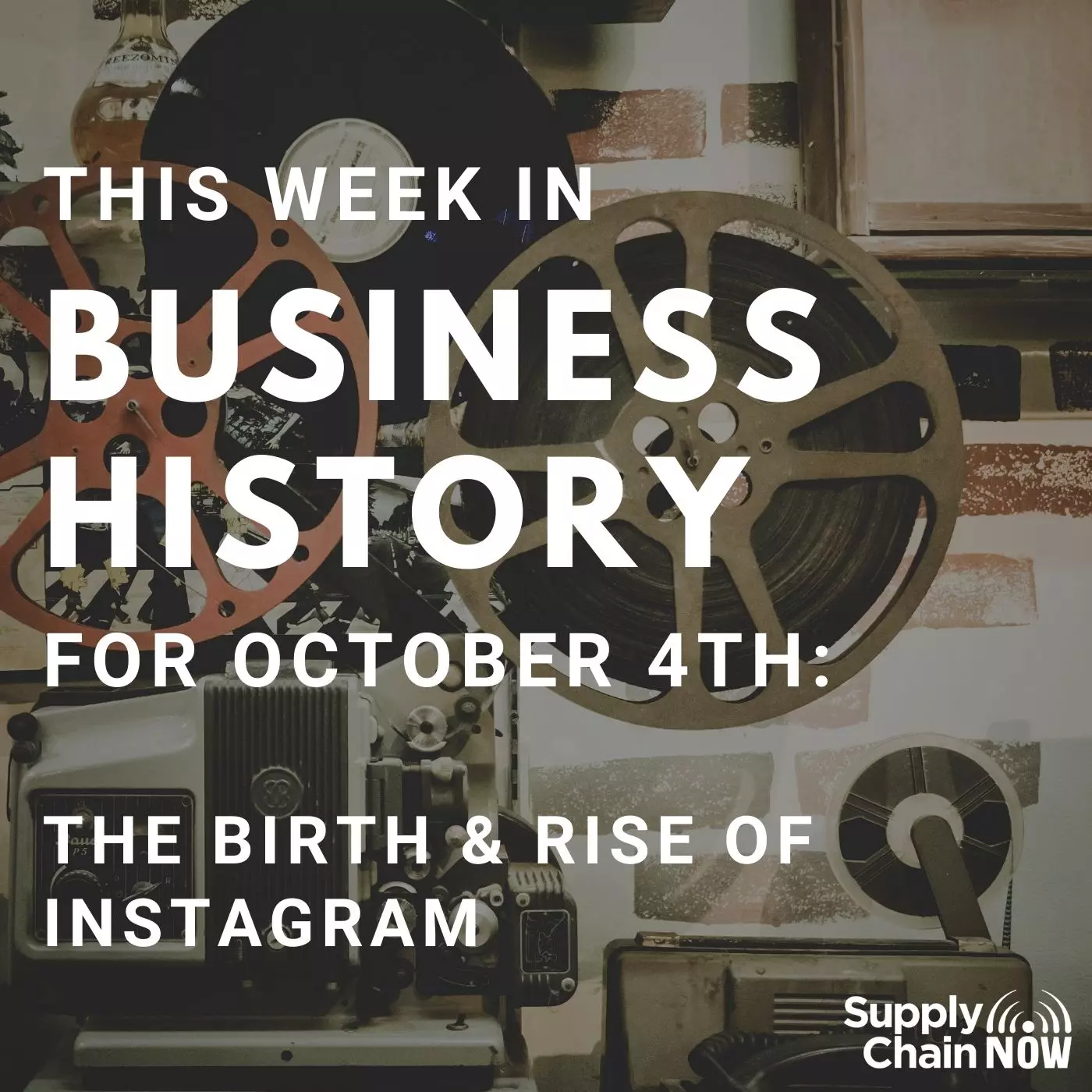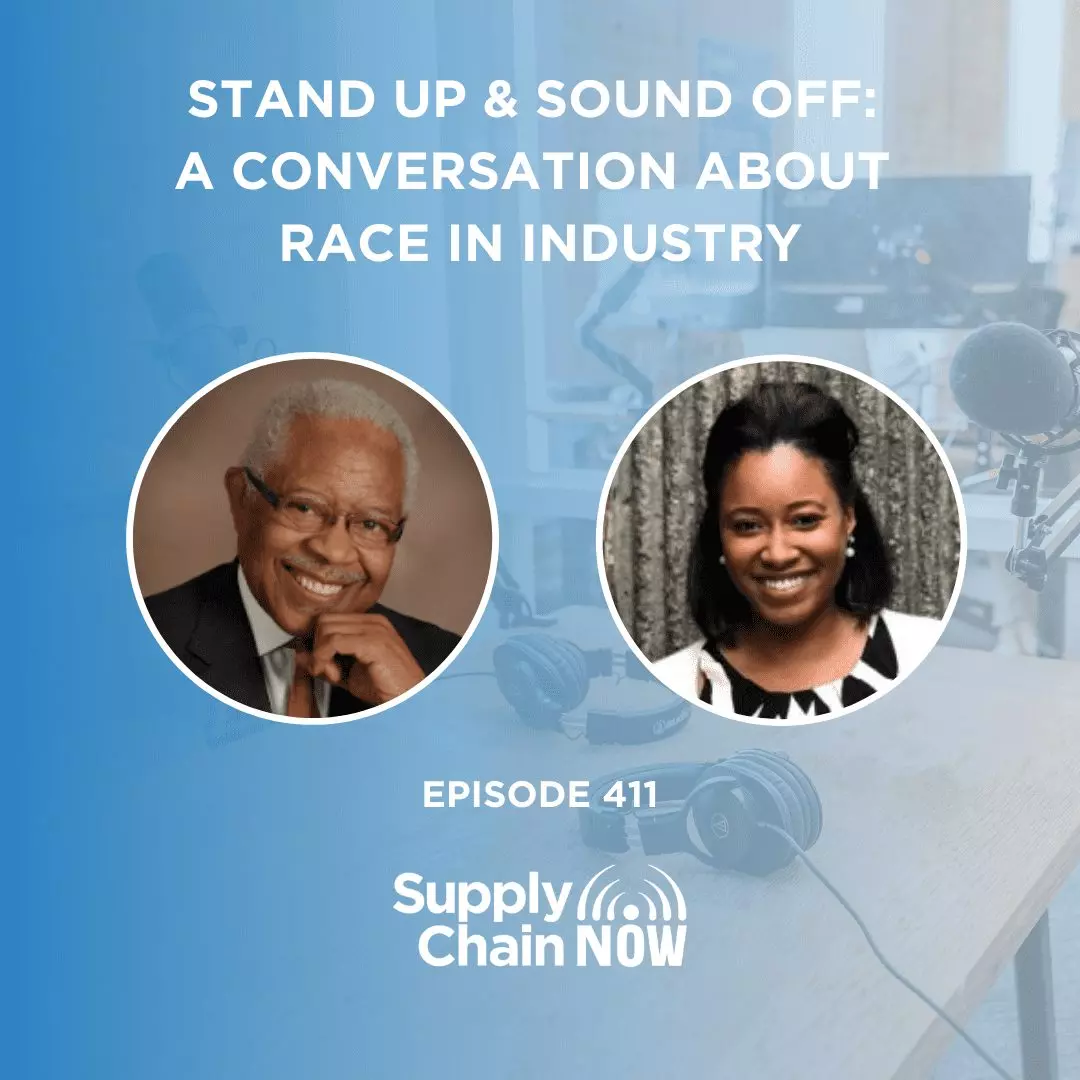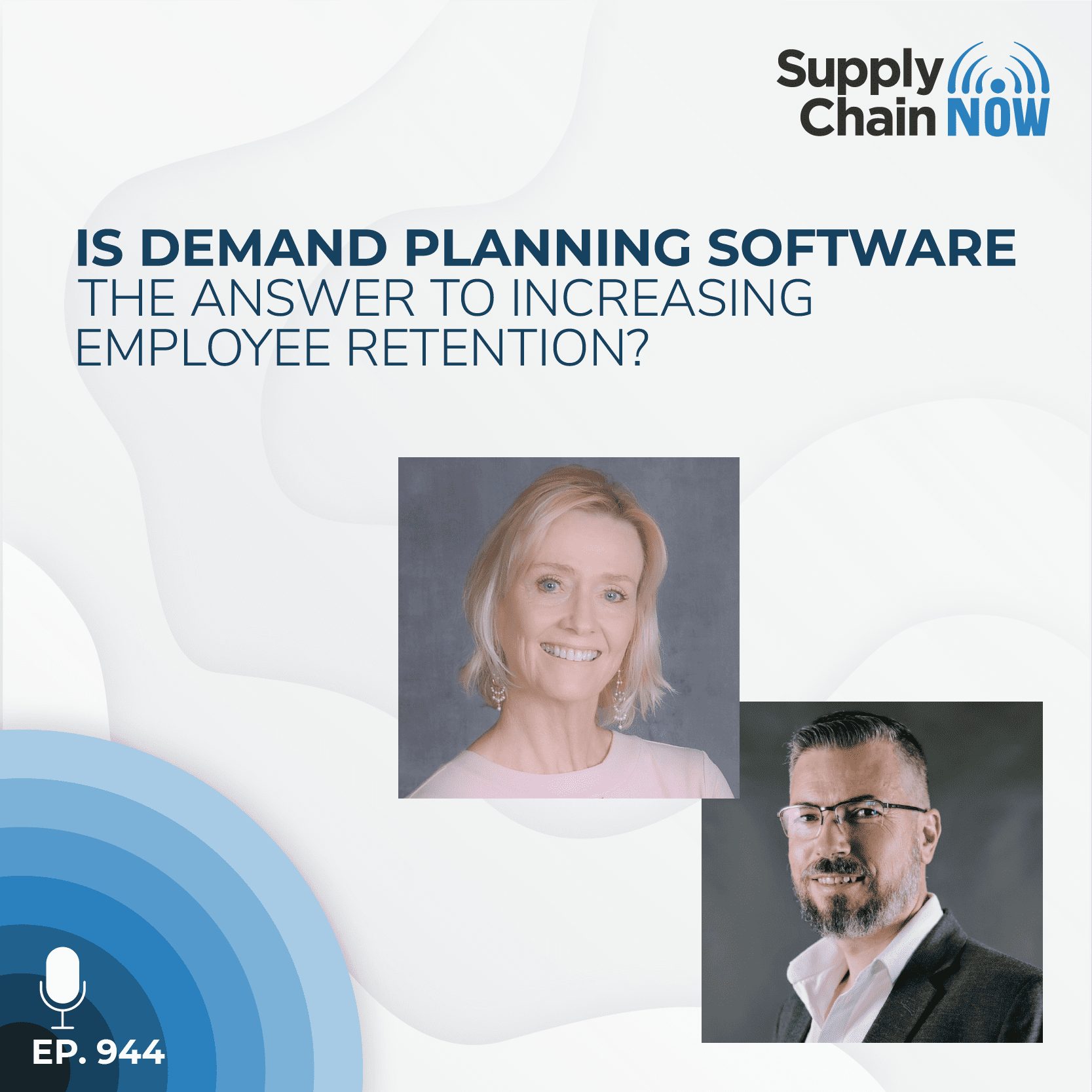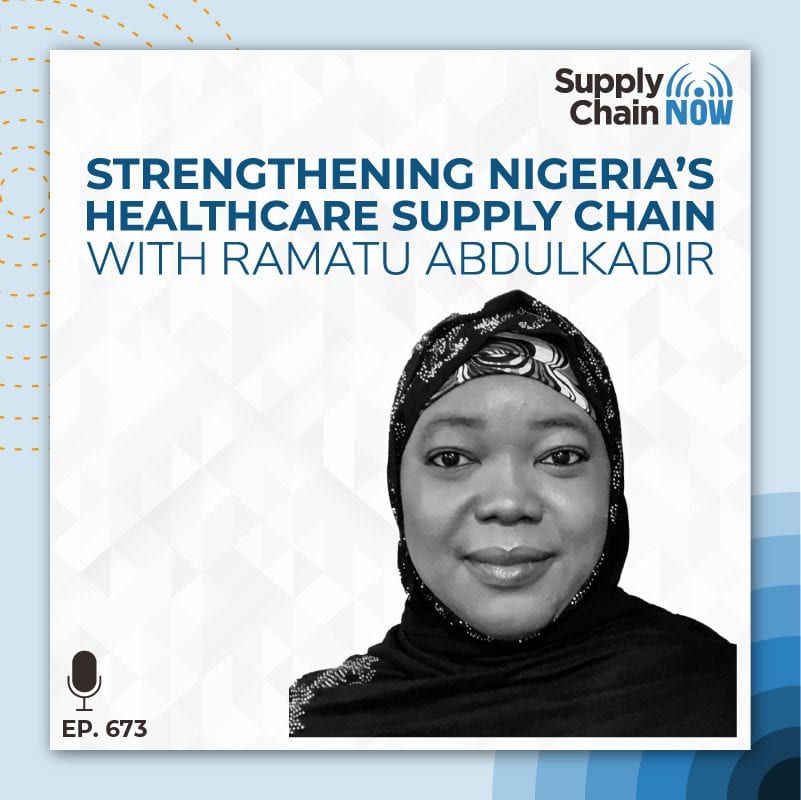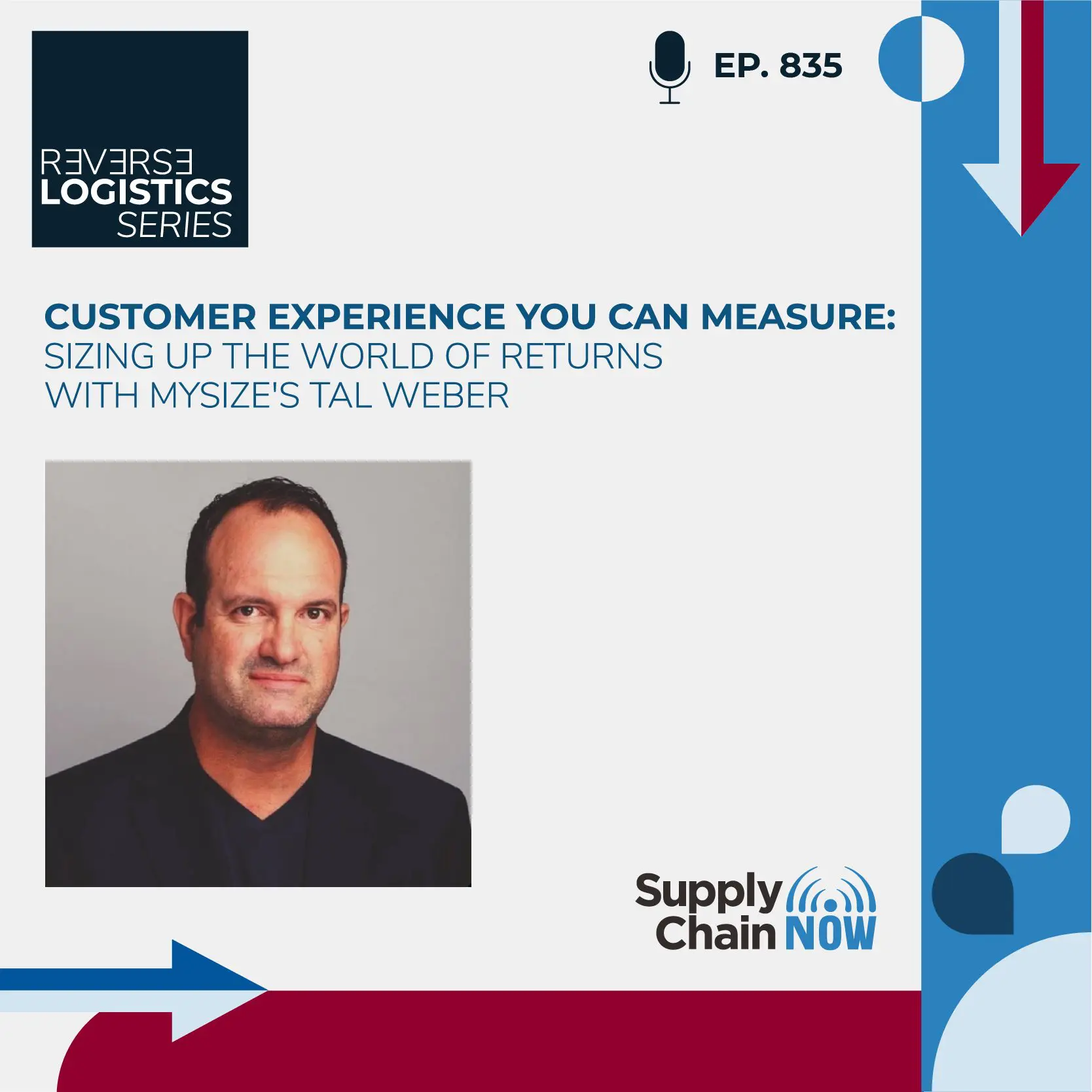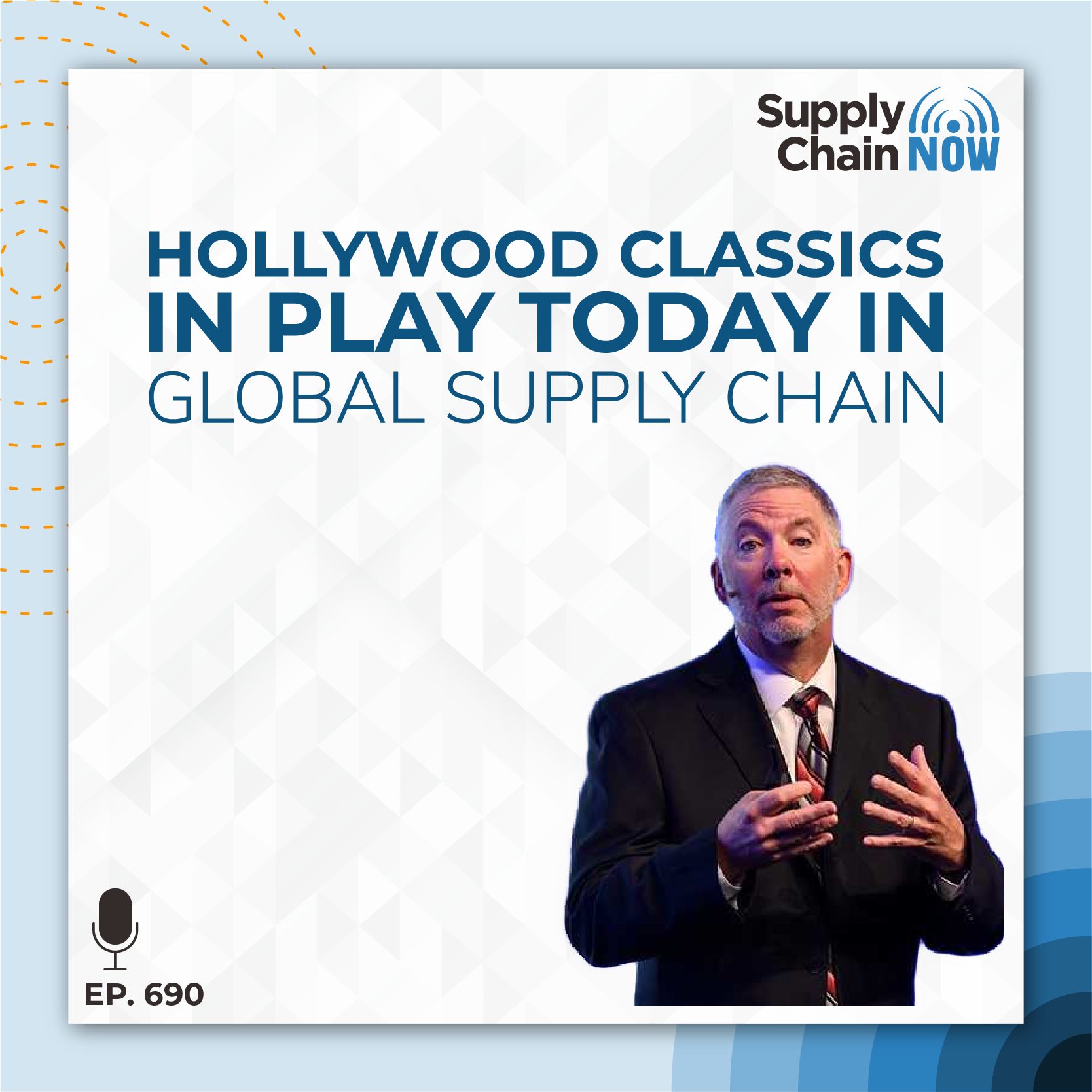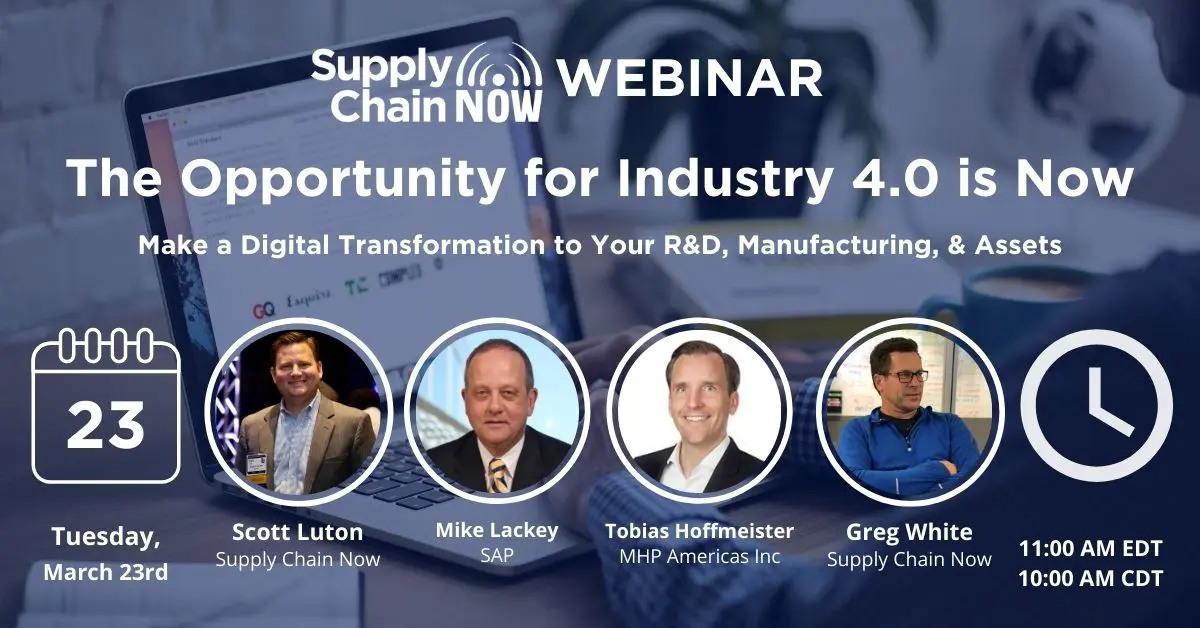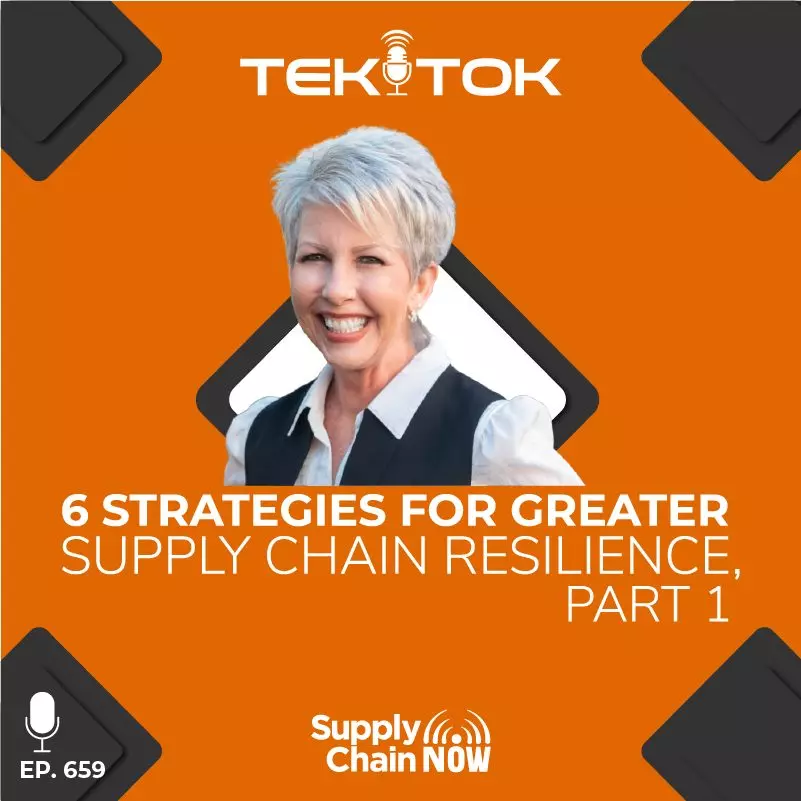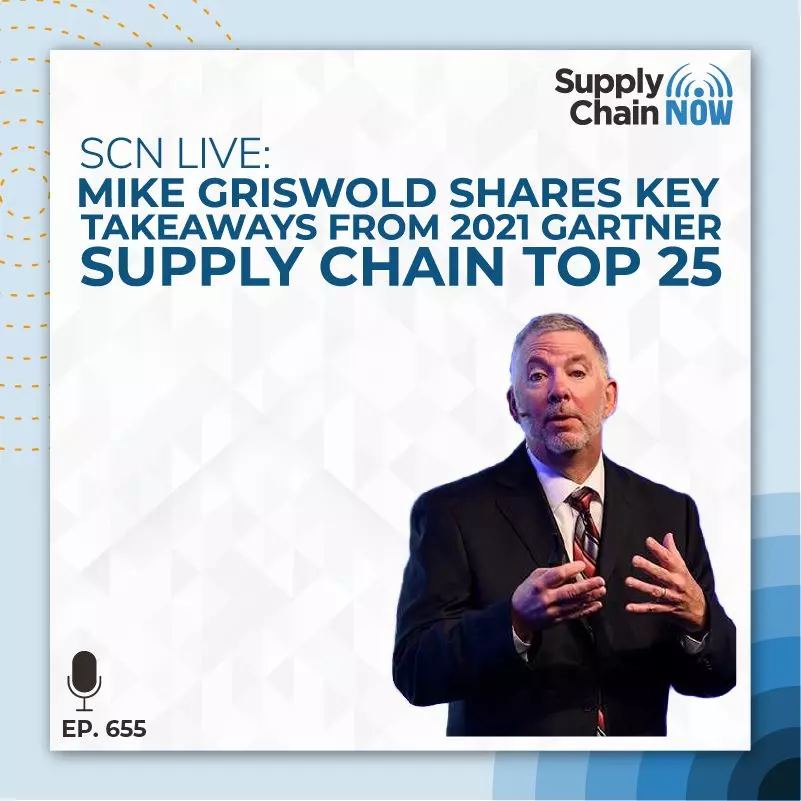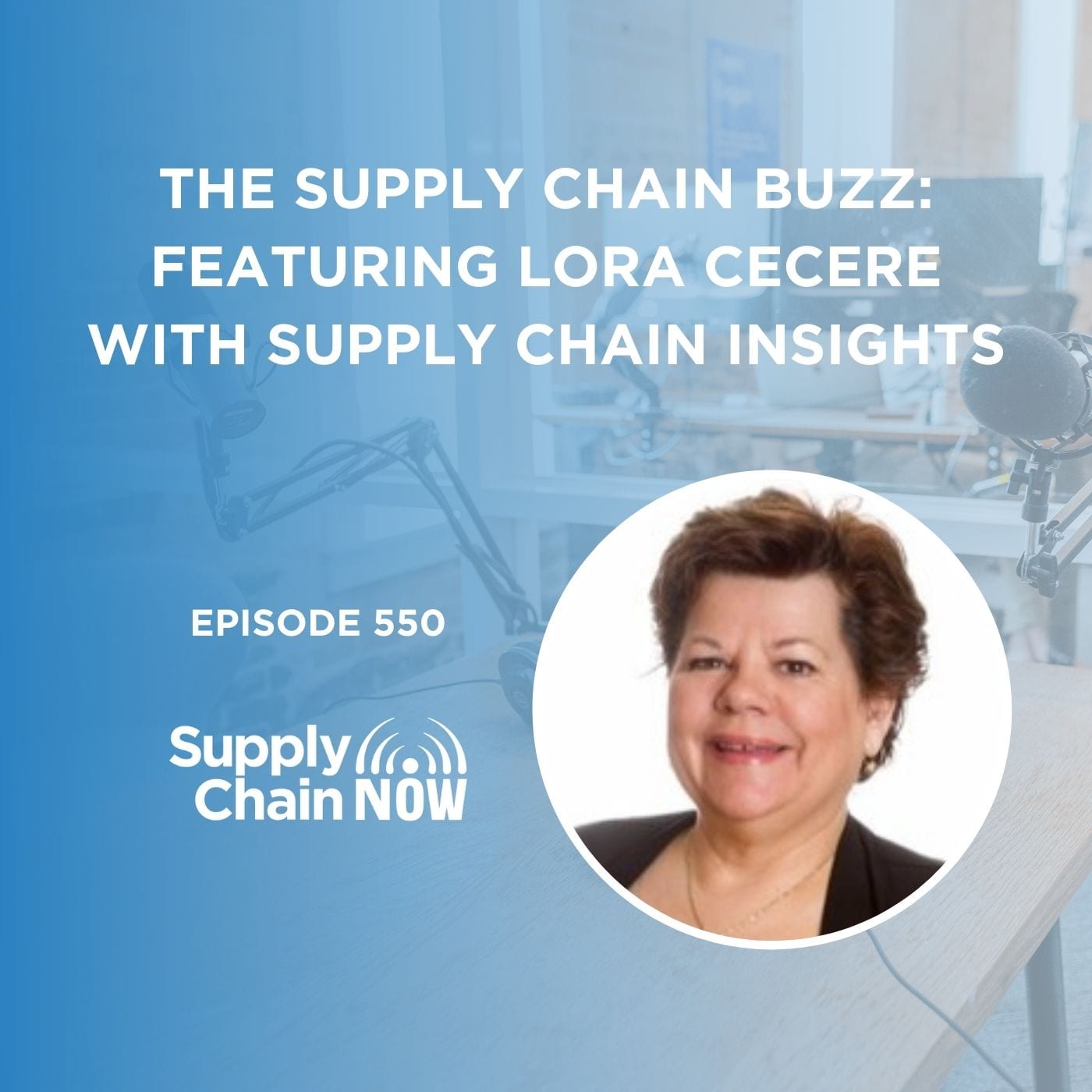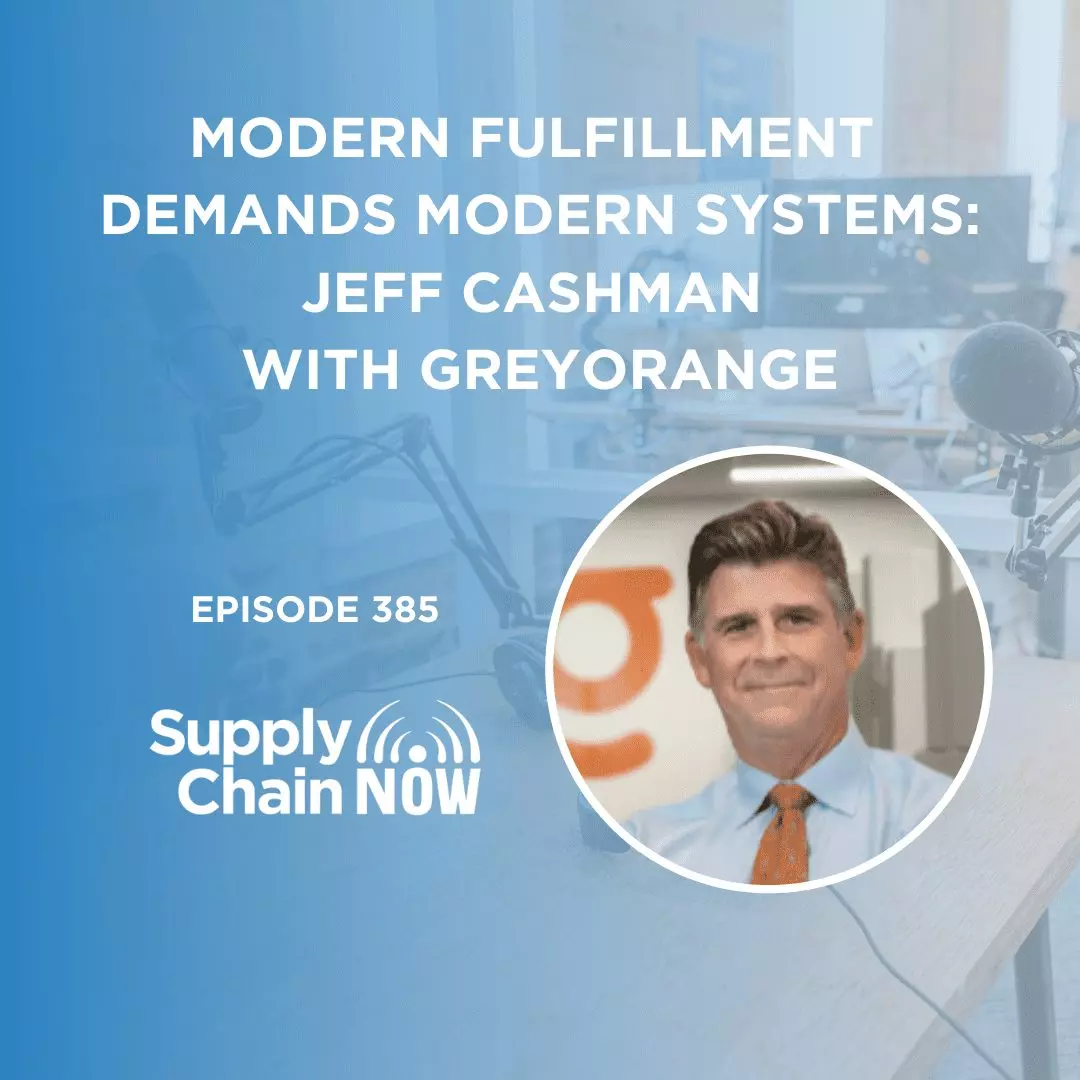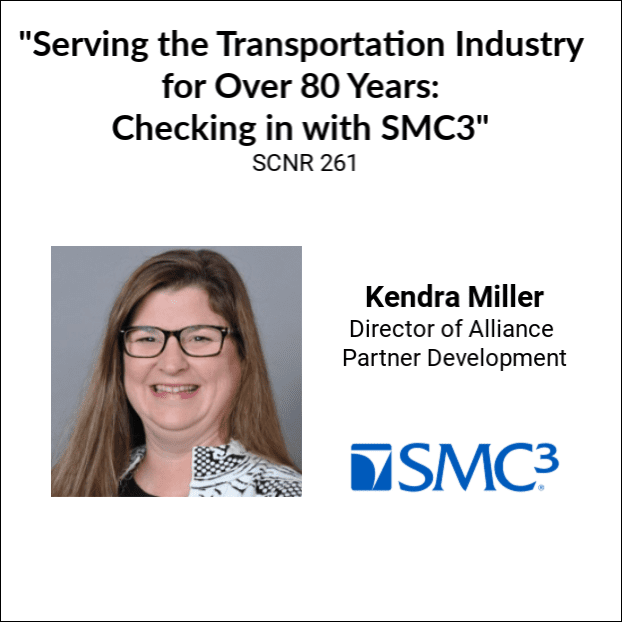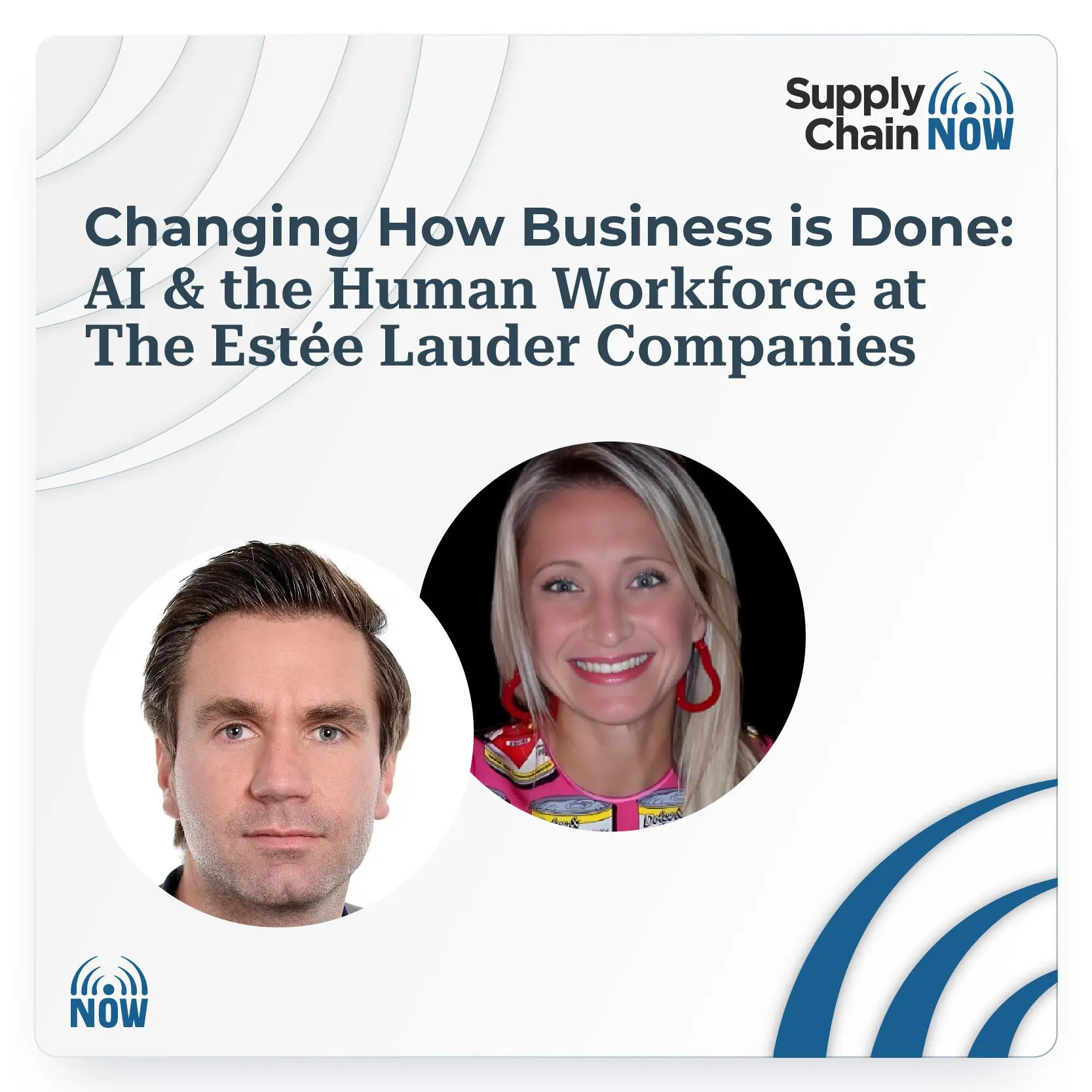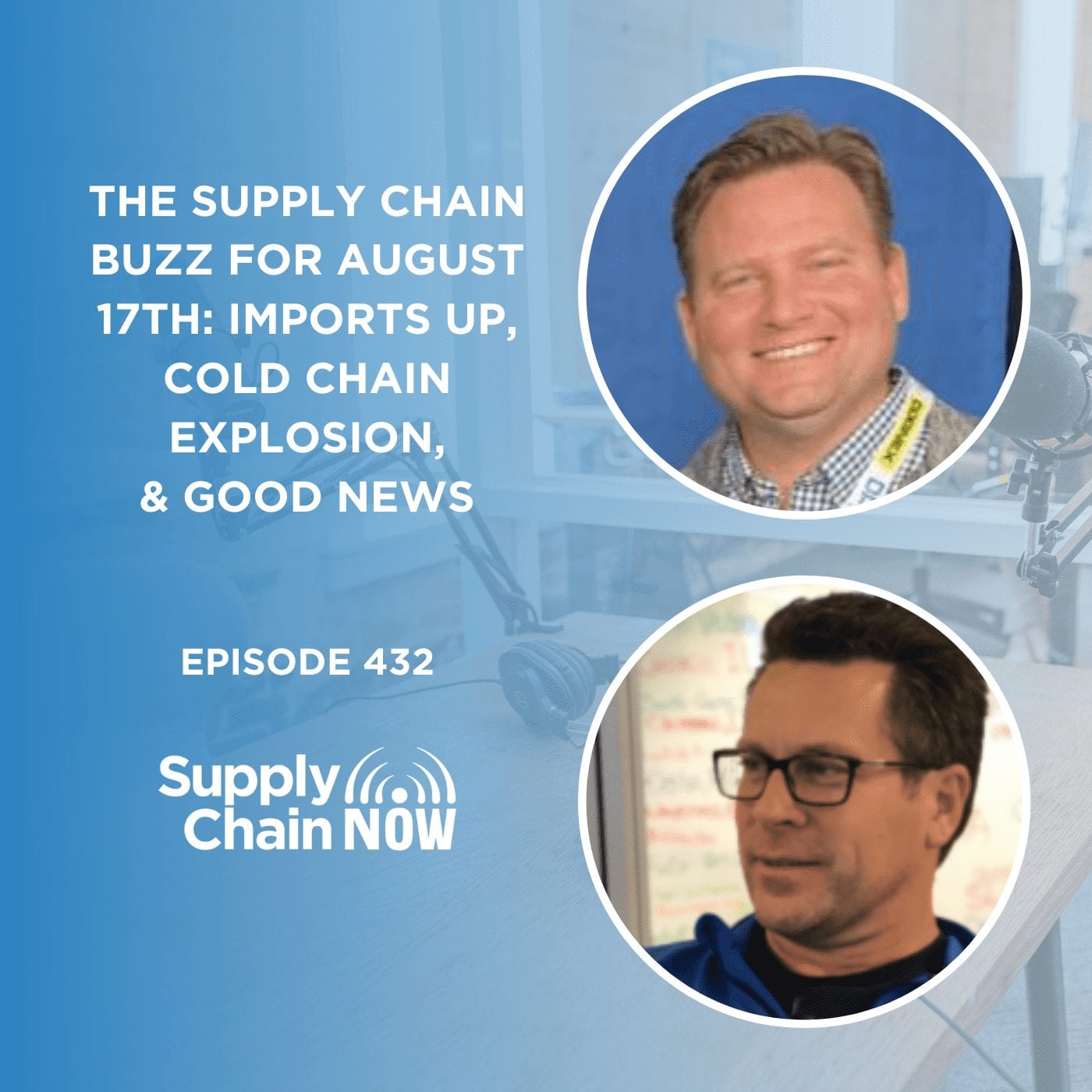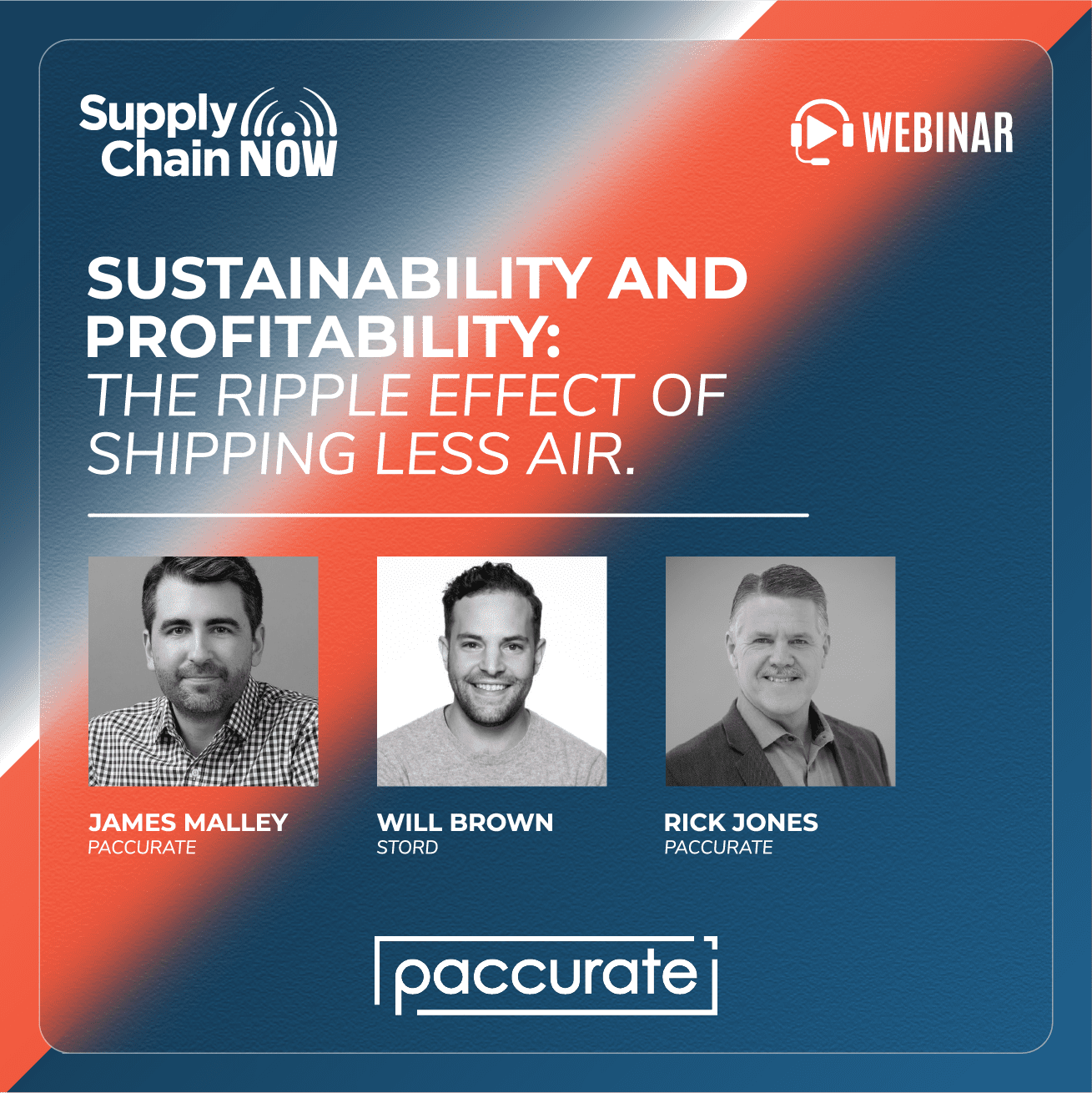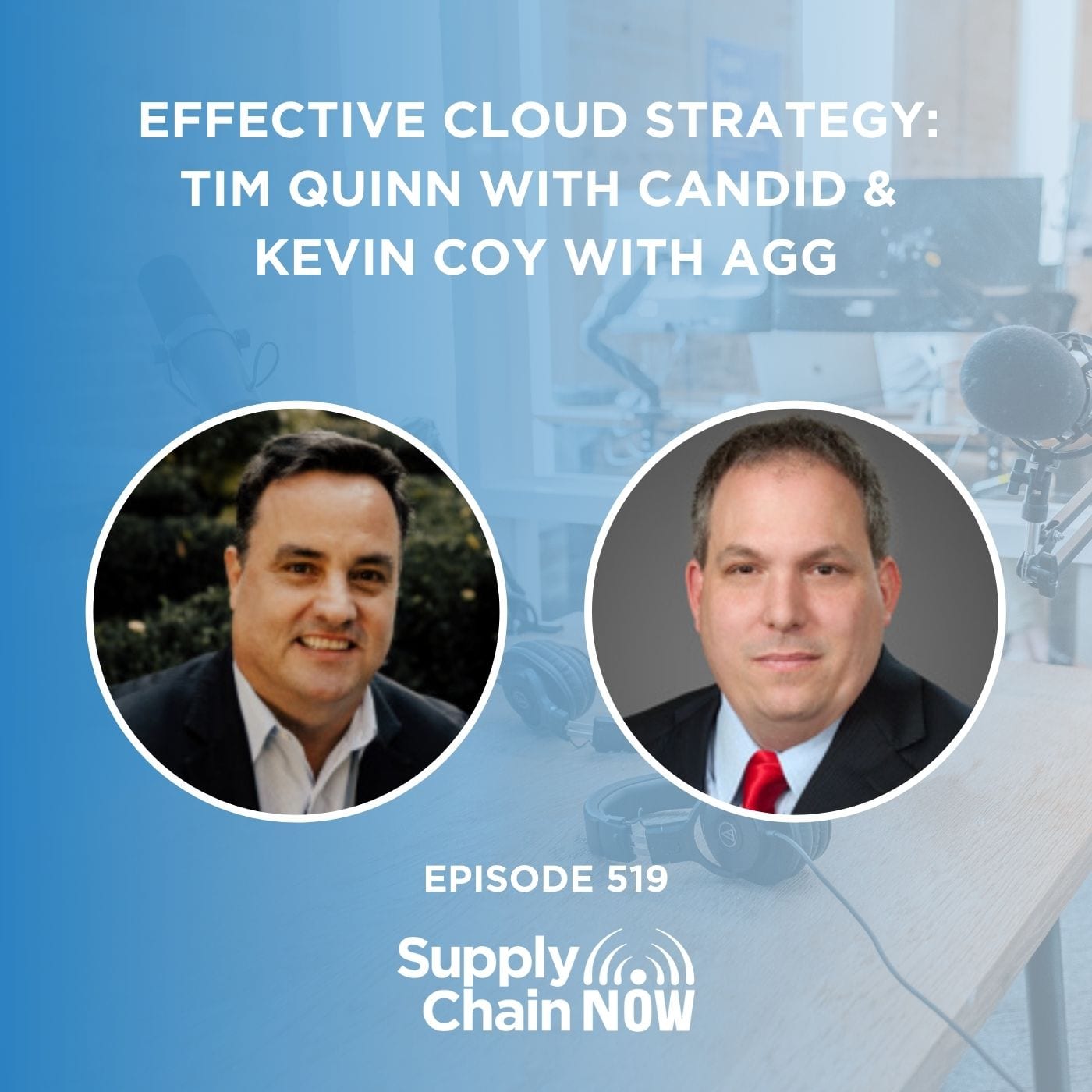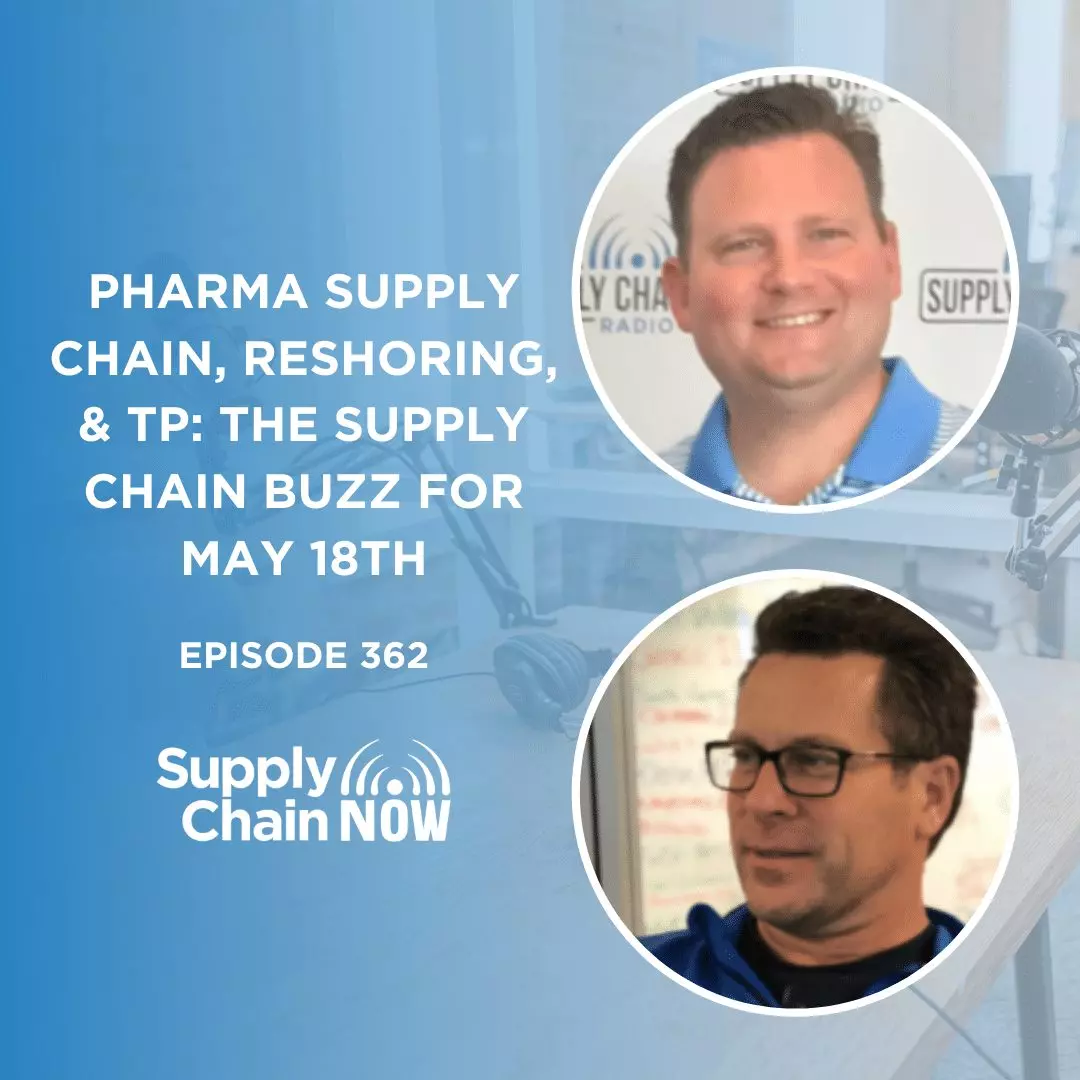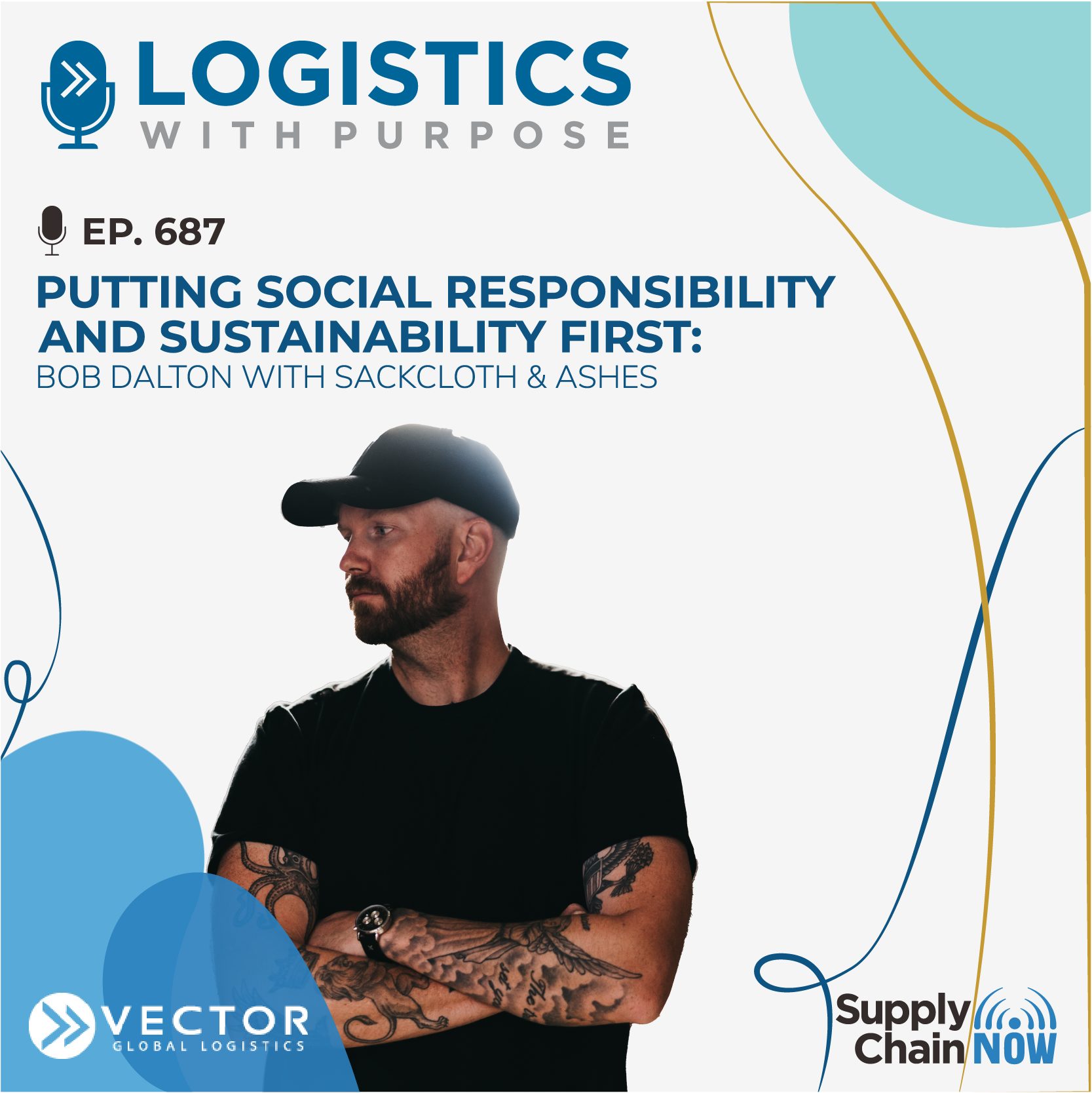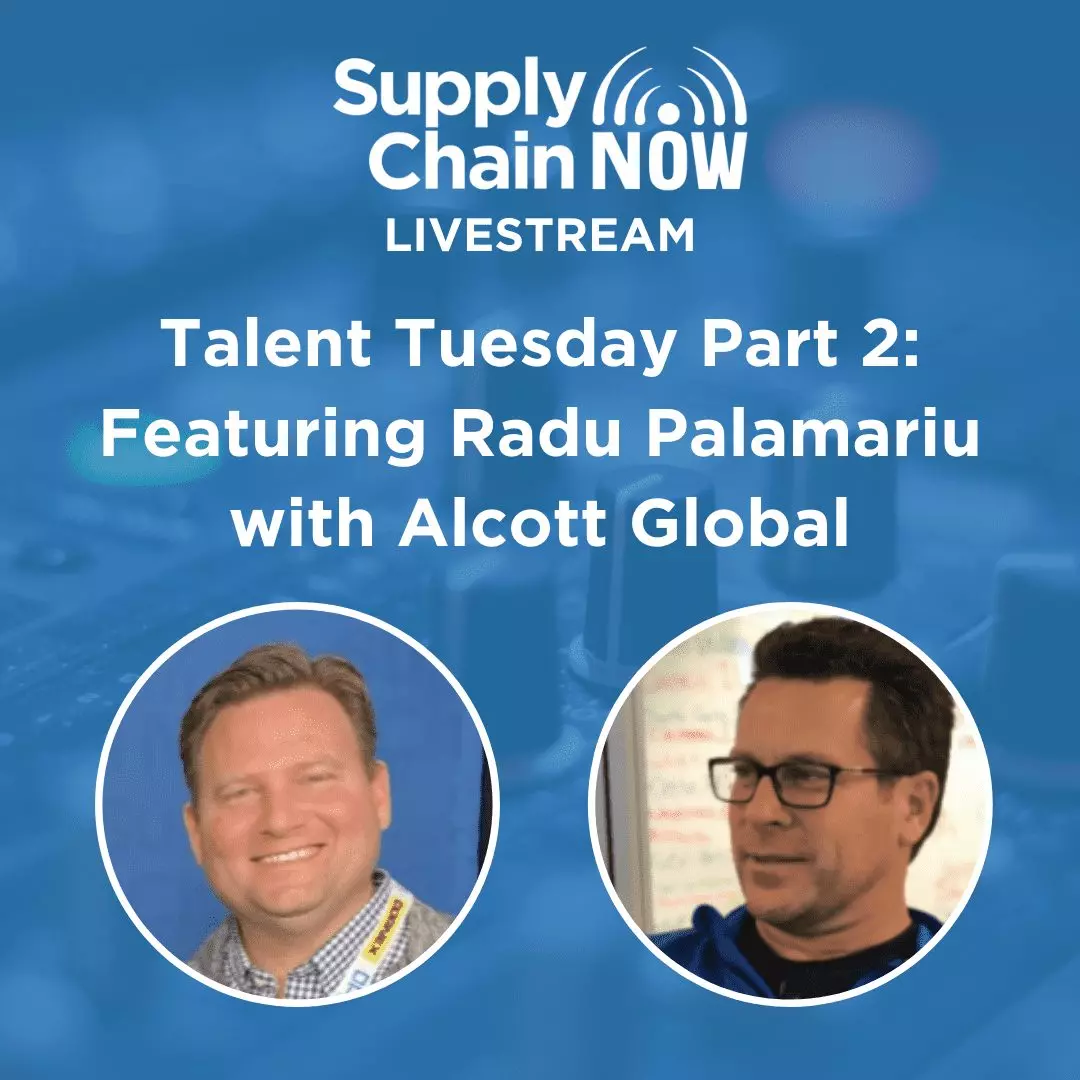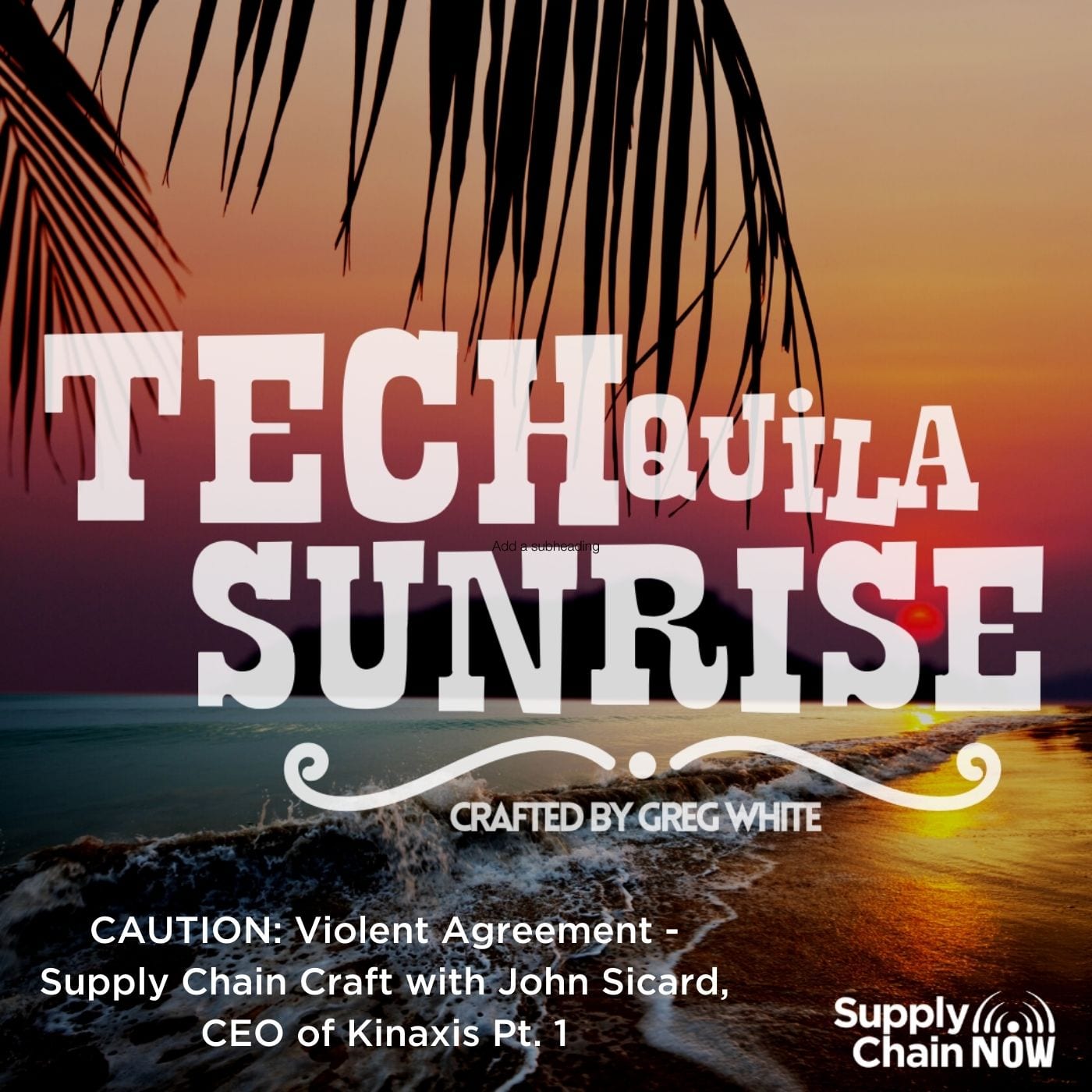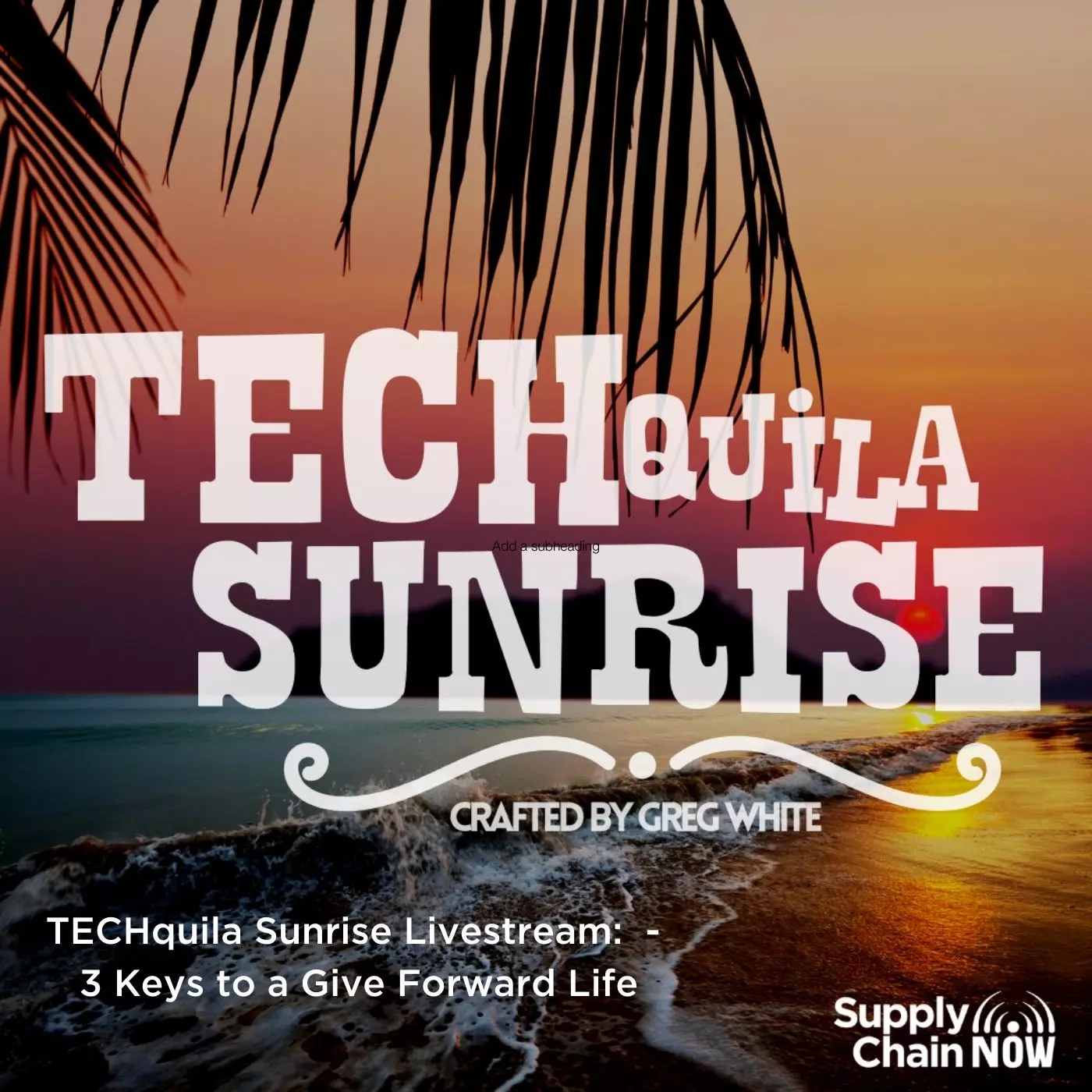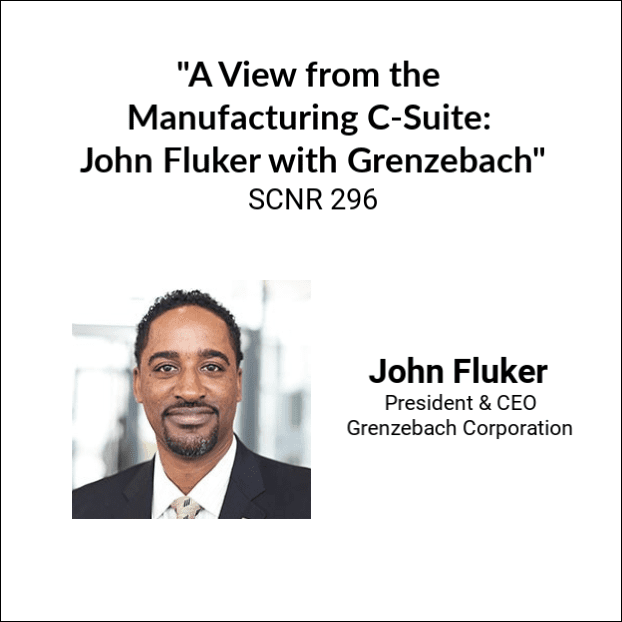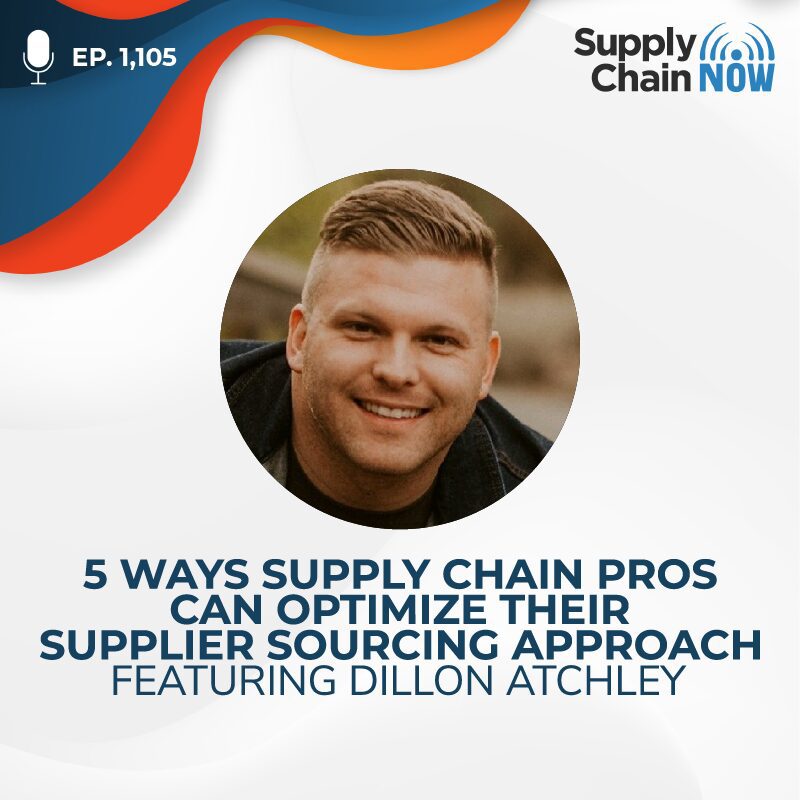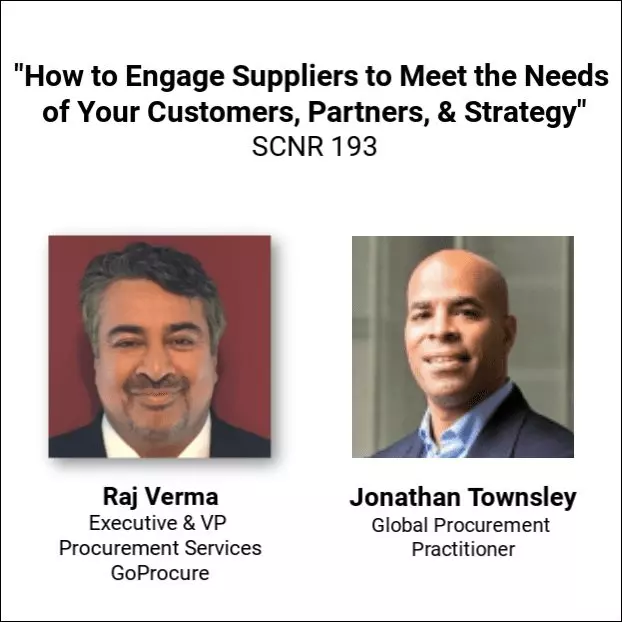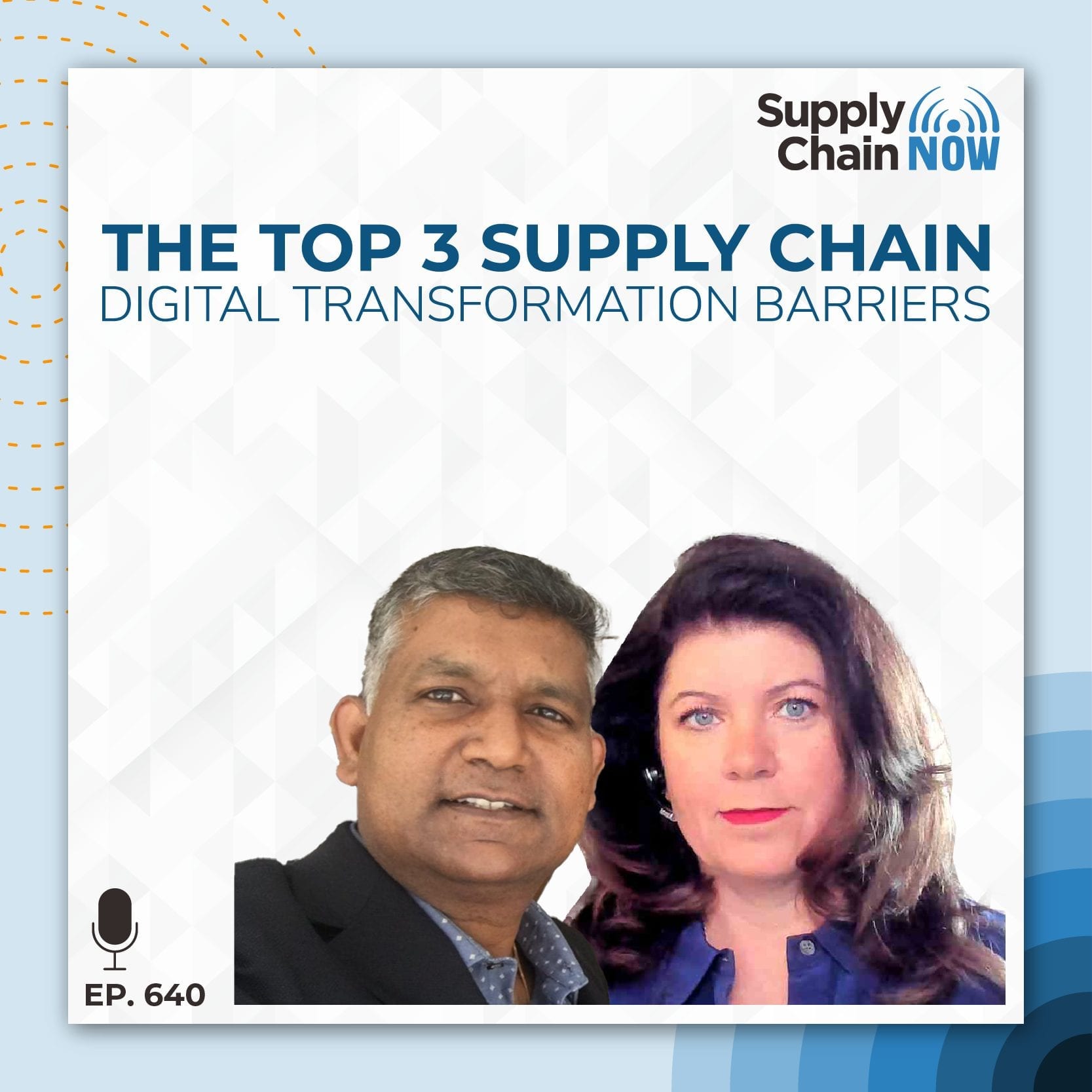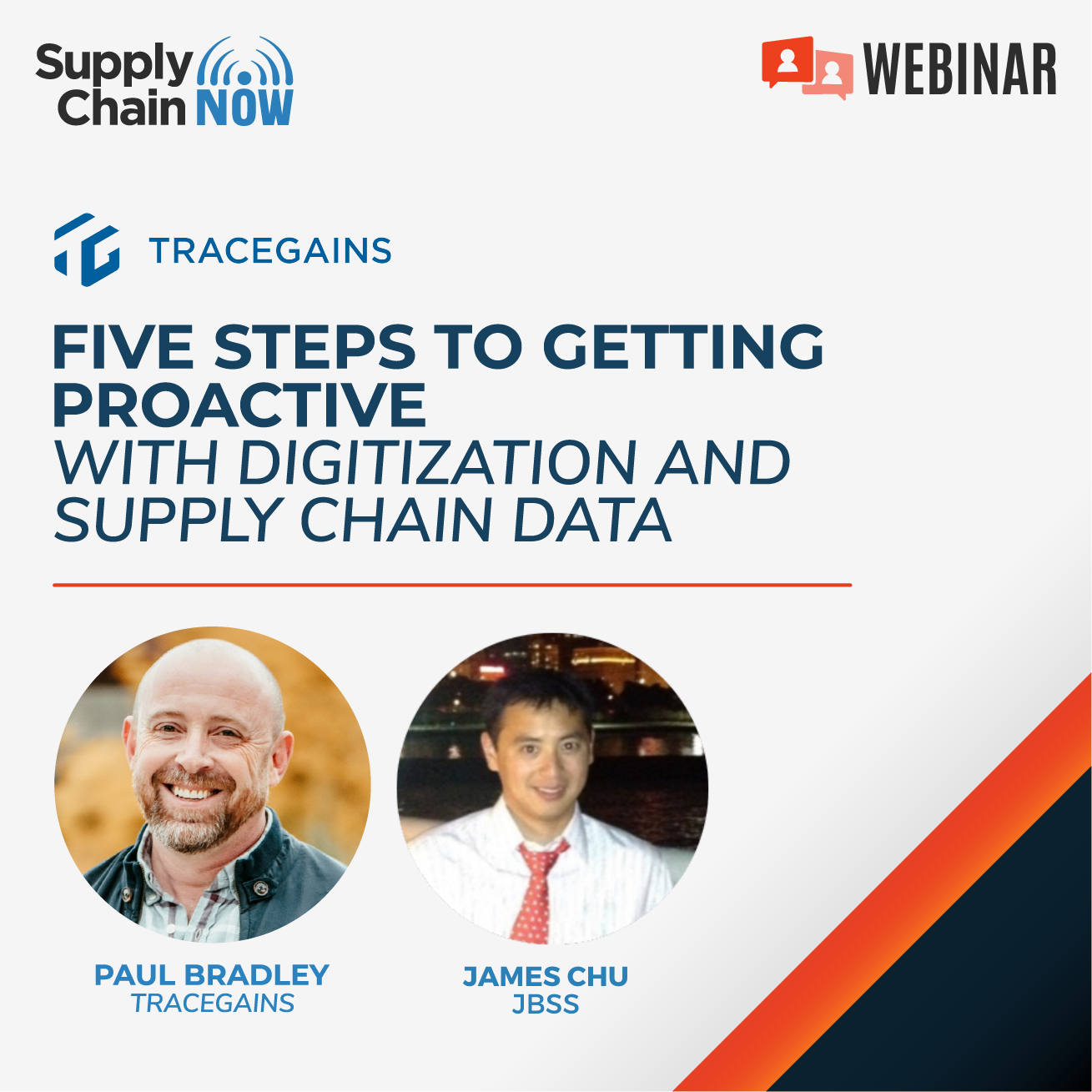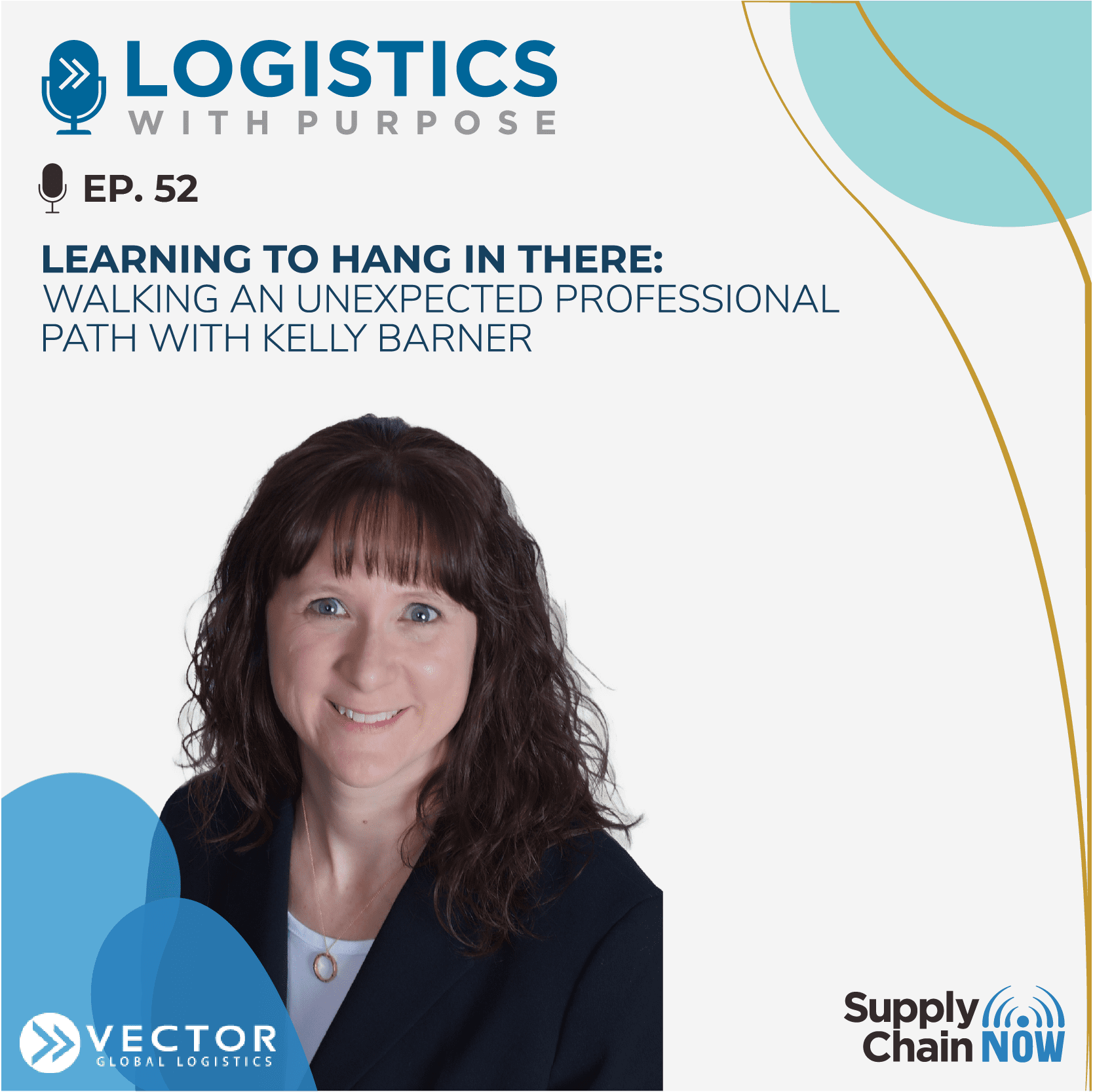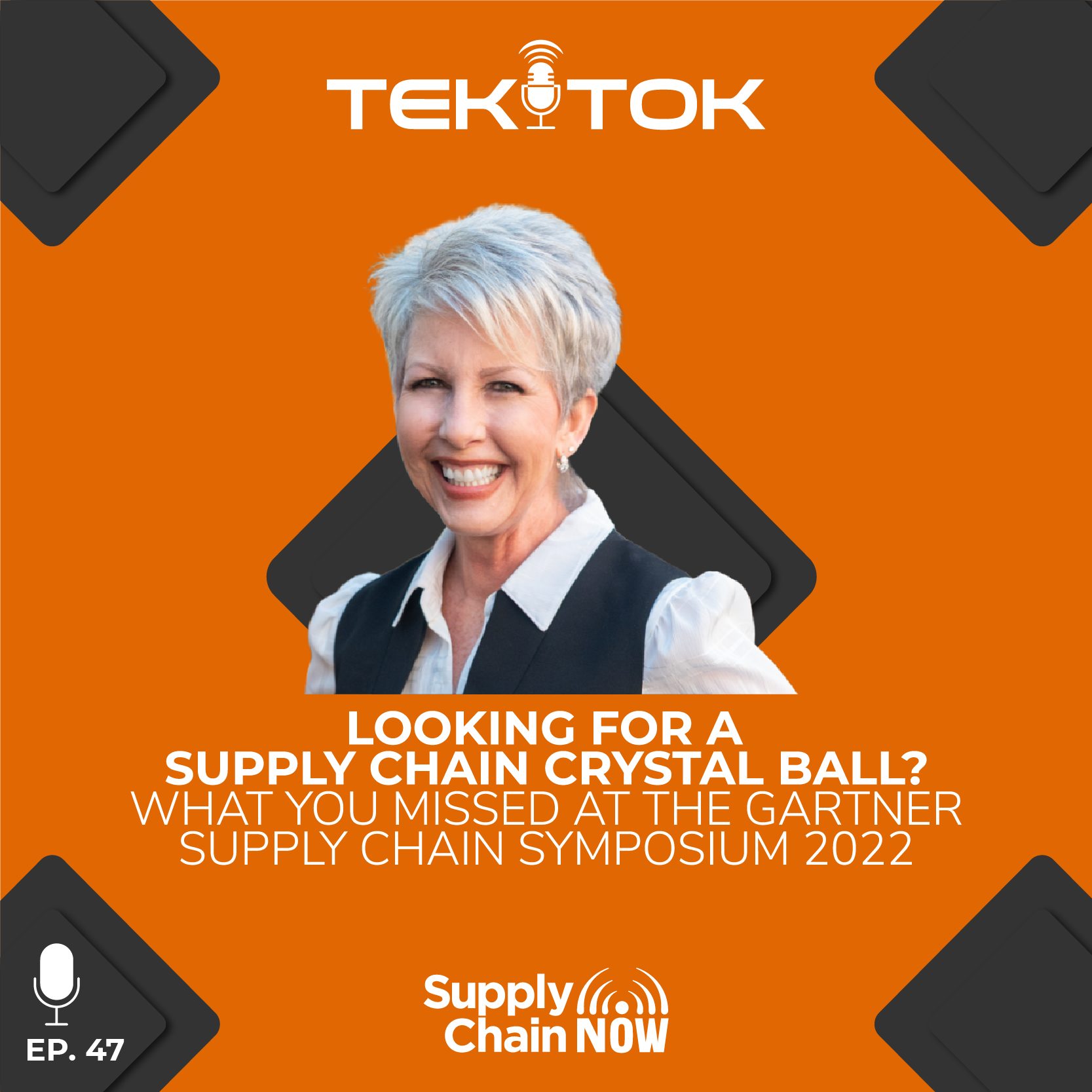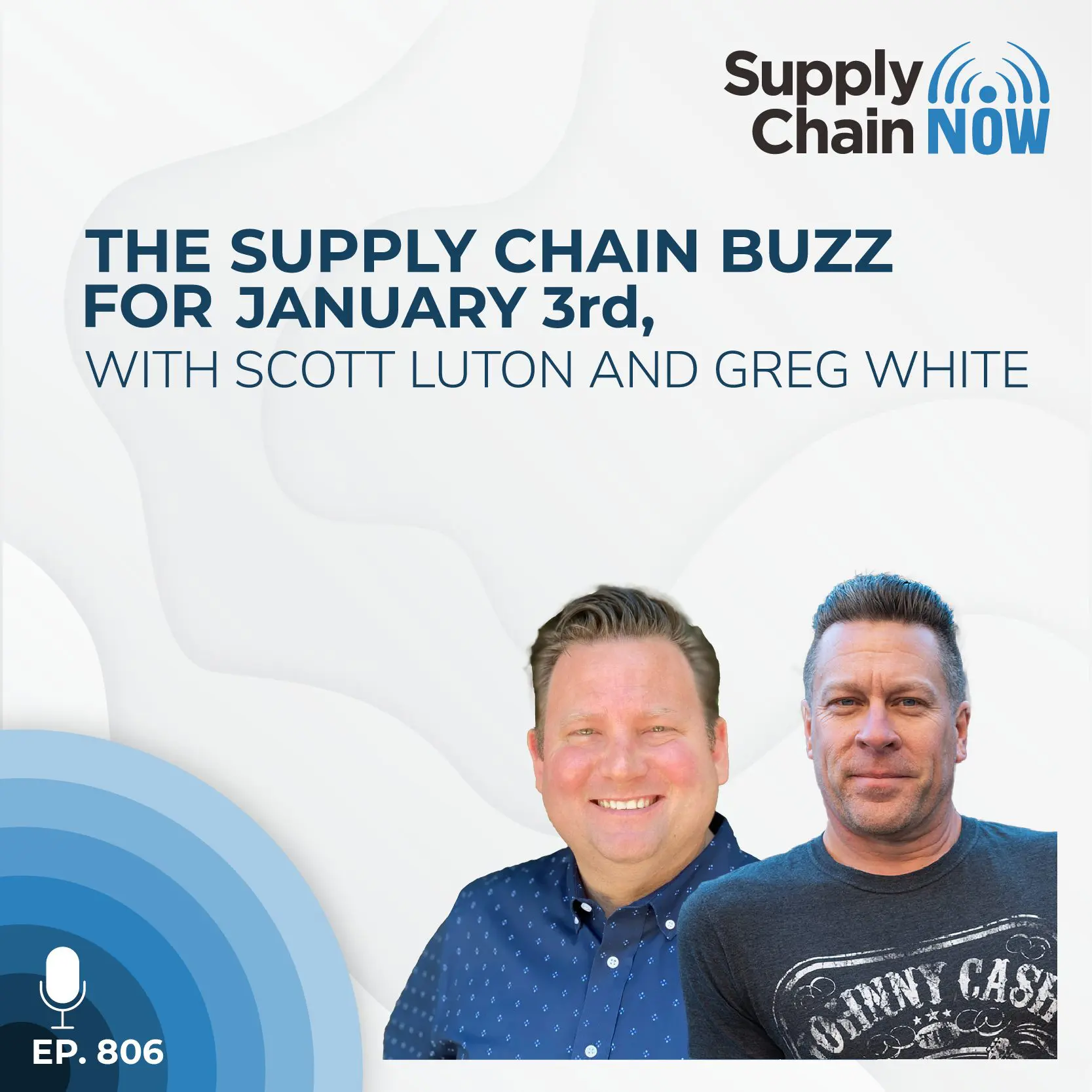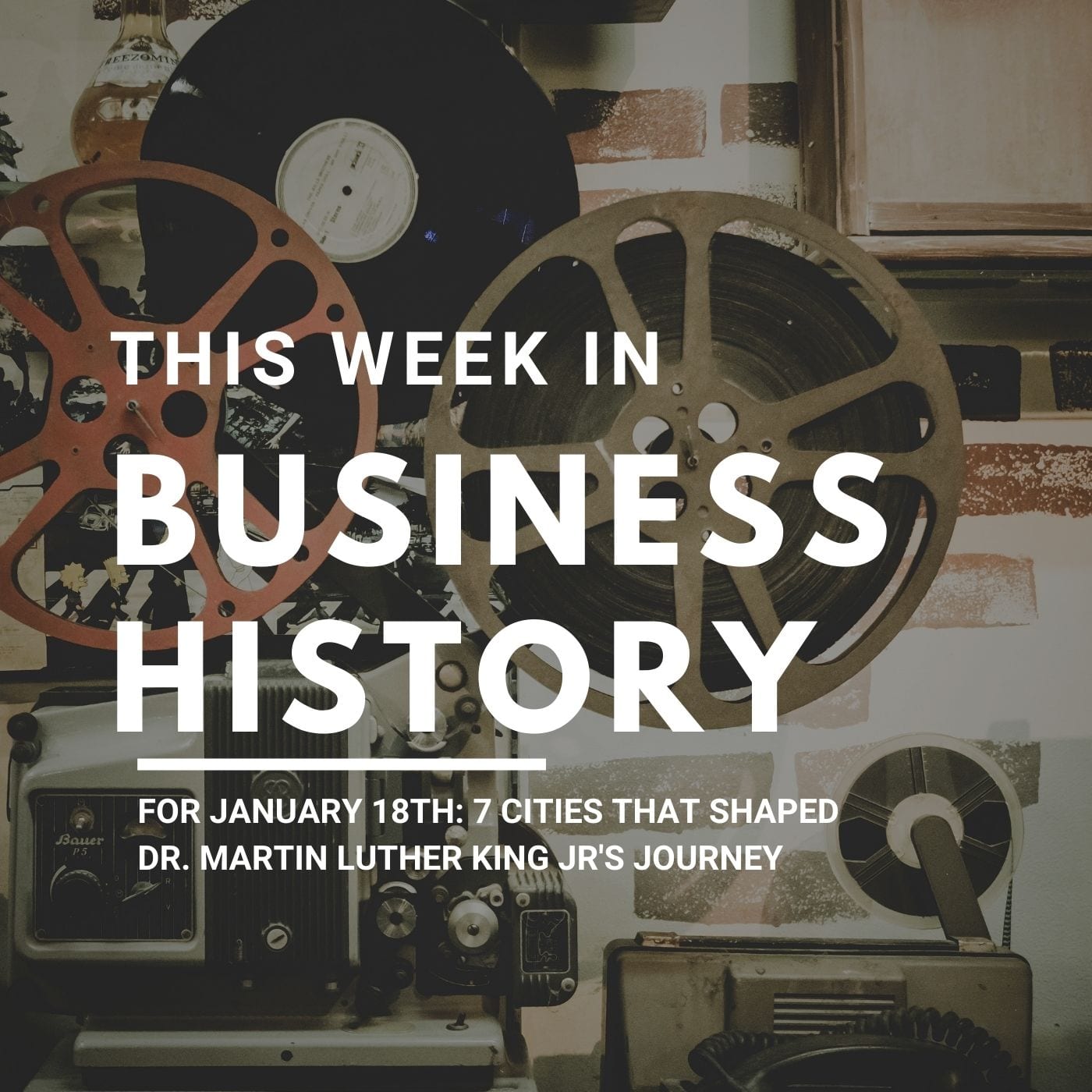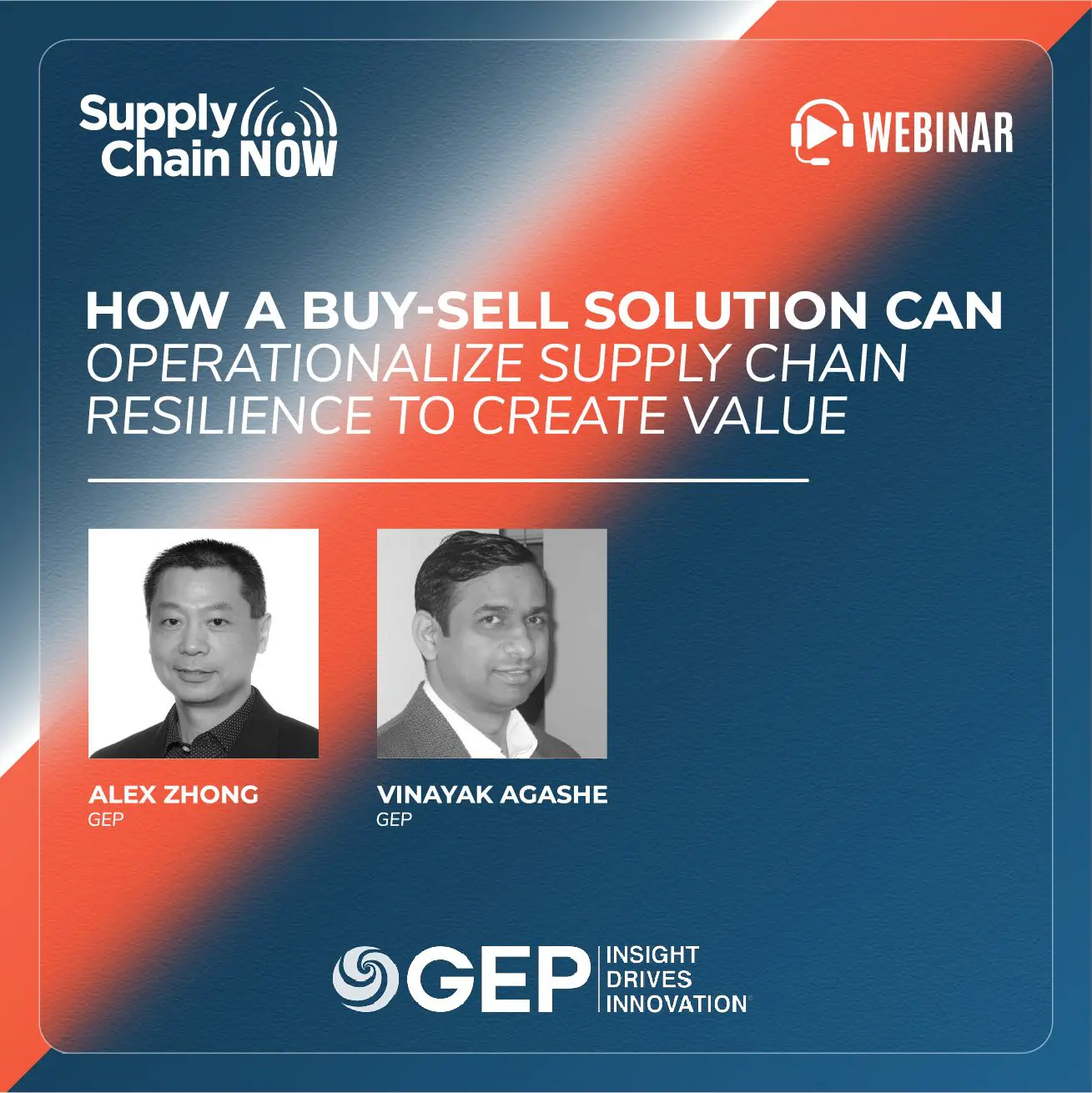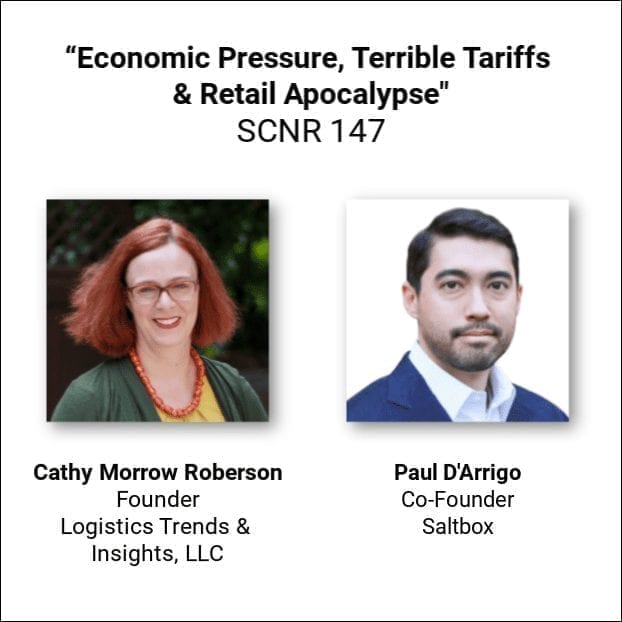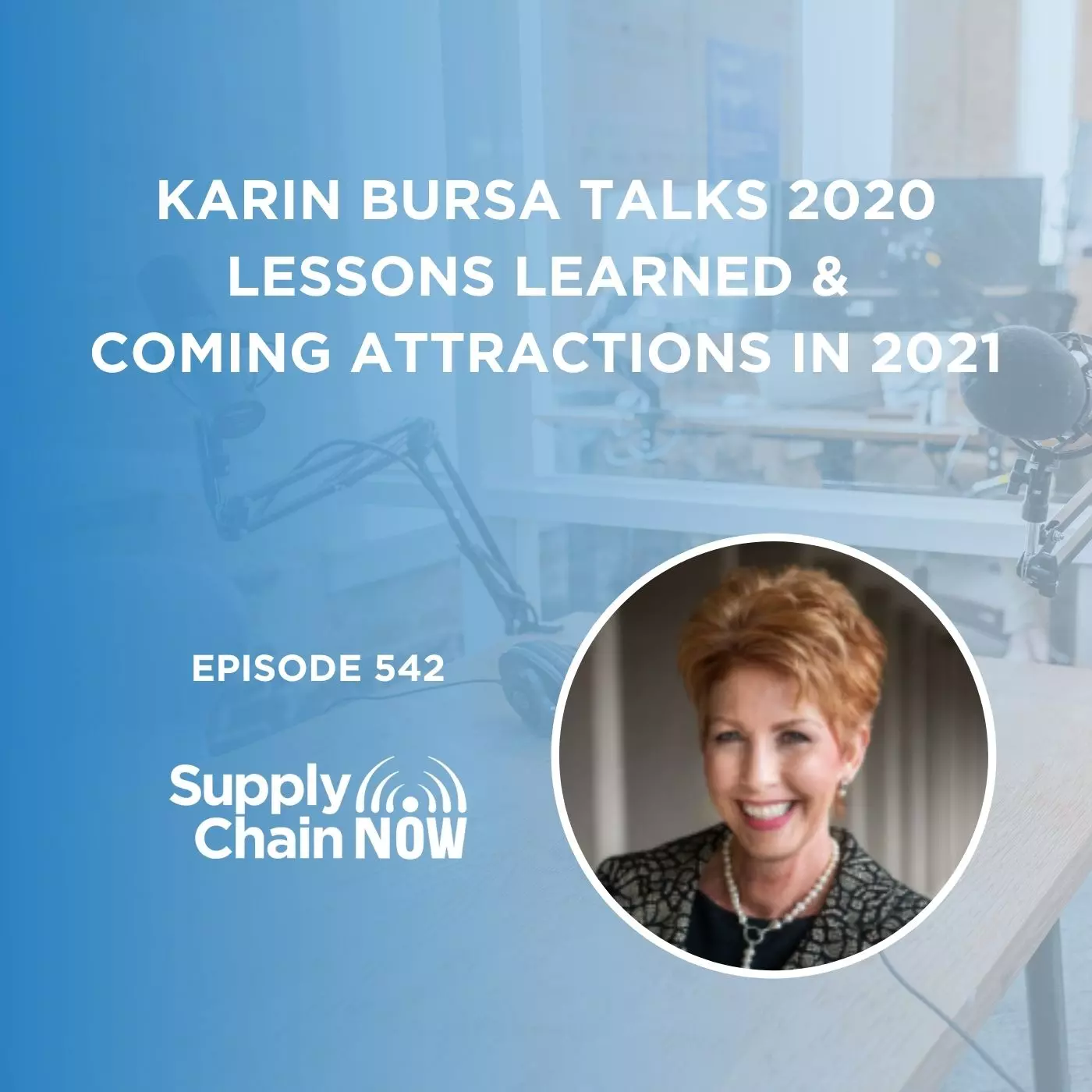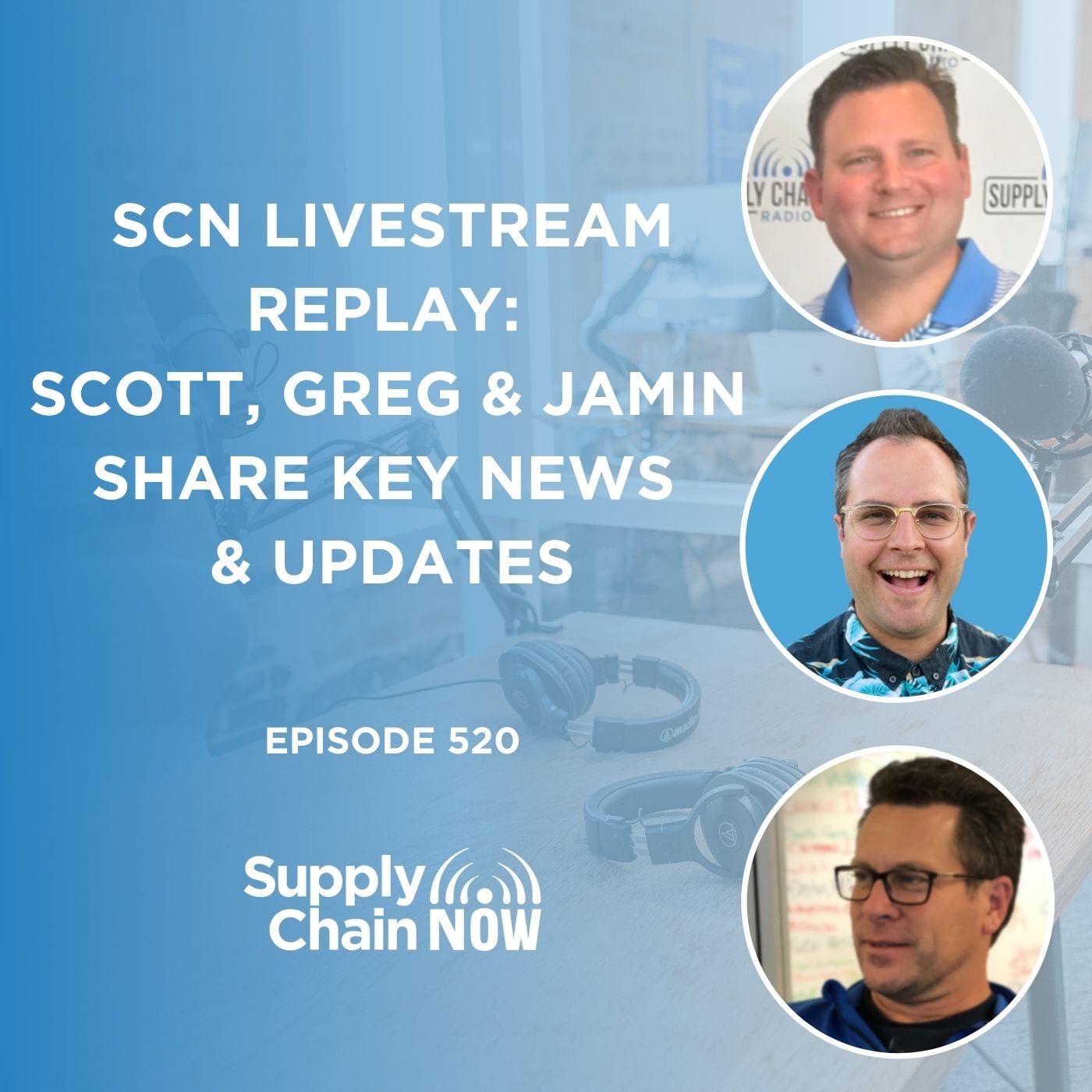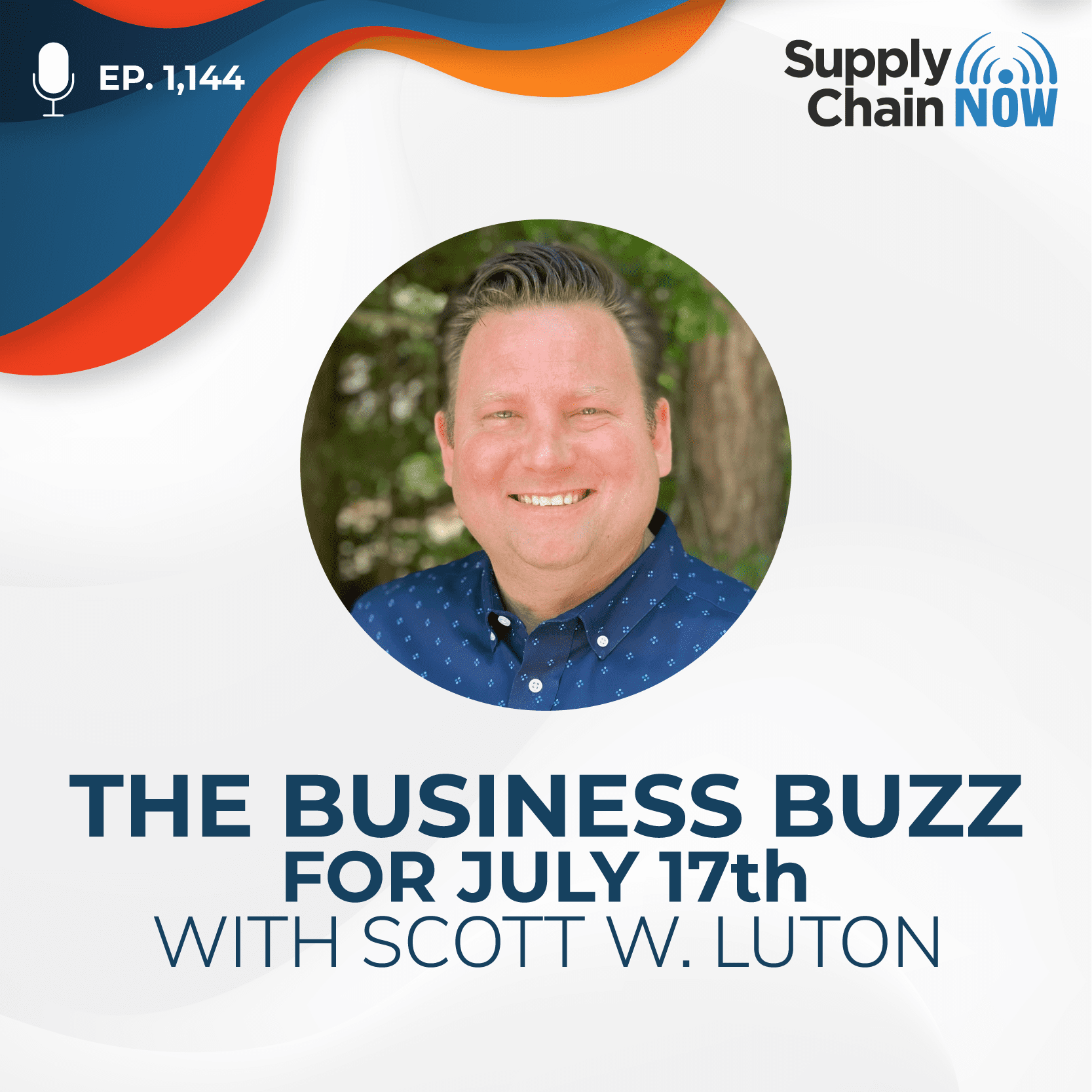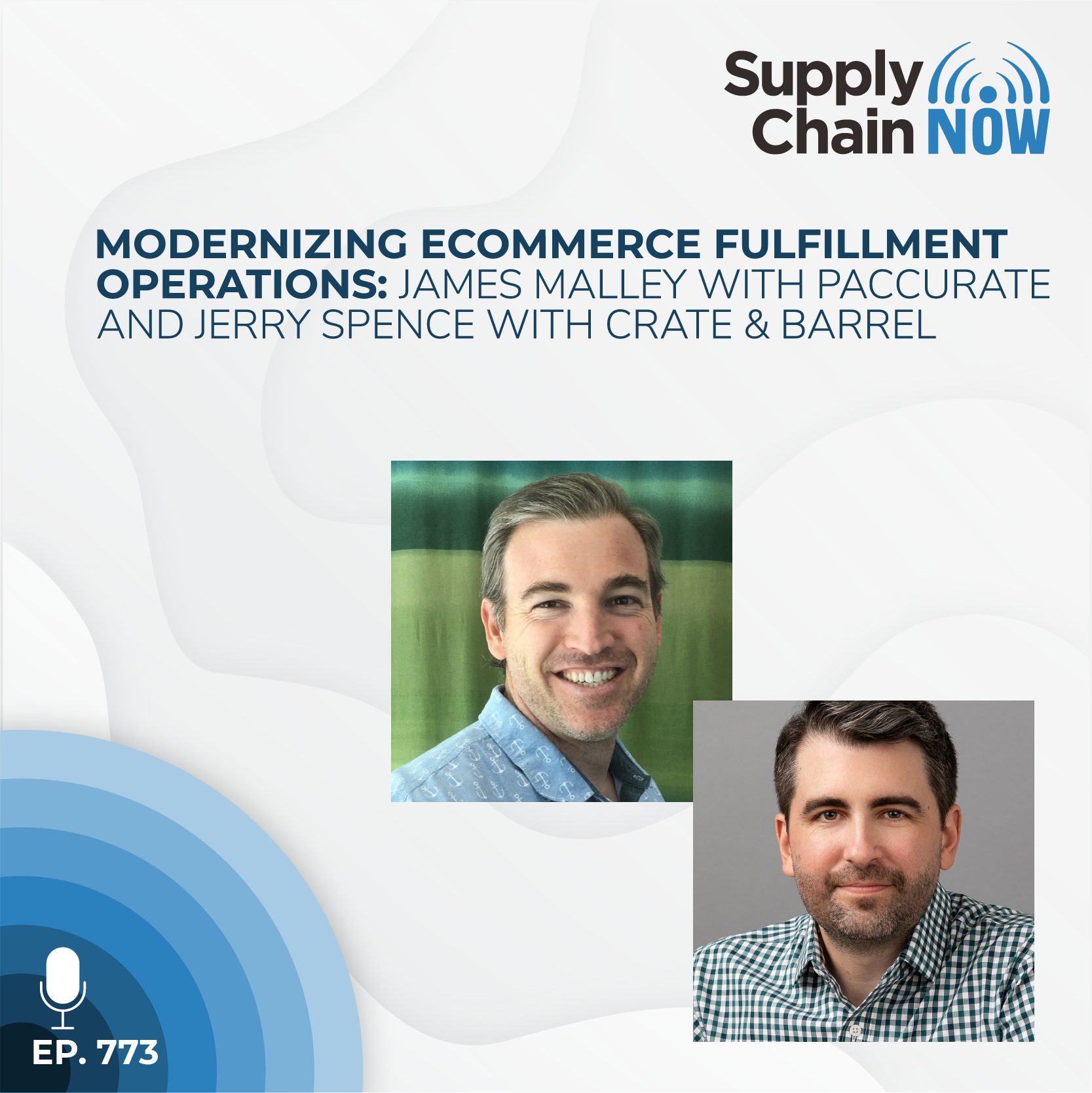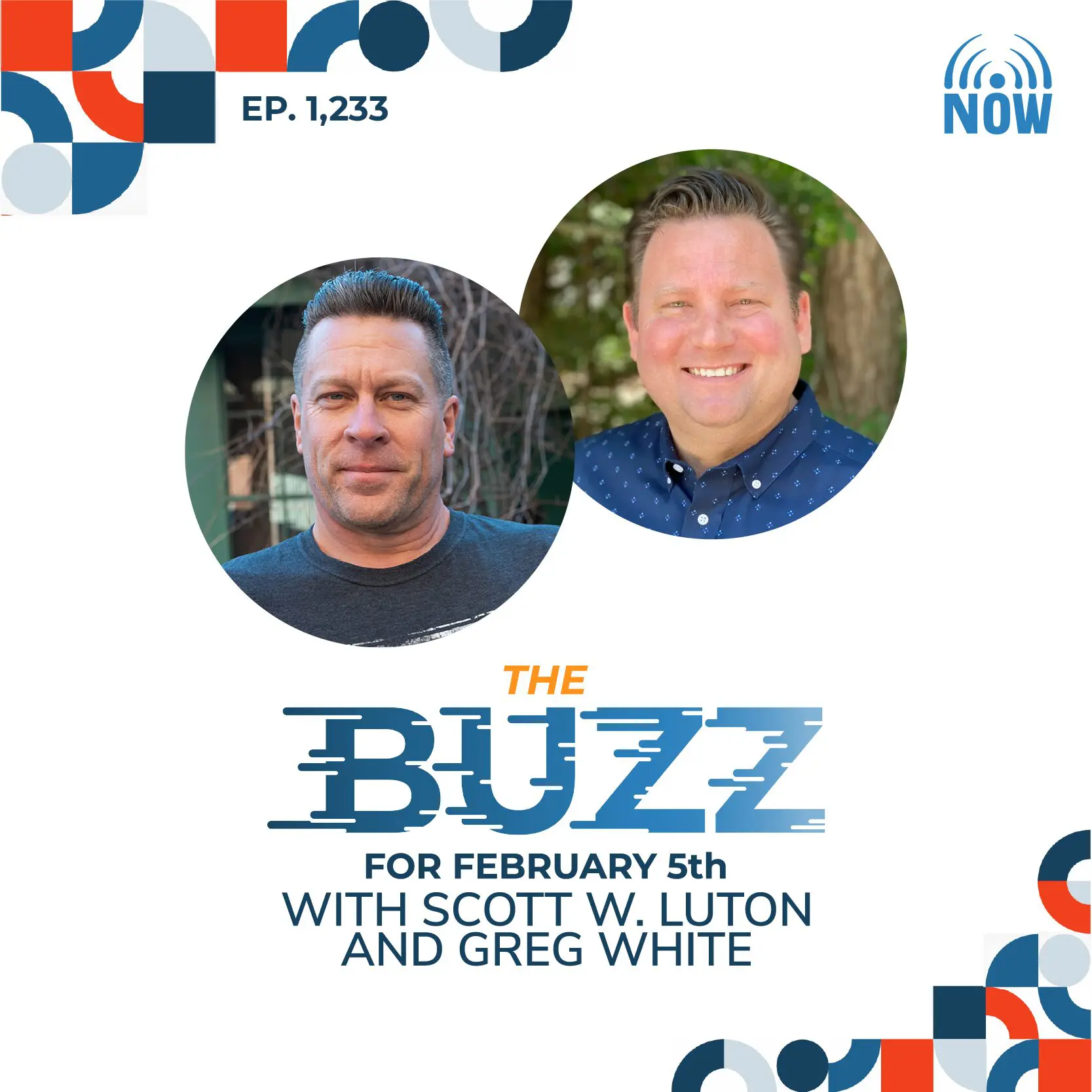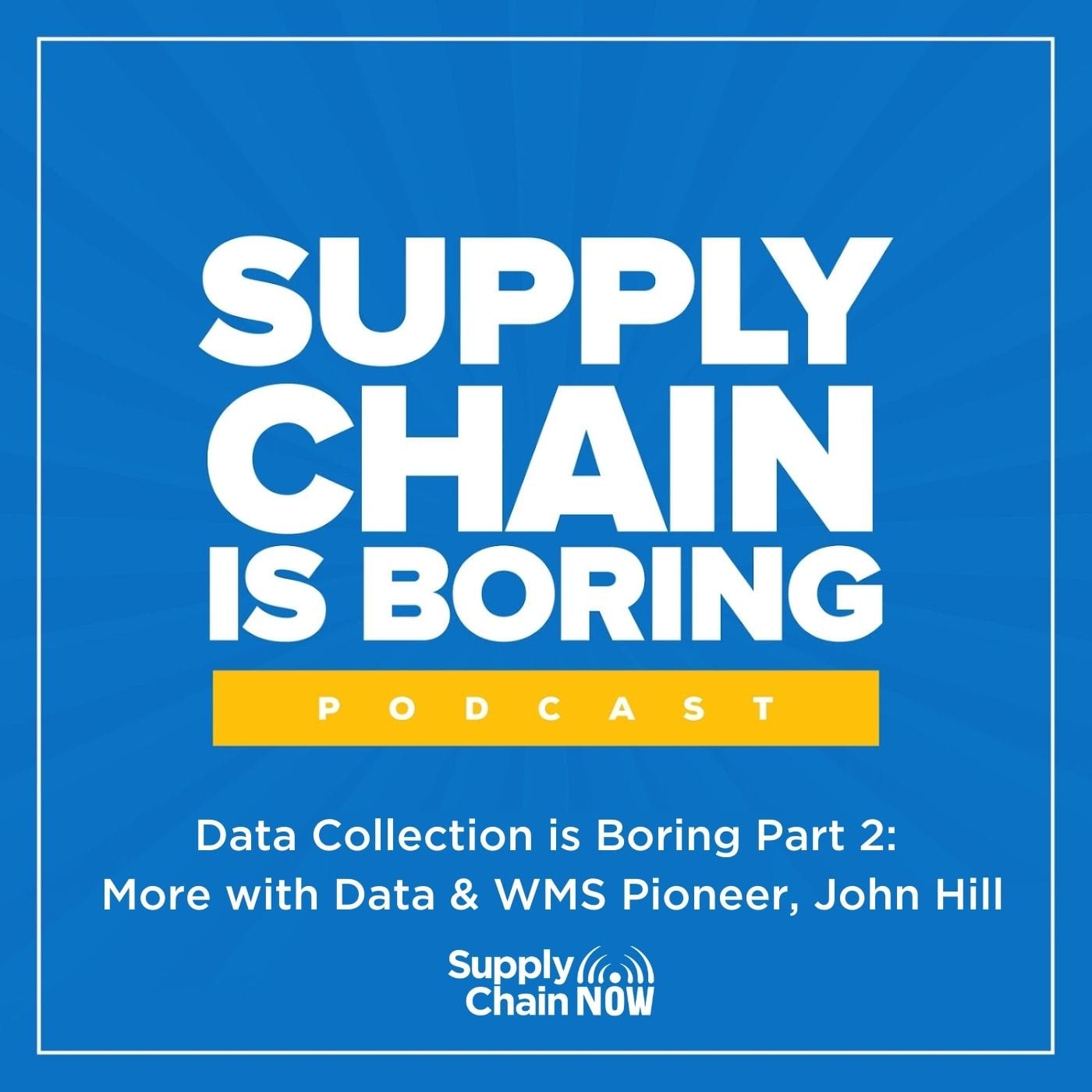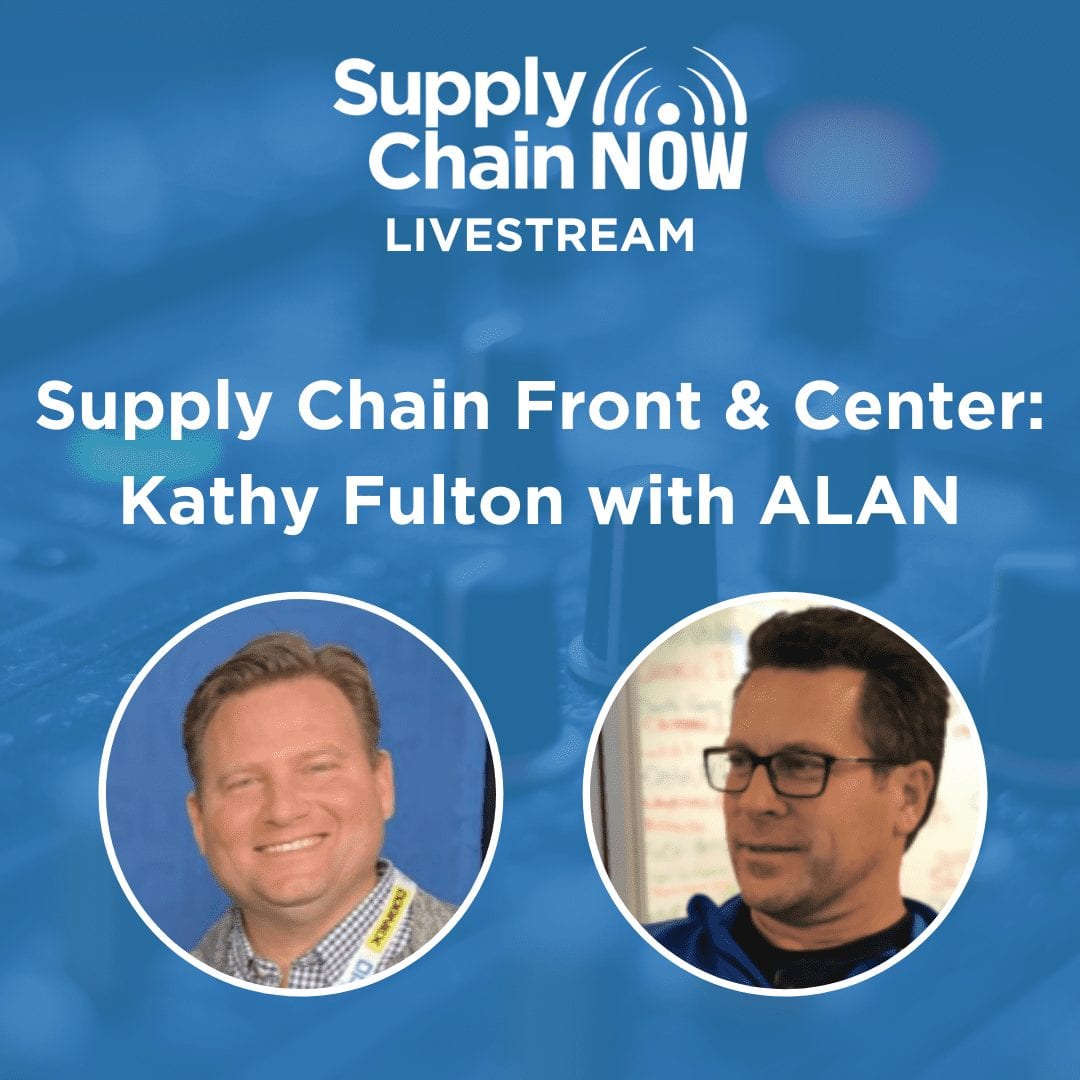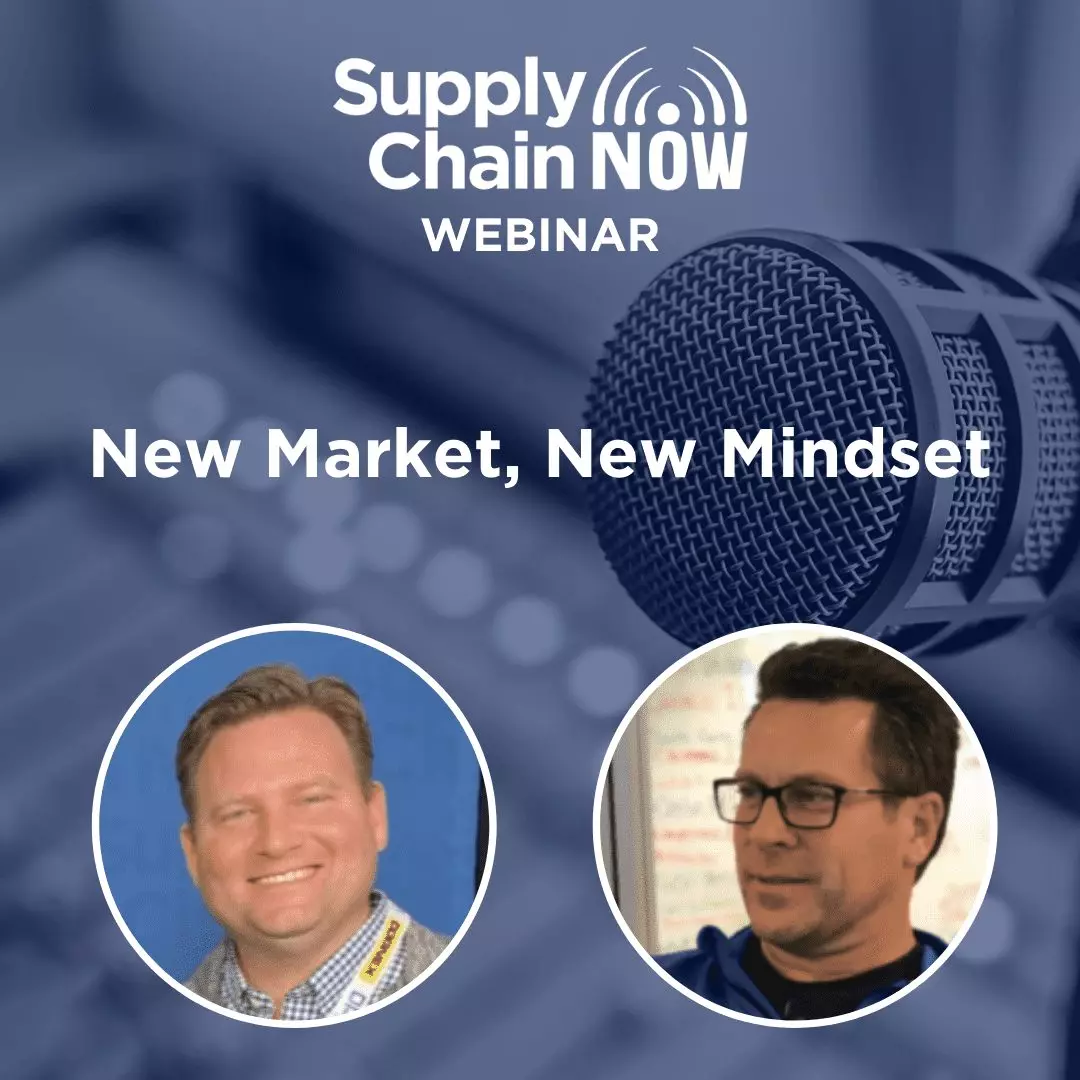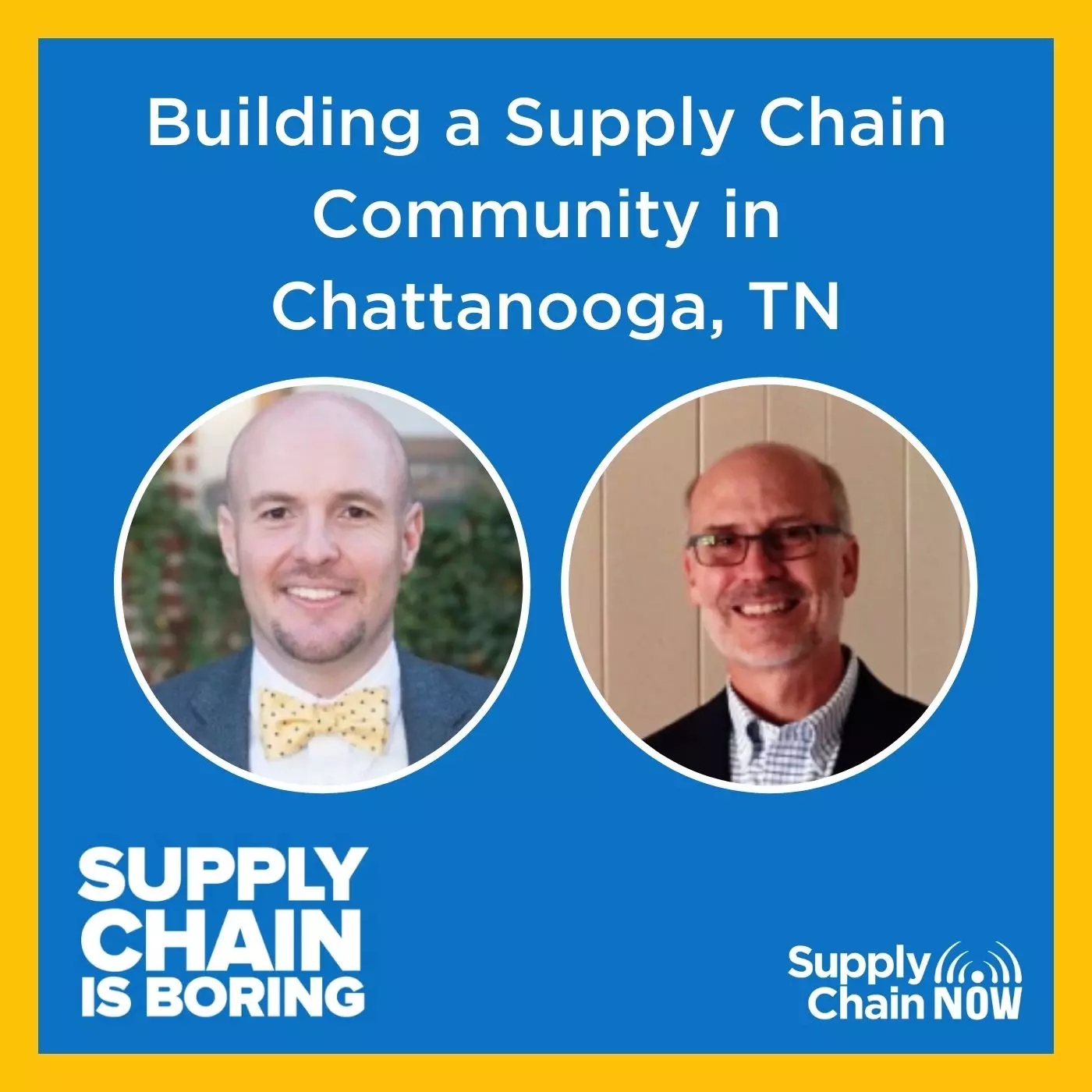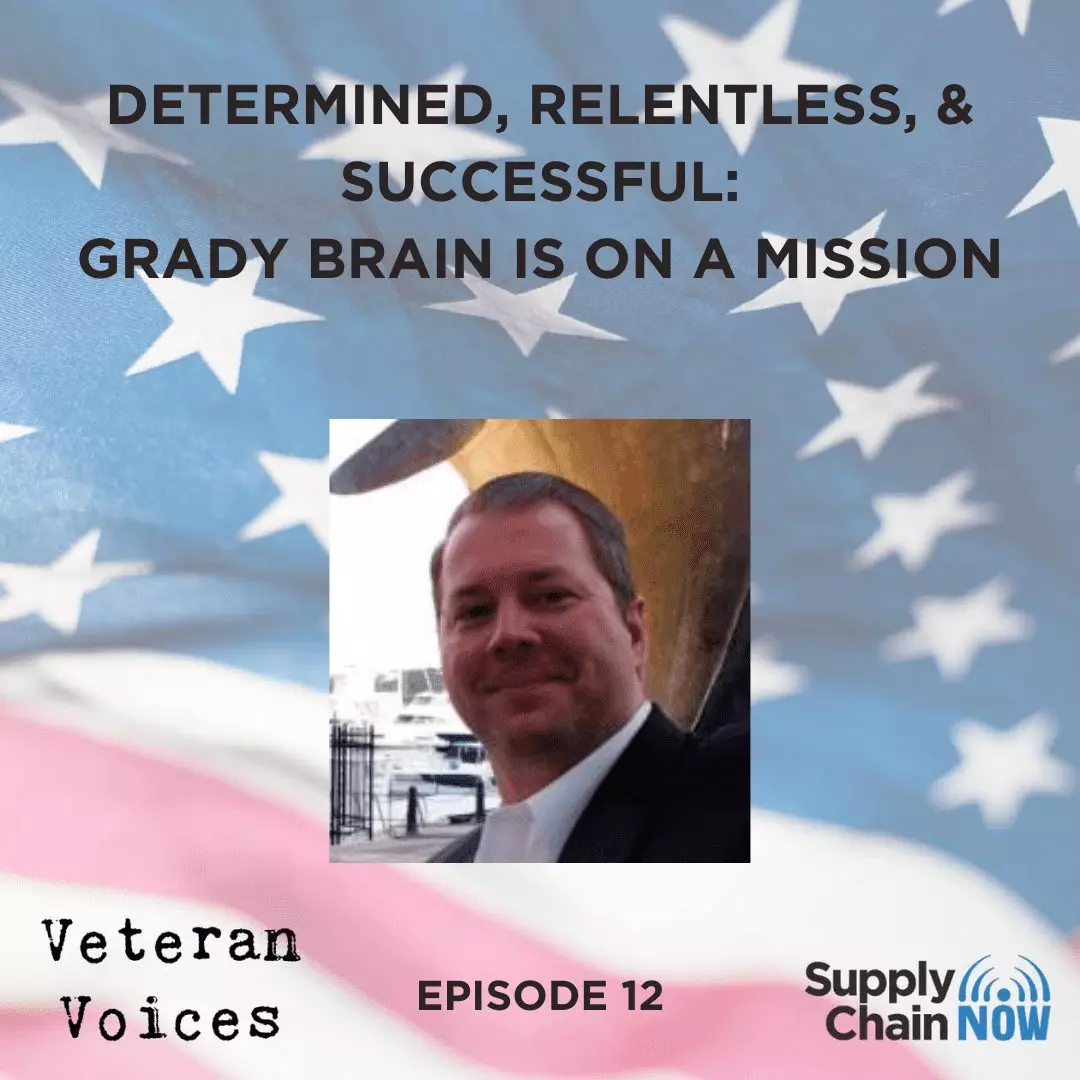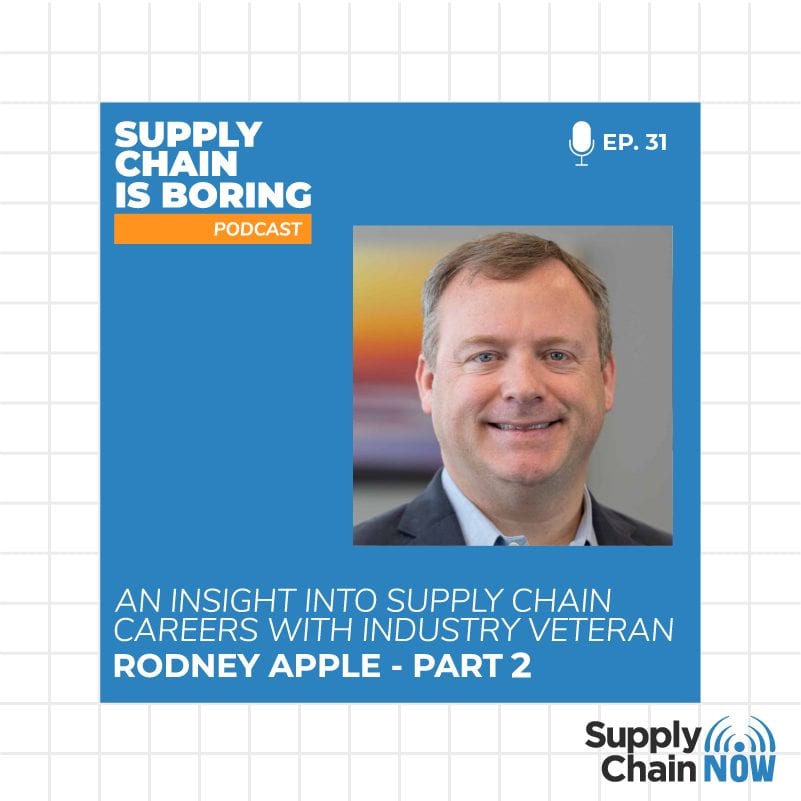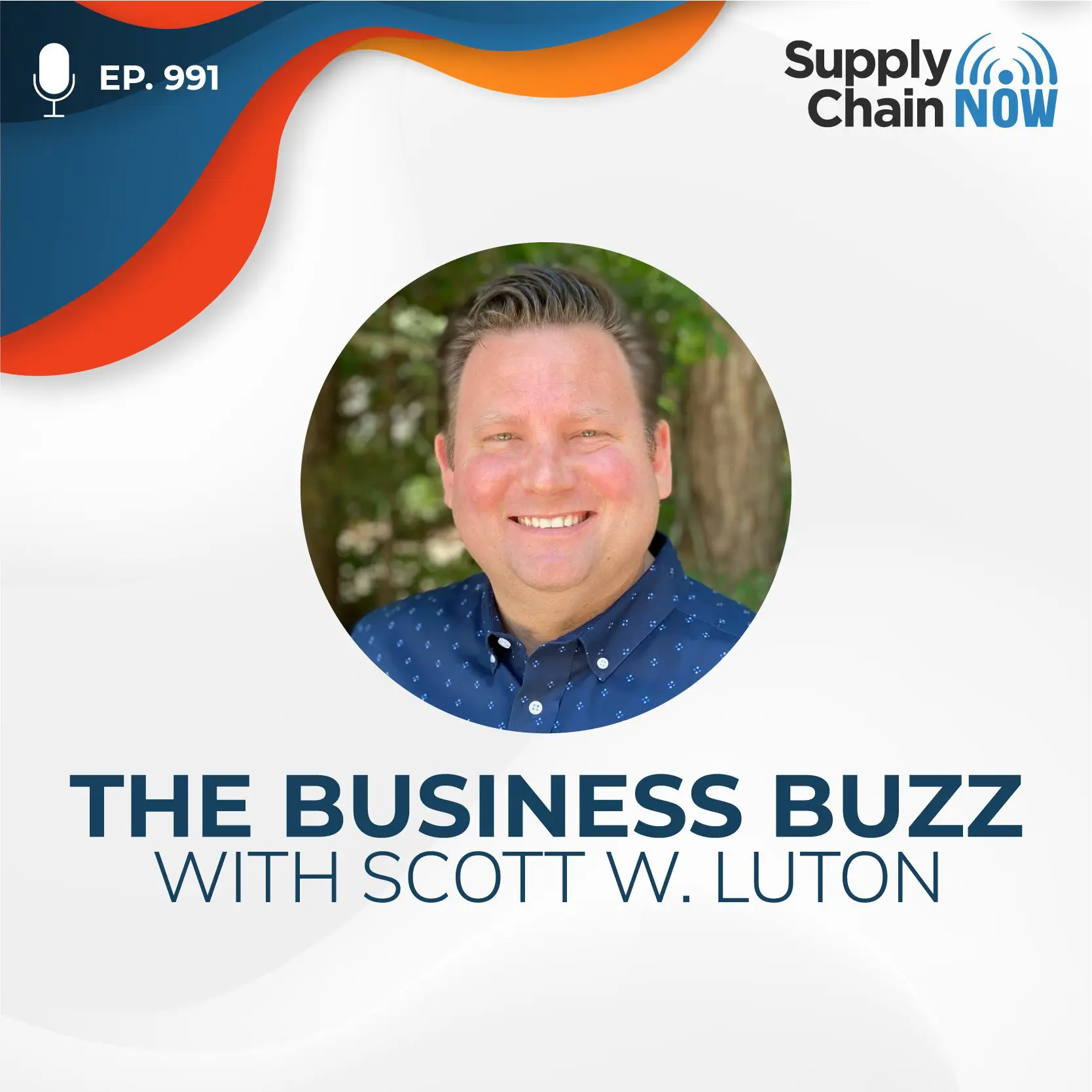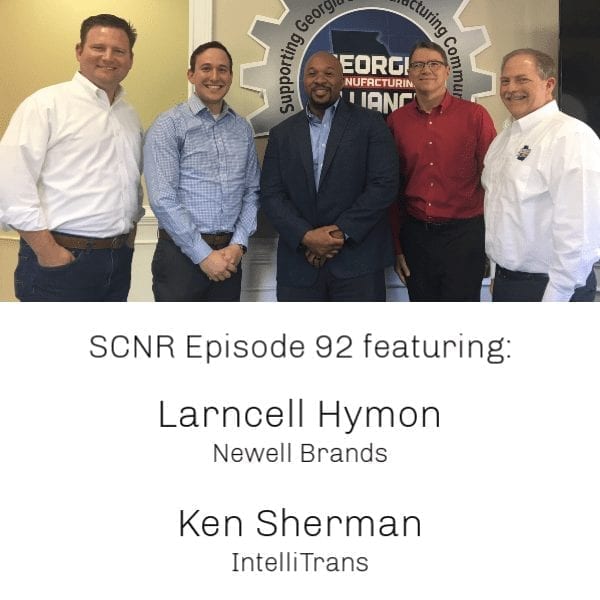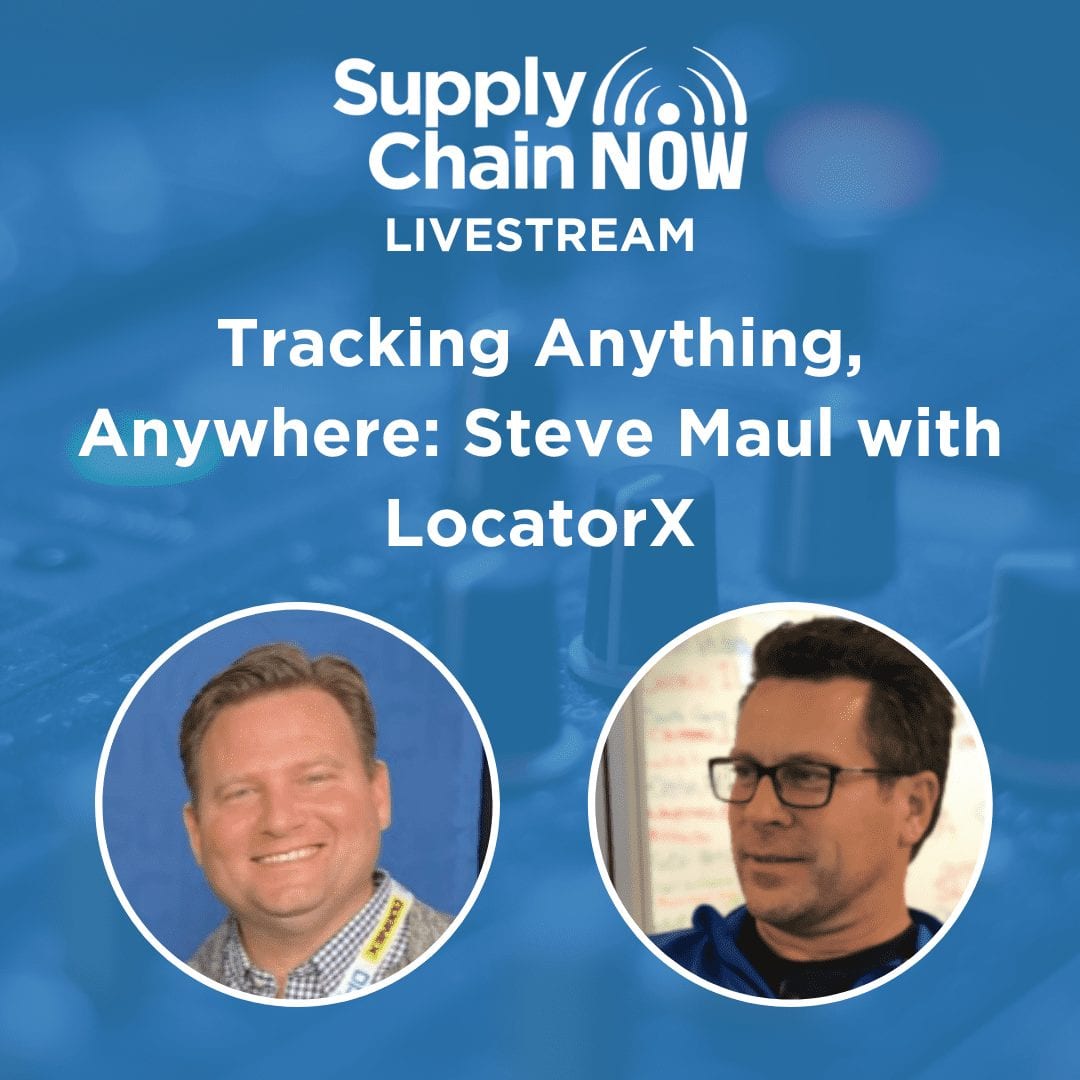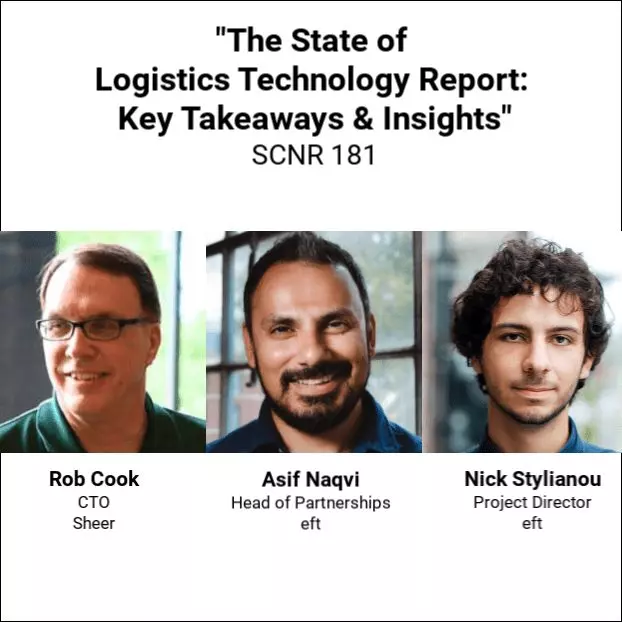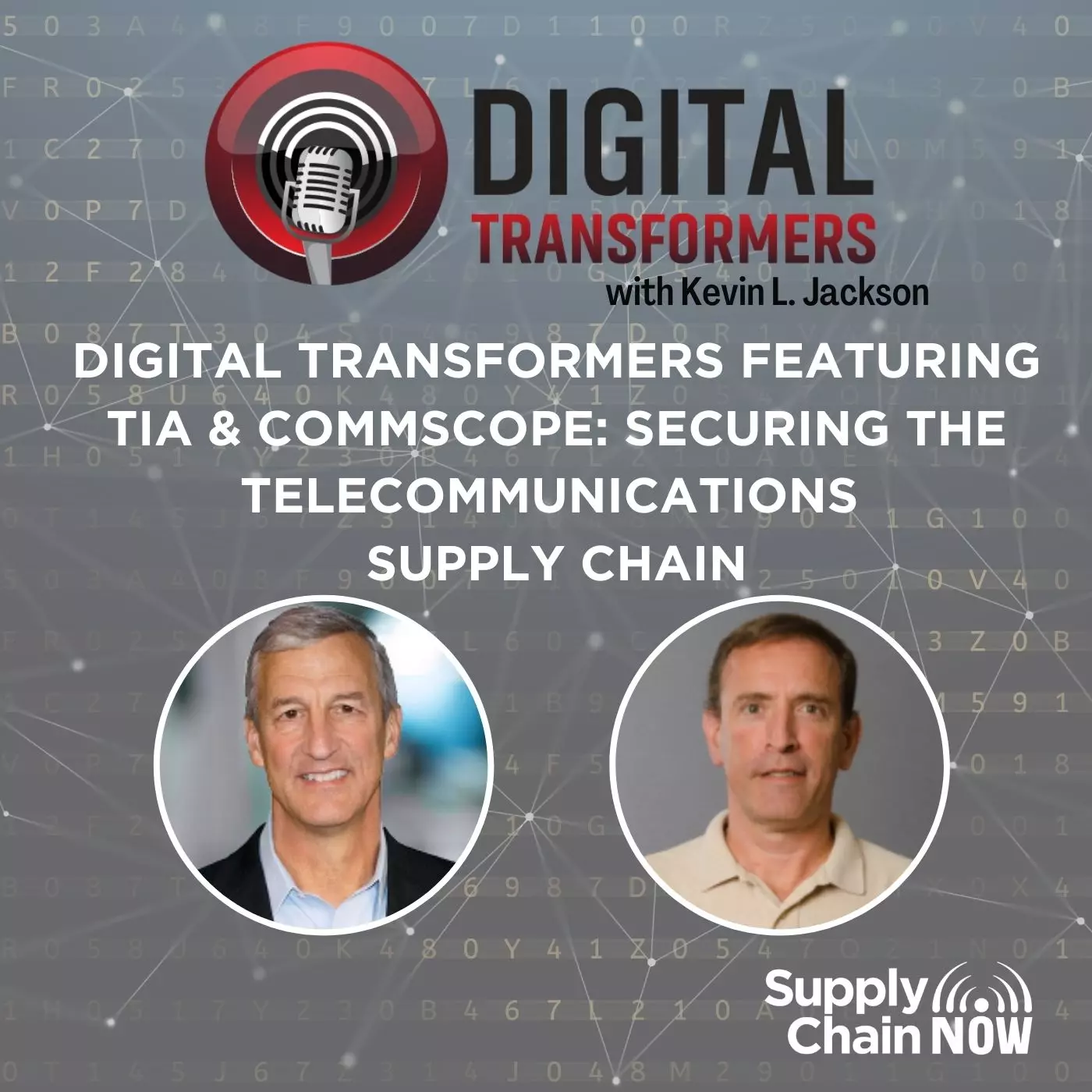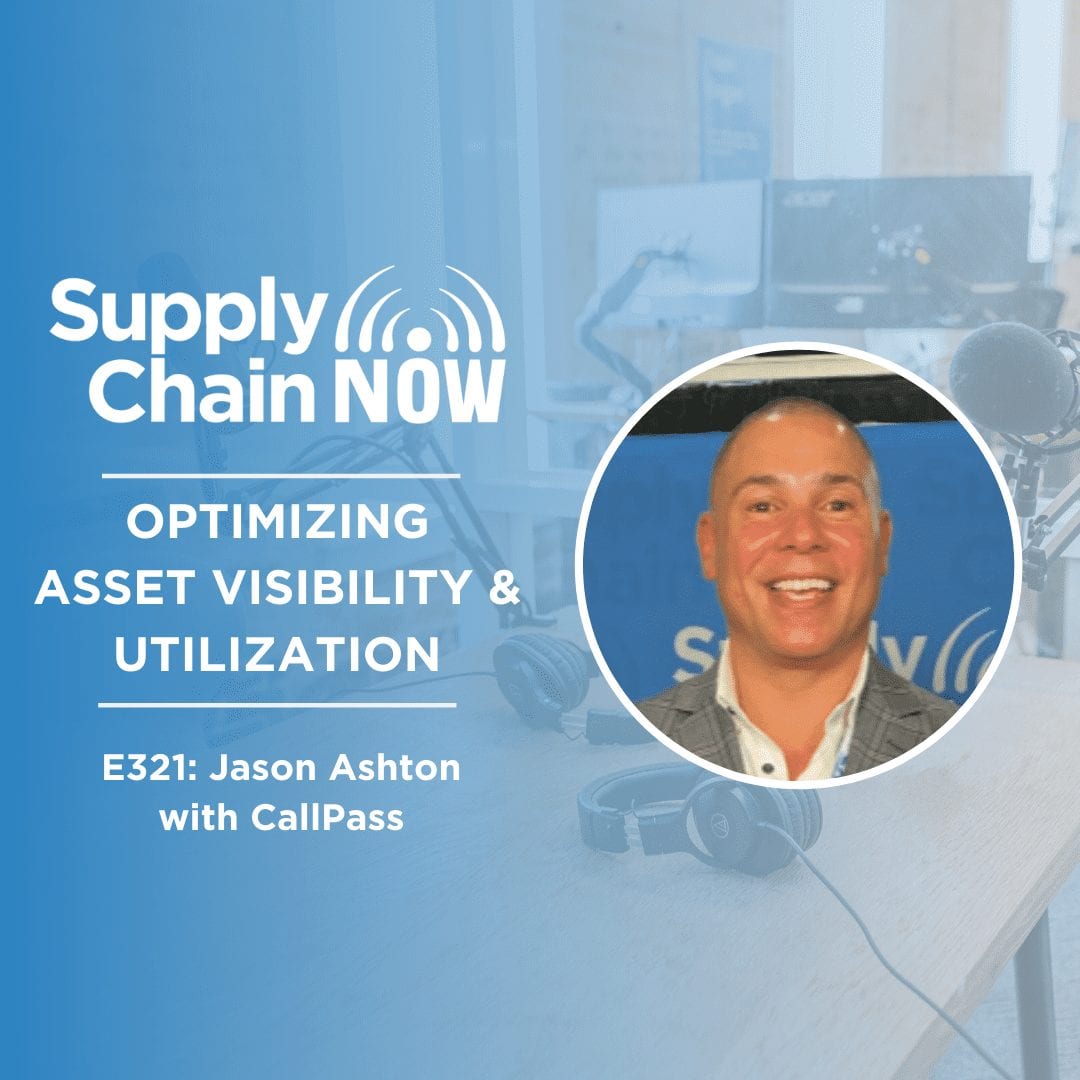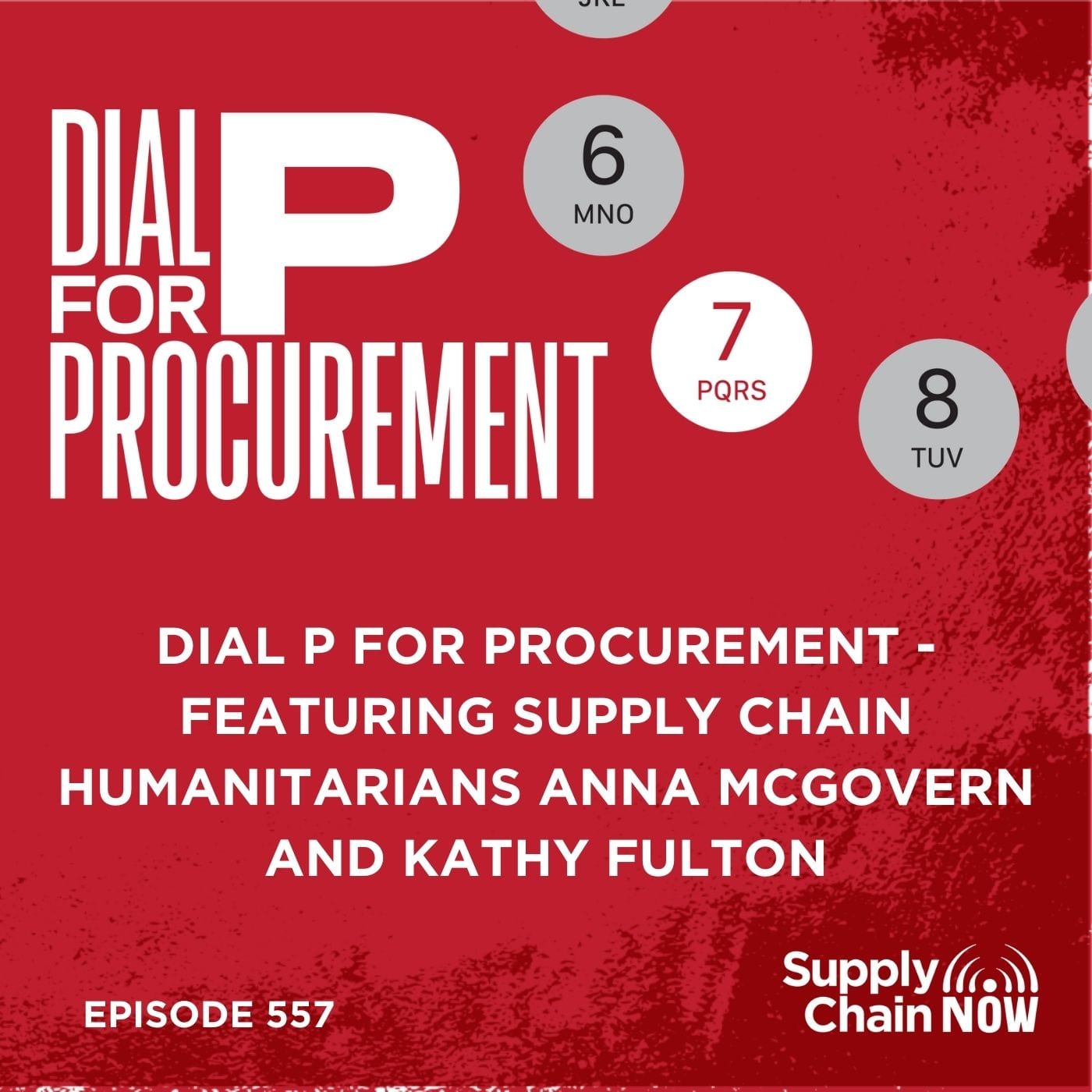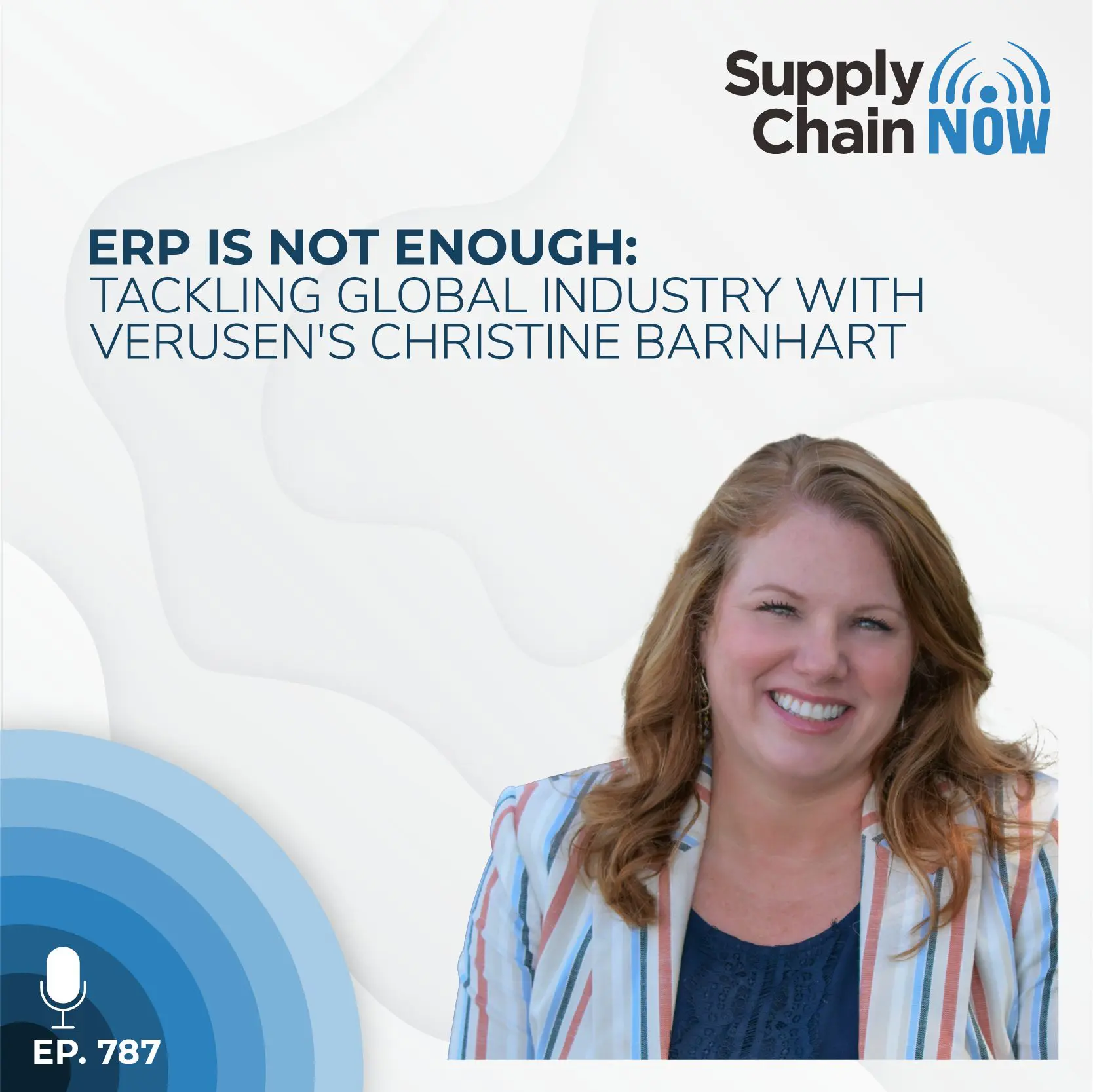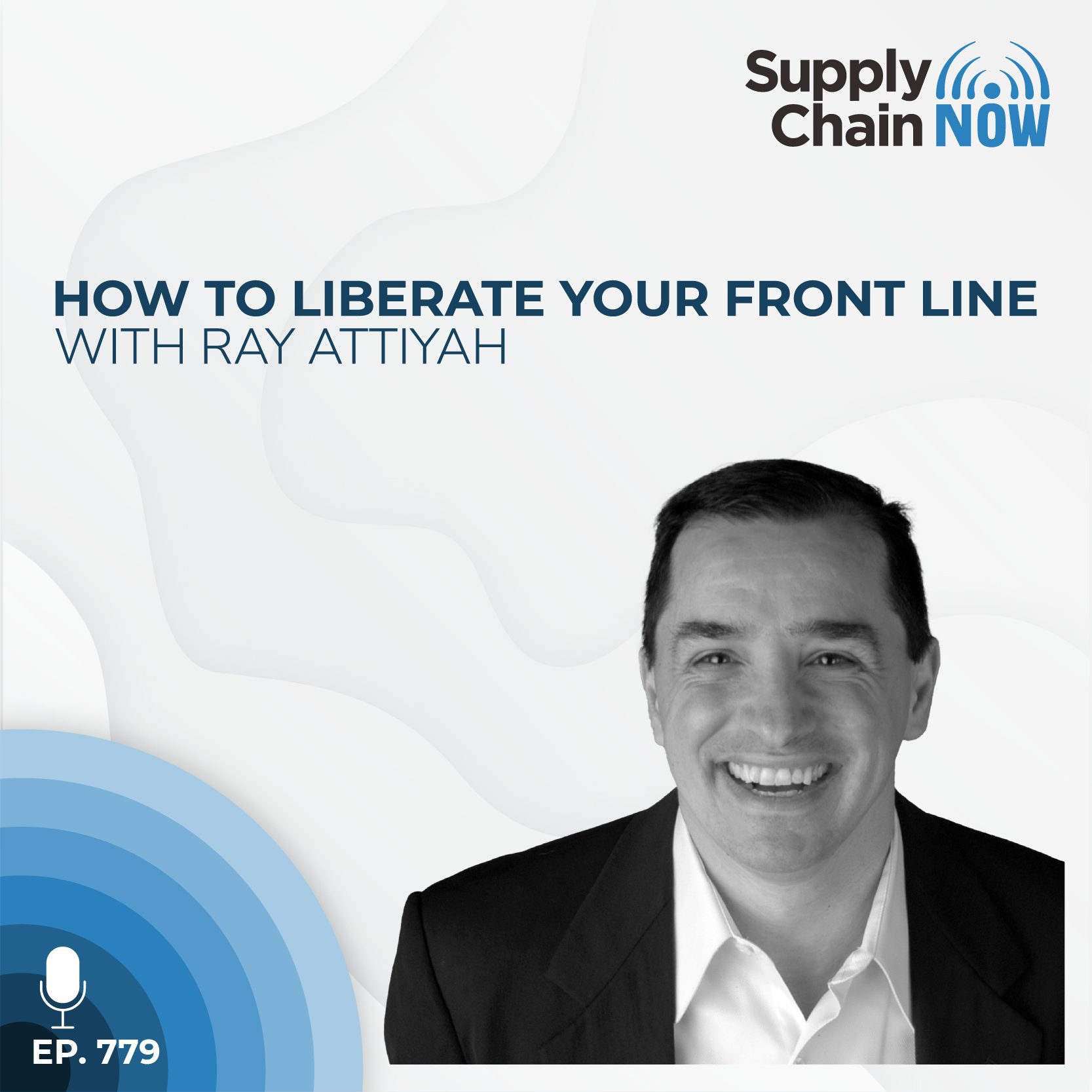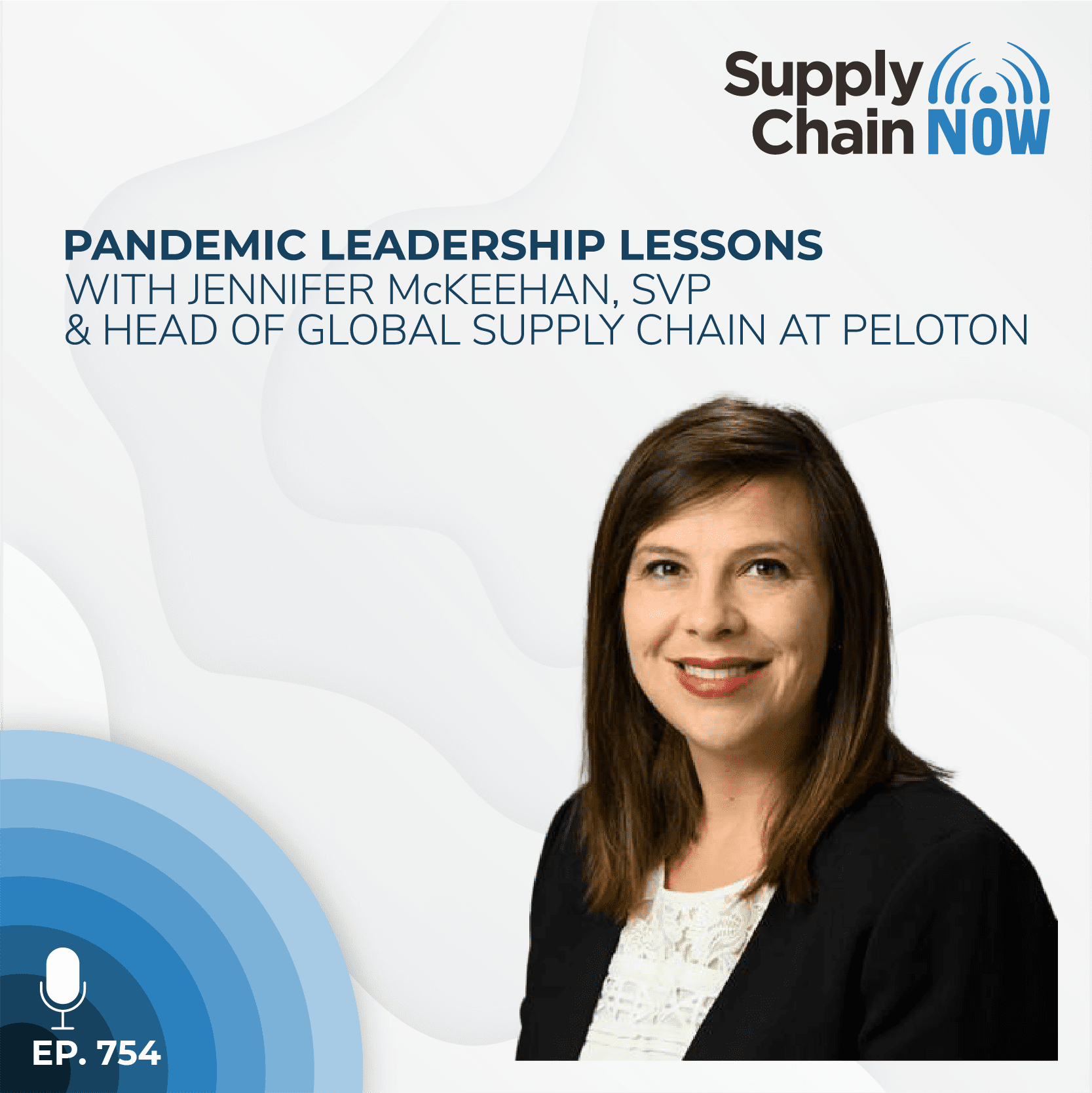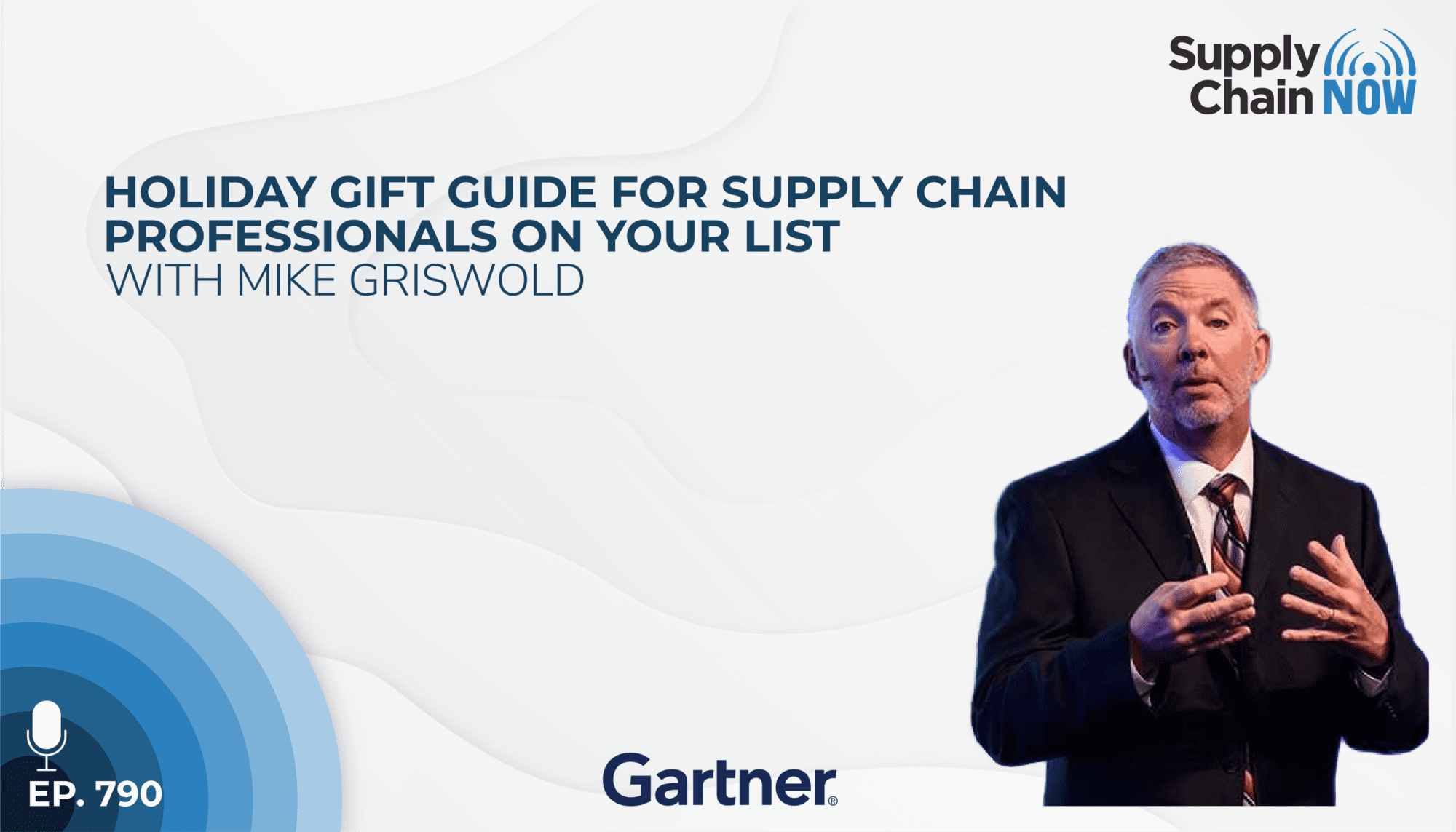
Given the last two years, I don't think there are any naughty supply chain professionals. I think everyone is nice or higher.
- Mike Griswold, Vice President of Research, Gartner
Episode Summary
Mike Griswold is the Vice President of Research at Gartner, specializing in retail with a particular focus on forecasting and replenishment. He is responsible for Gartner’s annual Top 25 Supply Chain ranking and joins Supply Chain Now on a monthly basis to discuss the latest in retail supply chains from an analyst’s perspective.
In the spirit of the holiday season, Mike joined us to share his gift-giving recommendations for all of the supply chain professionals on your list. While most of Mike’s ideas won’t fit under the tree, they are also unlikely to be out of stock – not even due to supply chain disruption.
In this episode, which was created as part of a Supply Chain Now livestream, Mike shares his creative gift ideas for supply chain teams with co-hosts Greg White and Scott Luton:
• The C-level position that every world-class company needs to add to their org chart as soon as possible (and why)
• This year’s ‘must have’ supply chain control tower visibility (batteries and clean data not included)
• And finally, rather than finally dishing out a pile of cash for a stationary bike, we should look at the possibilities of the hype cycle, knowing that we’ll all be facing a ‘trough of disillusionment’ of one kind or another come the first of the year.
Episode Transcript
Intro/Outro (00:03):
Welcome to supply chain. Now the voice of global supply chain supply chain now focuses on the best in the business for our worldwide audience, the people, the technologies, the best practices, and today’s critical issues. The challenges and opportunities stay tuned to hear from those making global business happen right here on supply chain now.
Scott Luton (00:31):
Hey, good morning. Good afternoon. Good evening. Wherever you are. Scott Luton and Greg white here with you on supply chain. Now, welcome to today’s live stream, Gregory. How we doing? I’m doing
Greg White (00:42):
Quite well. How are you doing?
Scott Luton (00:44):
I’m doing absolutely wonderful. It is gorgeous outside today. Have you been
Greg White (00:47):
Outside? Yes, I have. And I gotta tell you, I saw the outside better than I have for some time. I’m trying out contacts today. I have never in my life worn contacts. I gotta say you look pretty good, Scott.
Scott Luton (01:03):
So world I’m putting you on notice because as it was Gregory S. White never missed a thing. If he sees better than he ever has watch out folks watch out. Well, Greg, great to see you here today. Looking good. Yeah, of course. And warm and looking forward to get outside after today’s stream. But Hey, today we’re continuing our series supply chain today and tomorrow with the one only Mike Griswold with Gartner. Yeah. Uh, today we’re getting into the spirit of the season, Greg and offering up a holiday gift giving guide for supply chain professionals that may hold those special places in your heart. So you ready to get going? It’s gonna be fun.
Greg White (01:43):
Well, it may hold a special place in your heart and it may be the only thing you can get hold of also
Scott Luton (01:49):
<laugh>. That is so true. That is so true. And we’re gonna say hello to a few folks. We’ve got, uh, uh, a couple of, uh, folks that join us earlier in the week already tuned in and look forward to their POV here today. But before we get started, and before we say to some folks, Greg, let’s knock out a few, uh, quick programming notes. So today’s show is produced in sponsorship with a arc Greg who built our stunning new website supply chain now.com and is a leader in user experience design, uh, in development of websites, but not just websites, custom software or applications specifically for the supply chain industry. Big thanks is a here and the, a team over at maybe the, a team. Yeah. A arc. You can learn more@aarc.com. Greg.
Greg White (02:38):
Yeah. If you another example of what they’ve done, I mean, obviously look at the supply chain now site, but also vector global logistics and that transformation. Um, they did, they did their work as well. So, um, great team over there. They know tech, they know software as well as just websites. Not that it’s just a, there’s no such thing as just a website anymore. Is there, um, in fact, we were just talking to somebody who was having trouble with their website, something to do with like capturing leads or something like that. Right. So, yes, it’s amazing what we attempt to do with these websites. And these guys are great at making it happen for
Scott Luton (03:13):
You. They have certainly evolved, uh, a greatly, uh, over the last couple decades and it’s, uh, a formidable tool, but you gotta work with the pros. So y’all check out as arc.com. Also talking about working with the pros Greg transplants. Who’s had a bit of a big year. Yeah. Is joining us, uh, next week, huh?
Greg White (03:31):
Yeah. I don’t know. What was the, what was it? The something happened with them? I can’t remember what it was exactly.
Scott Luton (03:37):
They only joined forces with one of the, uh, big old business brands across the globe as they, uh, partner with Uber freight. So big things to come. Right.
Greg White (03:46):
Right. For all, all of you companies out there that say you wanna be the Uber freight. I, I got news for you. Trans place is already the Uber freight. <laugh> I love that. Along with Uber freight. <laugh>
Scott Luton (03:58):
I, I got at news for you with Greg white new series coming to your podcast channels in 2022. Hey, but it’s all about accelerating innovation through collaboration, right? In a very meaningful way. Innovation collaboration, those cliches are throw around all the time, but trans places on the move, you can join Karen Bura and I, and I who are hosting next. Week’s free webinar on December 9th at 12 noon. We’re joined by Christy and Michelle, both with trans place. And we’d love for, to, to also be joined by you. So look forward to a link to joining us on that webinar on December 9th at 12 noon. And we hope to see you next week. And then finally, Greg, you know, a little passion project of ours and yeah, mine and Kelly Barners is this week in business history where we drop a new, uh, podcast episode every Monday, really focused on the intersection of business and history, especially little known stories you may not know about. So this week I stole, uh, you know, my son, Ben is all about video games and comic books and video games. I learned a lot from him. Oh,
Greg White (05:03):
DC or Marvel. Does he have a preference?
Scott Luton (05:06):
Both. And he’ll tell you exactly. What’s what? And if you get it wrong, he’ll tell you that too. That’s good
Greg White (05:12):
To we, we need to have him on. Yeah,
Scott Luton (05:14):
We do. So I wanted to dive a little deeper in, in video game history. Of course, I’m a gen Xer from the eighties. NTEN entertainment system was a big part of my upbringing, but Greg did, you know? So the Nintendo entertainment system, I think came out in 85 that’s, you know, almost 30 years ago, check that 20, 80
Greg White (05:34):
Years 85 is 35 years, right.
Scott Luton (05:38):
About five years ago. Well, that platform is still the 13th best selling all time in terms of consoles. Right. Despite it being original Nintendo.
Greg White (05:48):
Yeah. Wow.
Scott Luton (05:50):
And get this. So Atari. Yeah. Had a, a tentative hand, you know this? No, no, no, no.
Greg White (05:57):
I, I just remember we got an Atari. Okay. I was a kid
Scott Luton (06:01):
P, which was a big right. P that was a, a, a, a, a big trail blazer that really got the video game ministry going in earnest. Well, Atari who had some big hits after P for sure. In the late seventies, early eighties, they had a handshake agreement to have the Nintendo entertainment system release under the Atari brand, but the deal fell through. And of course we all know what happened. And Nintendo obviously is still a huge, huge player. One of the biggest players, I think the, the latest console, I can’t remember what it is. Um, anyway, it’s like number two in, in all to time unit sold. So little, little miss there, but y’all check out five things. You didn’t know
Greg White (06:41):
What you’re saying is Atari could have been on like donkey Kong, but <laugh>, they weren’t cause the deal fell through. So Nintendo got donkey Kong. Yes.
Scott Luton (06:52):
Yes. Isn’t that such a shame? Did you play donkey Kong? I did on the, in television. On the, in television. Oh, wow.
Greg White (07:00):
So yes. I don’t remember. I don’t recall exactly when I started doing video games, but of course at first they were consoles in, well, in my case at Shakey’s pizza <laugh> or arcades, what was called an arcade. Right. I was pretty good at Galaga and okay. Apparent currently. So is my wife because one year for Christmas, I got her a Gallaga console. She came down the stairs, saw the Gallica console, started crying and said, and I quote, this is better than jewelry.
Scott Luton (07:32):
<laugh> Gallaga I love that man. And we all love Vicki, but man, I I’m gonna have to share that story with her. She’s a practical gift receiver, which is a good thing. No
Greg White (07:44):
Doubt. And she’s a hell of a Galaga player too, by the way. <laugh> don’t bet her don’t bet money.
Scott Luton (07:49):
Don’t bet money. I love that. Hey, check out this week in business history, wherever you get your podcast from and thank you, Josh goody own the money. Oh yeah. LinkedIn. It is at Nintendo switch, which is just has set, set the world on fire. And I believe that the, as of September, just a couple months ago, finally, the PlayStation five broke through cause a switch Nintendo switch had a three year headlock on the most popular consoles in terms of, um, of dollars. And I think units check me on that. But anyway, PlayStation five finally broke through. So, but the switch, which is what Ben has is extremely popular. Greg, I trust you have one.
Greg White (08:30):
No <laugh> no, I hung up my gaming thumbs
Scott Luton (08:36):
A while back. Okay. Hey Josh. Thanks for being there, Johnny on the spot. Great to have you back this week for another live stream, looking forward to your POV here today, as we work through our gift, buying God for those dear supply chain professionals in your life. Also a big shout out max Gomez is back with us. I think this is his third live stream with us this week. And Greg, I think I owe max a book. I’m gonna have to get on, uh, get that going to max.
Greg White (09:01):
Right? Cause he wanted, he wanted some information on supply chain education, right? That’s right. Um, yeah, that also, uh, what am I thinking of? There’s some really easy video. Um, Mosier, what does he call it? I’m so embarrassed. We’ll look
Scott Luton (09:17):
That up. Uh, so Amanda, if you can Google that Mosier has a wealth of supply chain ed education parked over at YouTube and across social. Yeah. And we will look that up and show easy
Greg White (09:28):
And cost effective access to some really good training. Right.
Scott Luton (09:33):
And practical and practical. Yes. So great to have everybody here today. Okay. So I want to welcome in if you’re ready, Greg, we’ve got a, um, a re another repeat guest. Uh, one of our most popular repeat guests we have to this time we had to go through his agent to get him booked because Hollywood was calling at the same time. That’s right. And it’s one of our most popular shows. I wanna welcome in Mr. Mike Griswold, vice president analyst with Gartner. Hey, Hey Mike,
Mike Griswold (10:03):
How you doing? Hey, I’m I’m, I’m glad you could work things out with my, uh, with my manager. So it’s, it’s great to
Scott Luton (10:10):
Be with you guys. See,
Greg White (10:11):
You did a wardrobe change since the green room.
Mike Griswold (10:15):
Yes, I was. I was not about to do any unsolicited sponsorship, so, um, yeah. <laugh> so, uh, it’s great to be with you guys. Um, my first gaming platform was in television, so I know I’m gonna date myself with that. I think there’s one probably in the Smithsonian and Greg, uh, kudos to the contacts. I had them for a while. I got laser surgery. I was never able to master contacts without a mirror. Yeah, me neither once you’re. So to me, those are the contact experts. The people that, you know, like in the middle of walking down the sidewalk, they can pop ’em out and pop ’em in. It’s like, that’s like next level contact management. I never
Greg White (10:55):
Got to that. I hope to never, or be that proficient. Adam, Mike <laugh>. Um, yes. And, and you know, my vision, isn’t terrible. As my doctor said, you’re a bit of a wimp when it comes to tolerating or he said most people would kill for the vision that you have though. That was a few years ago.
Scott Luton (11:13):
Well, I used to get away with a few things and now, uh, Mike, I’m not sure if I’m gonna get away with those, uh, now that Greg’s got better than 2020 vision,
Greg White (11:22):
I’ll tell you what, I’m gonna start shaving a lot better. Now I can tell you that <laugh>
Scott Luton (11:26):
<laugh> well, Hey, really quick, Sheldon. Thanks so much for joining us. Once again, here today. Great to see you via LinkedIn SCM dojo was what we’re after there with Dr. Moodier. So thanks being there. Max checkout, SCM dojo for a wealth of education and insights on supply chain and of course Gartner, which I’m sure we’ll touch on later in today’s show, uh, a ton of resources there, including one of our favorite things at top 25 in supply chain, we learned so much from what the leaders in the industry are doing. Okay. So Mike and gray, we’re gonna have a little more fun before we get into our holiday gift buying God, we’re gonna be talking about
Greg White (12:05):
What’s that I said hot dog. Let’s go. Oh, hot <laugh> okay. No, I didn’t mean like the food, although yeah. Well, it is amazing how often we on these shows,
Scott Luton (12:13):
Isn’t it? I thought you were guessing what day it is and, and no hot dogs are not related to today’s, uh, special day, but it is the history of business of popping corn day. Now I’ll tell you to tie in here, cuz that, that, that name does not just roll off the tongue on December 2nd, 1885, Charles CREs, the prod of Lebanon, Ohio invented the first large scale commercial oil, popcorn pop. And guess what folks? It was steam powered. How convenient is that? Steam powered popcorn. They really wanted, they really wanted some good popcorn back in 18 85, 18 85. So that,
Greg White (12:53):
I mean, so that should give you some idea of how important it was one and the kind of power that it takes, if
Scott Luton (12:59):
Right, right, right. No word. If Charles Kres ever hooked up with, with, uh, Robert Fulton to bring popcorn to the masses, we shall see. But Hey Greg and Mike, as I mentioned, we got this, uh, superior popcorn device and there’s, there’s several brands out there not to pitch just one, but the most important thing is it cooks the popcorn. Like you get movie theaters, ballparks and whatnot, and it doesn’t burn it like so many microwaves do. And I liked it so much. We gave my parents, my mom’s a big popcorn lover. We gave them one, uh, for the holidays. So my question to you and Mike, I’m gonna start with you. What’s your favorite popcorn and where do you get
Mike Griswold (13:38):
It? So like you Scott, a couple of years ago, I got my wife, one of those popcorn makers that, you know, sits on a stand. She even bought the plastic popcorn boxes like you, you can get, oh, so that that’s really good. But you know, if, if have, if I have an itch for popcorn, it’s usually let’s go to the movies. Right? For whatever reason, movie popcorn, you know, I’m a butter person. So I have to have my own. My wife is anti butter. So she gets her
Greg White (14:07):
Own <laugh> salt. Mike are salt, also
Mike Griswold (14:10):
Lightly, lightly salt. My wife is like 30 minutes with salt shaker. So if
Greg White (14:15):
She would put butter on, it would be like 30 seconds with the
Mike Griswold (14:19):
Yes. Yes. But you know, it’s all good. We have our own buckets, but usually it’s if, if I’m really looking for really good popcorn it for whatever reason and it doesn’t seem to matter the theater chain either. It just, it just tastes better at the movies.
Scott Luton (14:35):
Agreed hundred question. Agreed, Greg, how about you?
Greg White (14:38):
Yeah. Well it, uh, at least around here, it does matter the chain and of course it’s movie theater popcorn. What else would it be? But there’s this chain called NCG and everything is kind of out front. You buy your tickets, you buy your drink cups and your popcorn cup at the entrance. And then you go and you can refill all of it. Uh, yourself. Well, not the popcorn, but they do this amazing thing. And Mike, as a butter fanatic, you will, you will love this. They do this amazing thing where they will fill the tub. How halfway full let you go put butter on that. Oh yeah, yeah. Shake it around. Yes. And then fill it the rest of the way full and then you can put butter on it. So all of it gets very nicely butter. Yeah.
Mike Griswold (15:21):
That that’s always been the downside of movie popcorn, right. Is when they say butter and you say, yes, the, the bucket or the, whatever your contain, your size of preference is already full of popcorn. Yeah. So you’re eating a couple then you’re trying to do the shake, but not have it fly all over your seat. So that’s a great strategy. <laugh>
Greg White (15:41):
Great customer service. Yeah. I think it’s brilliant. And they, I mean, they’ve even gotten it figured out for the newbies. That’ll go. Do you want to have fulls and tell ’em why they would do that? You see people going, oh my God. Right? <laugh> what genius. This is. Yes.
Scott Luton (15:57):
So I think this is Amanda Garrett, cheddar and caramel popcorn in Chicago. So that’s gotta be, um, that doesn’t sound good to me. I don’t like mixing my, uh, sweet and my savory, but Hey, different strokes, different folks. And by the way, any
Greg White (16:10):
Flavor of Garrett’s popcorn is outstanding. Oh my gosh.
Scott Luton (16:14):
Yeah. Yeah. So Adam’s calling us out, uh, just tuned into the popcorn chat. Amazing. Say, Hey, we’re, <laugh>, we’re getting down to business in just a minute. Adam. We’d like to have a good little bit of fun on the front end. So great to have you here via LinkedIn and looking forward to what’s on your holiday gift buying guide for, uh, supply chain profess in your life. Okay. So Mike and Greg, again today, we’re gonna be talking about the holiday gift buying guide for all the naughty or nice supply chain professionals in your lives. And when I think we’ve got three main areas or gifts as it were Mike, we’re gonna be working through. So why don’t we start with the first one?
Mike Griswold (16:53):
Yeah, I think it’s there, there are given the last two years. I don’t think there’s any naughty supply chain professionals. I think everyone is, is nice or higher. Whatever’s whatever’s above nice angelic angelic. Perfect. Right. As I was thinking about, about what we wanted to talk about today, and I started to reflect on some of the things we’ve talked about over the course of the year in our time together, one, one came to mind immediately, and that is having companies wake up on the 26th and they have some type of chief sustainability officer, right? Somewhat. Now I I’m a little hesitant just to label it sustainability because what I’ve think companies really wanna find under their tree is a role that not only is championing the sustainability effort, but also the people effort, the de and I types of things, right? When I think about our supply chain, top 25 methodology, we have a component that we call ESG.
Mike Griswold (17:51):
It’s, it’s going to be 20% of the evaluation for 2022. Right. And we renamed it ESG because we wanted E for the environmental, but we also wanted the S and the G the social and the governance. So maybe companies can wake up and find, you know, a chief ESG officer on under their tree. If I think about what we’ve been spending a lot of time at Gartner talking about the theme of our keynote people, profit planet, right? All three of those things are becoming incredibly important to organizations, both internally. If you look at what you see in the press around associate sentiment of about the things that are important to the company they’re working for, that is definitely growing. And we’ve always had, and we’ve talked about it here quite a bit. We’ve always had that external pressure from our, from our customer. However, we define that in terms of wanting us to be more socially visible, more environmentally responsible.
Mike Griswold (18:49):
And now over the last two years, we’ve seen that really come to land at the feet of the supply chain. And we are being asked to be more and more responsible as stewards of the planet, being examples, uh, around social topics. And I think organizations that try to handle that P piece meal, meaning, Hey, we’ll have HR do this. Mm-hmm <affirmative>, uh, or we’ll have HR and someone else tackle this separately. I think you run the risk of, of mixed messages or, or frankly, no message. Right? So having someone that is going to be your champion on these incredibly important topic, I’d love to have organizations find that on the 20 on the 25th excellent
Scott Luton (19:36):
Point, you know, you can’t piece mill culture and, and that’s one, that’s kind of what you’re implying there. Uh, but Greg, what’d you hear there and what are your thoughts around this first suggested
Greg White (19:45):
Gift? Well, you know, we talk about a lot about visibility and supply chain and, and diversification, and all of those things have to be centered around the supply chain itself. So whatever you call that role, if you call it chief ESG officer, or you call it chief supply chain officer, or you make it, you make it combined role or something like that, the connection is critical because the opportunity to the flaws, the fragility, and I wish I could think of a third F but the bad stuff going on in your supply chain. I can, I just thought of a third F word, but I’m not gonna use it. The ability to, to really hone in on those things is as the product is moving, as you’re experiencing the transactions, as you are seeing the provenance of the product, as you’re seeing the handoffs of the product, as you’re seeing the, the fragility and resiliencies in your supply chain, and then doing something about it, the data is there in many cases to do things about it.
Greg White (20:47):
And I, it falls to us as supply chain professionals to do that. So, um, and I think a lot of us have a passion for just generally fair trade. Nobody likes getting screwed over or screwed up by their vendors, and we don’t want to do it to the entire world or to, you know, or to the delicate populations or to the delicate environment either. So, uh, I think it’s a natural role for us to have centered in supply chain. However, it reports, it needs to ultimate ultimately be reporting up through supply chain because all of those things create risk in the supply chain. And it’s, you know, I say all the time, this is a risk balancing exercise, supply chain. And every time we eliminate unfair trade or poor sustainability practices or poor cost practices or whatever, we eliminate a fragility in our supply chain. So we do better by doing good.
Scott Luton (21:44):
I love that,
Mike Griswold (21:45):
Mike. Yeah. What what’s interesting, um, Greg is when you think about finding people for this role, right, it’s kind of a, there’s definitely, as I talk to the analyst on my team that covers sustainability, it’s really a double edged sword. On one side, there are a lot of people that are incredibly passionate about topic. And I think this is one of those topics that you really need people that are passionate about this. Yes, you want people that are interested in forecasting and replenishment, right? But there’s a different level of passion that, that at least I’ve come across in people that are interested in these ESG topics than some that is, I don’t wanna say just, but just interested in forecasting replenishment, that’s kind of the good news. The bad news is these people are getting scooped up very quickly. So it’s one of those things where, you know, if you decide and you agree kind of with this, this short conversation, man, I really need to find someone when you find someone you better grab them. Mm-hmm <affirmative> because someone else is gonna grab them. And we, we saw that when we were, when we were building our own sustainability team here at Gartner, in terms of, you know, we find someone, we like, we go through our process and then we wake up the next day and they’re gone. They’ve been scooped up by somebody else. So there tons of people out there that have the passion around this topic, when you find one, you need to move very quickly. Cuz if you don’t, someone else will
Scott Luton (23:17):
Excellent point, Mike. And, and that could, that could apply to the talent market in general right now,
Mike Griswold (23:22):
Right? Yes. For sure.
Scott Luton (23:24):
So, you know, for number two on Mike, on, on your list, it’s, it’s an interesting, you know, I was talking with, uh, a local TV station day, uh, on an interview. And as I was gathering my thoughts in the last few days, I was going back to look at a lot of what we were talking about pre COVID and surprise, surprise, surprise. Visibility has been a challenge for quite some time mm-hmm <affirmative> and here it sits on number at number two on your list.
Mike Griswold (23:51):
So tell us more. Well, it’s always good when we can get a Gomer pile reference into, uh, into our broadcast, whether that was intentional or not. And I’m definitely dating myself now. So when I, when I make a Gomer pile reference, everyone now in our audience is Googling, go, yeah, go anyway. Uh, yes. I mean, to me, this was, as I was thinking about, man, what, what would I wish for, for supply chain professionals, you know, going into 2022 it’s, it’s something around visibility and I know kinda, and, and Greg can certainly speak to this better than I can. You know, the easy answer is, is this idea of control tower, right? That, that was kinda one of the things that has been talked about for, for a number of years. I think even, even us at Gartner have spent a lot of time talking about control towers, but I think it it’s, it’s more than it’s more than a technological solution.
Mike Griswold (24:47):
It’s also just a, a, a, your earlier comment, Scott, around culture. It it’s a cultural kind of Renaissance that says we’re just gonna, we’re just gonna be more transparent and we’re gonna be more visible across the supply chain. And whether that’s, we’re gonna create ways where we have more internal visibility to things that are moving around our supply chain to Greg’s point around, you know, it’s hard to make those risk trade off decisions if you don’t have complete visibility, because then you’re making decisions with less than all of the information. And I know in the supply chain, we never have all the inform we would like, but we can get more of it than we’ve had in the past, through this idea of, of visibility. I think the other thing that’s that I found fascinating is I talk to, and I think this is to, is I talk to technology companies and Greg would love your perspective on this.
Mike Griswold (25:41):
What I’m finding is I talk to technology companies is they’re pushing their customers to think about control towers in, in some different ways, right? Not just where, where are my physical assets, which is kind of how control towers grew up, right? A big map. Here’s where all my trucks are. Here’s where all my DCS are. Here’s the little dots moving around the country. That was kind of how control towers got started. <affirmative> as I talk to technology companies, now they’re saying, Hey, that’s still important, but you also need to know where inventory is. Yeah. You also need visibility to forecasts. You need visibility to orders, so that as you layer these different elements of visibility into your network, you can start making maybe different decisions than maybe we’ve made in the past. So I encourage people, right? If they’re making their list of Santa to ask about like, how do I get more visibility? Because when I look at our leading companies, resiliency and agility are, are two common denominators that’s enabled for those companies through visibility. Mm.
Scott Luton (26:50):
All right, Greg, I know you’re chopping at the bit.
Greg White (26:52):
Yeah. A hundred percent agree. And I think it’s on, it’s on the, what the logistics industry calls the shippers to open the doors to trans, to parent, to me, the, the absolute necessity of visibility is transparency. It’s sharing what in the past, Mike, you and I have talked about this a lot. What may be uncomfortable, but is ultimately beneficial, right? There are lots of things that in our retail practices, we were not comfortable sharing with our vendors. Just imagine if we had right. Somehow figured out to sh how to share data during times of COVID, how much better we could have been, or how much quicker we could have responded or even recovered after catastrophe hit. And yeah, I completely agree. The other thing I agree with is you’re talking about is visibility, right? And control towers, control towers are a rail road notion, right?
Greg White (27:45):
It’s if you think about it, it started with knowing where the cars and the various engines and whatnot switchers are in the yard. And it’s been, as you said, largely a transportation notion, but it needs to be more broadly applied and it needs to be applied to not just product in motion, but when should product be in motion, when should POS be cut? What should we expect? How do we rate carriers and things like that. So there is a lot of opportunity, especially with the wealth of data out there today, to be able to be preemptive, not just responsive, not just know what’s wrong, but to predict what could go wrong and to do something about it, to, to mitigate that risk in advance. You know, we talk a lot about that. Scott immediately, Shannon Valen court and the team at rate lengths. I think of them immediately because they right have been pitching visibility since 2001. And, you know, and, and we all, I have always been someone who I prefer to preempt the problem rather than to respond to the problem. And with all of that visibility, you can start to build a data set that allows you to say, it’s likely this customs office is gonna go slow. It’s likely that this carrier is, is gonna be late, or, you know, things like that in the old days when Mike and I, to doing this, you basically pushed out a PO and you hoped <laugh> right. That was your strategy. Right? Hope.
Scott Luton (29:13):
Yep. Well, you know, I can relate to that, right. This very instant as I’m in search of, uh, shocks Andrus for a vehicle. And they’re very particular set and I have learned more about, um, automotive parts and where we are today and about a strategy of hope that I’ve ever learned before. So we’ll see, we’ll see if these parts come in and we can hit the road again, but Mike circling back, giving, giving you the last thought on, uh,
Mike Griswold (29:41):
Visibility. Yeah. Hope. I mean, I don’t know who said it, someone much smarter than me. Hope is not a strategy. Right. Hope is hope is not a plan. So, um,
Scott Luton (29:50):
Well the other, I don’t argue it is, it’s just a really poor one, right?
Mike Griswold (29:55):
Yeah. No great point. Yeah. You are, you are correct. I wanted to react Greg to, to of Greg’s observation around the rail industry. And as you were describing that, Greg, what I agree with it completely, what came to mind is, is we need to move and I’m gonna kind of mix metaphors here. We need to move from being conductors. If I think about the rail industry to, and, and how people maybe traditionally use control towers to orchestrators, right. We, we need to be able to, to see ahead to, I agree with you, we, we wanna be more proactive and less reactive. The trick is how do we use visibility slash control towers? How do we use them to be more predictive, right. And be more proactive and less reactive. And some of that will come down to skills. Yeah. Right. Comes back to your earlier comments, Scott, about the war for talent. Uh, it will come down to an orchestration. Skillset is much different than a conducting skill. And how do we find those people? Hey, one
Scott Luton (30:59):
More comment about this. And we’ll talk about predictive and analytics. And Greg, I wanna oppose this to you, you know, for, for predictive analytics to be very impactful and successful in supply chain today. And moving forward, they don’t have to predict the next black Swan event. It doesn’t have to predict the next epidemic, pandemic, whatever it can predict. Some of the, some of the, the smaller disre in that occur every day. Right. And help and help, uh, massage and smooth that out. Is that right?
Greg White (31:29):
Yeah. That’s an excellent observation. I mean, the, the thing that we don’t realize is that there is a vast, vast amount of the supply chain that just runs relatively smoothly. And we manage that with largely the same strategy as we do the exceptions, if we can virtually automate the standard, right. Then that gives us more time. And, and you, and the ability to use different techniques to tackle the exceptions, the, the disruptions, the black Swan events, whatever you wanna call ’em. But that’s part of the problem is we manage everything. So in so many cases, and I gotta tell you, Mike, every time I see this, I feel like it was it’s 25 years ago that so many things are handled so manually and they are all handled the same. And we use this average paintbrush where we just go on average. We, you know, we do this with the data that’s available today.
Greg White (32:23):
We absolutely can. And absolutely should be addressing not just different segments of items, because immediately when you’re in supply chain, you think treat the, a items this way and the B items this way, and the C items that way, it’s this item and its unique characteristics can use this technique, this item in this location and its unique characteristic can use this methodology, et cetera, et cetera. And the ability to manage all the way down to a SKU location level has been around for literally decades, literally since the eighties. And, um, it’s time to really leverage that, uh, you know, to kind of tackle that from a planning, a preemption and you know, not only predictive analytics, Scott, but I think prescriptive analytics technology can now not just tell us what could happen. It can also respond to what did happen, tell us what to do, or even do it for us. It happens right all the time and we need to make that more prolific through supply chain.
Scott Luton (33:26):
So what you’re saying is we, we gotta stop steam popping or popcorn and get, get with the Tom, right? So that’s share this. I wanna, your Cora Jose is back with us. Uh, one of Mike’s colleagues, Eric Gardner, he says, unfortunately, supply chain mapping, isn’t common in supply chain. Nowadays. The hope is high since 70 plus percent planned to implement it in the near term, mapping is fundamental to risk management in terror, incognito. Ah, <laugh> about that. Uh, well,
Greg White (33:56):
You know, he’s gotta use terms like that because he was, he, he was just made an adjunct professor at Northeastern university, by the way. Congrats,
Scott Luton (34:05):
Congrats, Corot. Congratulations. Fantastic. And I think Greg, you’re gonna be sharing some of your POV with some of those students up there. Right.
Greg White (34:14):
If only if he’s foolish enough to invite me. Yes. Okay.
Scott Luton (34:18):
Uh, I’ll, I’ll get some popcorn in a diet Coke sit the back of that classroom.
Greg White (34:21):
I have, I have imparted my, whatever you want to call it wisdom or at least opinion on Georgia tech, Wichita state, university of Georgia duke Emory. Why not Northeastern, but as not, I told him yesterday, spring is a good time to be in Boston. <laugh>
Scott Luton (34:39):
Uh, Sheldon says supply chain has got to move to community advantage. We’ve seen that what we thought were competitive advantages in supply chain is just shared services. Intercompany, inter industry collaboration is key to true visibility and transparency. I would add. That’s a, that’s an excellent comment, Sheldon, especially it brings my mind to the ports or right. And, and as we’ve heard, as we’ve seen, even port directors, gene, uh, Soroka I believe is one that said our ports are decades behind other ports, uh, globally. And part of that challenge is what Sheldon’s talking about is that sharing of the data that, that does exist amongst the stakeholders across the port and use port operate the port. Okay. So up next we we’ve tackled executive leadership. All right. ESG, chief ESG ESG officer we’ve tackled right visibility. And now my, what is number three on the list. Number three, I wanna get super,
Mike Griswold (35:37):
Super tactical. And I wanna talk about a piece of research that we produce every year called the hype cycle and what the hype cycle does. And, and for people that are, are super, super smart, they would recognize that it’s actually a wave. It’s not a cycle, but I think hype wave doesn’t sound as cool as hype cycle. So it’s called a cycle. It sounds
Greg White (35:57):
Like exercise when it, you call it hype cycle. So that’s
Mike Griswold (36:01):
<laugh> yeah. Yes. So, so what we do in the hype cycle for those, maybe they haven’t seen it is, is we plot process and technology, uh, over the course of its life. From the beginning to, you know, kind of, it’s getting super hyped to my favorite all time, Gartner graphic, the trough of disillusion. Yes. It doesn’t get any better than that in terms of, of naming out to, um, basically where, where items or, or activities, process and technology are, are pretty much mainstream. And what we found is we talked to leading companies is there are three activities that they’re doing that I’d ask people to think about as we go into the holiday season, as it relates to the hype cycle. Now it doesn’t, I’m using the hype cycle, cuz that’s what we produce from a Gartner perspective. Really what I’m asking people is, however you think about your tech roadmap.
Mike Griswold (36:59):
There’s three things that I saw this year from leaving companies. There’s things that they’re piloting, things that they’re reexamining and things that they’re scaling and the hype cycle, you know, does a good job of giving you examples of things to pilot things, to reexamine and things to scale. I think what we learn from companies over the last 1824 months is leading companies still were investing in those piloting types of activities. Even when times were tough, they were making decisions around what technology or process do I think might differentiate me. And I just wanna see what it does. Right? And how, what are the applications that I might be able to find for my company or my industry, this reexamine. Those are the things that if you look at the hype cycle, tend to land in that traffic disillusionment. Those are where people are saying to themselves, Hey, we tried this, it didn’t work.
Mike Griswold (37:58):
Mm-hmm <affirmative> but let’s look at it again because maybe now we know why it didn’t work. Maybe we weren’t ready for it. Maybe the technology wasn’t ready for us, whatever. It might be reexamining things and not just saying, Hey, it didn’t work. It will never work. Right. The leading companies are getting away from that. And then the last piece is this, you know, kind of the scaling aspect, which is, Hey, there are things that everyone has been doing and, and is doing and is proving successful. If you look at the hype cycle, one of the things that you would find at that end are centers of excellence. Centers of excellence are not new news, or they shouldn’t be new news to, to companies, right? Being able to build expertise in critical areas and establishing these centers of excellence. Those are things that leaders, you know, have been doing for a while. So what I guess if I boil it down to what would I like people to find underneath the tree, I’d like them to find a balanced it roadmap and I shouldn’t call it it cuz there’s process stuff as well. Right. But find some type of roadmap under the tree that looks at the next 12 to 24 months. And you’ve identified activities that you wanna pilot that you wanna reexamine and that you wanna scale. That’s my, that, that was my third wish.
Scott Luton (39:22):
I like that. Mm-hmm <affirmative> and I like, uh, one of the earliest points and what Mike just shared is that, uh, some of the leading companies out there did not allow the pandemic and other disruption of being an excuse to stop innovating, right. And stop the piloting and stop experimenting different ways of, of serving their consumers, serving their supply chains, even they’re serving their team members better. Um, you know, Greg, what comes to mind is we were hosting a, along these lines, we were hosting a webinar. And I can’t remember, I think it was with, uh, Omni partners, but in particular there was an executive from a ACE hardware on the panel. Yep. And she was talking about how pre pandemic and I can’t remember what exactly it was had. Maybe it had something to do with expense reports for their employees or whatever, and pre pandemic, their leadership team.
Scott Luton (40:10):
If I got this right. Kind of shot down this idea to make it easier for employees related to some bogie us, you know, documentation or something, whatever it was. And then during the middle of the pandemic, as we were remote everywhere, automating everything. She’s like, what were we thinking? Mm-hmm <affirmative>, you know, just do it. Right. Yeah. And it was one of those Eureka moments. And I bet every organization had ’em what was such a big deal, pre pandemic. What was such a big moving of the cheese pre pandemic, all that became small potatoes. When we, you know, had other bigger fish to fry, to some extent, not to keep using food analogies, but you get my drift right with Greg <laugh> we’re all hungry now. Right. Cheese, sorry. I was popcorn hot
Greg White (40:52):
Dog. I was thinking what kinda cheese got moved? Um, you know, I think, I think we’d all like, like to believe and, and, you know, ha all of us, all three of us having been in practice in supply chain, in relatively sophisticated companies, we’d all like to be leave that we ha have a really strategic perspective on where the company is going. But sometimes that strategic perspective is so high level that we leave some things alone, that, and if you’ve ever been a, you know, a newbie, an up and comer in a company, you’re like, why are these idiots not dealing with X? Right. <laugh> because X is, is not contributory enough to the strategic perspective. But the other thing is that a lot of times companies operate based on an old precept, which is necessity or crisis is the mother of invention. Right. We, we don’t pay attention to some things we know are a potential exposure, like the entirety of supply chain for most companies.
Greg White (41:54):
Right. The advent of e-commerce, which is stunning to me that there are companies that are just getting into that now. Yeah. Um, and, and other things like that, that seem really strategic after you get punched in the face. Right. But, um, you don’t see as important because you struggling to strategically manage or even tactically manage those things that are core to your business, clearly ACC, creative to your business and low, relatively low risk to in improving your business. And you’re struggling just to tackle and manage those. So as much as we’d like to think, we’re really strategic. We really are. So often just down in the weeded of what is, is putting bread on the table today. Right. I love companies are collections of people. I mean, and think about Maslow’s hierarchy of need, right. I mean, we, as individuals, we have to reach certain plateaus before we recognize what some of those other opportunities. And it’s similar with companies, right?
Scott Luton (42:56):
The, with the, uh, Lombardi trophy at the top of the top step there, Greg,
Greg White (43:01):
We’ll see, we’ll see. Yes. Another Lombardi char
Scott Luton (43:04):
Trophy. Yes. Another one. That’s right. Let me clarify, uh, a creative, what a great word, Greg. I’m gonna go look that up. I need to add that to my vocabulary. Okay. So Mike, I’m gonna give you the last one where we, we covered, you know, even trying to keep it just to three, there’s so many different elements and wrinkles of the conversation, especially as it applies to, you know, across industry. But I give you the last word as, uh, we’re talking about the third item
Mike Griswold (43:28):
Here. Yeah. I think if I think about all three of the ones we we’ve been te uh, talking about, and I’m reflecting on this conversation, it really comes down to all three of these are within an organization’s own control and their own sphere of influence. Right? You don’t need, you don’t need to wait to go find an ESG officer. You don’t need to wait to, to build your, your system and process us roadmap for the next two years. And I think it’s incumbent on organizations to recognize what do they have control over right now? And what can they action right now? Mm-hmm <affirmative> versus having to either, you know, wait for permission, wait for some, you know, external environmental thing to happen to them. Um, I think that right now people have it within their own power to, to take advantage of all three of these things and other things that we’ve talked about, frankly, all year, you know, we, we rarely talk about something that people couldn’t go do tomorrow, right?
Mike Griswold (44:31):
Or later today, right. With their popcorn, their hot dog, their potatoes, and all the other food that we referenced in the last 45 minutes. But to me, I think organizations, you know, often are just, I don’t wanna say paralyzed, but, but they don’t move at the speed at which they move. They could move with things that they have control over. And I think that if I was to, to kind of put these in, you know, these three Christmas presents in one big bucket, the bucket would be, you know, you are empowered to do this. Just go do, I mean, just go do it. Right, right. To steal a phrase,
Scott Luton (45:05):
You know, along these lines, Greg, we, we were chatting with Kelly Barner on the buzz on Monday, which, which, uh, stream every Monday at 12 to Eastern time folks, you should join us for that American Eagle purchasing quiet logistic, I believe. Right. To bring that into the fold and to your point, Mike kind of gain more control and more supply chain wherewith officer, for sure. That’s that is fascinating. We’ll see how that plays out. Okay. Greg and Mike, this has been a delightful 47 minutes thus far, but we’re gonna take it back. As we wrap up, the, the book in here is also gonna be more on a personal side. So folks, you have heard a holiday gift buying list, uh, three items that supply chain professionals in your network and in your family in your lives certainly are craving. Uh, but we wanna hear from you drop, drop what’s on your, uh, suggested gift list in the comments. We’d love to share that, but leaving that there, Mike, I wanna talk about as, as we’re already in December, this blows my mind where it’s December 1st, 2021, we’ve got holidays all around us. Uh, all types of holidays. What’s one Griswold family tradition you had this month. <laugh>
Mike Griswold (46:16):
Well, I mean, that’s your own Griswold family that that’s too easy. Scott, it’s obviously watching Christmas vacation. Right? We, we, we watch it at least once. Uh, and I don’t know if I’ve shared this with everyone, obviously Griswold in, in the, in the Christmas vacation, but a couple of things that hit home in the very first vacation movie was my grandmother’s name is Edna. And she lived in Arizona <laugh> so yes, yes. When my wife and I first saw that movie, we were like laughing the loudest, I think in the theater, no one knew why, but it was, it was because it really, it really hit, uh, close to home. Oh, oh
Scott Luton (46:53):
Man. That is, we, we watched that last weekend. It’s, it’s a mid ki family. Amanda’s family tradition, uh, for sure. And yeah, you, you watch a movie for the ninth, seventh time, you pick up kind of a few new wrinkles you do, but you do Greg, I’m coming to you next for your tradition. But I, since we’re talking movies, you know, plane, planes, trains, and automobiles, of course, a big, uh, Thanksgiving movie tradition, I think it was released, uh, about 35 years ago and rip, you know, rest in peace, John candy, but how powerful that, you know, it’s all the whole, thing’s a comedy and it’s a classic one, but at the end where John candy shares that, you know, his wife was no longer with him and it really changes the whole story right there in that moment. And it really reminds me kind of kidding aside these times, you know, these, whether it’s a pandemic, whether it’s a holidays, whatever it is, whether it’s a folks out there, don’t get a chance to hang out with the family as much as other folks do, the folks are hurting and we gotta, we gotta really put and wear, uh, that empathy hat first, uh, especially for all the hard working folks that make global business and global spot chain happen, but I’ll stop being a downer, Greg, cuz I wanna hear your, uh, white family tradition.
Greg White (48:04):
Yeah. Well let me go back to that point. Uh, you know, the great Stephen Covey, the first of the seven habits of, of highly effective people seek first to understand. And he tells the story of sitting on a subway train with a guy who’s paying no attention to his kids and his four or five kids are running all over the train, wreaking, all kinds of havoc. And finally he says something to him, Hey, you know, your kids are, you know, they’re kind, kind of going mad here and driving people crazy. And the guy says, I’m so sorry. I didn’t even notice their mother just passed away and we’re on the way home from that. So that empathy is well demonstrated by exactly what you talk about, about poor Dell and that sort of thing. But yes, if we could only convince any portion of our population to seek first to understand than, um, I think we would all be in a lot better places in a lot of different ways that said my favorite 100% since I was a child.
Greg White (49:05):
And now that I’m, uh, you know, almost a grandparent, my favorite is tradition is we open one gift on Christmas Eve and it is so funny to watch 20, 25 and 30 year old young persons come up to you and go, dad, dad, can we open our, our Christmas Eve present now? Can we open? <laugh> absolutely hilarious. So I, I think that, you know, that’s probably one of the, the most fun we had and of course we talked about, did we talk about it on the show or maybe just pre-show my grandmother’s birthday. Yes. Is, was Christmas Eve. So we always opened a present for her and then she would let us open a present on her birthday and that’s how the whole thing started. It was very cool.
Scott Luton (49:50):
Love it. Love it. Okay. Couple quick comments. And we’re gonna make sure folks how to connect with Mike Griswold. Sheldon says diehards. Oh
Greg White (49:58):
My gosh. Absolutely.
Scott Luton (50:01):
Oh
Greg White (50:01):
Yeah, absolutely.
Scott Luton (50:03):
Mark says, I start looking for gum under railing. That’s gotta be one from one of the movies. I’m assuming mark and I might be running a little bit slow today, but mark, great to have you here with of this really enjoyed your contributions other day.
Greg White (50:14):
Oh alone. I mean, if we’re talking movies, <laugh>
Scott Luton (50:17):
Be curious, not judgemental as the famous Ted lasso says. And then T square says that’s the fourth habit. The first habit is to be proactive. How about that?
Greg White (50:28):
Ah, okay, there you go. Um, why does it say seek first to understand
Scott Luton (50:32):
<laugh> <laugh> that’s a good question. That’s a good question. Max says here in Mexico, we have a special edition beer called NoBoy having it with the family is always a tradition. That is so cool max and their role at, uh, mark says El of course, that is, that really is. And will Ferrell shut down a sequel because he didn’t think he was good enough to, um, to book in the first one. So thanks. Good for sharing everybody. Yeah, no kidding. All right. So, uh, Mike, I know we gotta get you outta here. I’m sure you’re book booked, booked and booked up. How can folks come connect with you and Gartner, uh,
Mike Griswold (51:09):
LinkedIn, and, uh, also feel free to email me Mike dot Griswold, gardner.com.
Scott Luton (51:14):
Happy to hear from folks just that easy way to from our supply chain now, family to yours and the extended Gartner family, which you know, all the, the, the happiest of holidays, the Marus of Christmases. And we’re all hoping for at much brighter and more successful new year in 2022. Thanks so much, Mike, same
Mike Griswold (51:32):
Thing. Thanks. Have a great Christmas byebye.
Scott Luton (51:36):
All right, man. I tell you all, we should start just asking and we talk food a lot. I’m gonna have some movie trivia questions looks like we got plenty of Mo movie buffs and Hey, T squared says, Hey, my mistake, it’s a fifth
Greg White (51:51):
Habit. Wow. It’s funny. That’s the one that always comes first to my mind. Is it? Yeah, I’m gonna have to recheck the order. I mean, I’m gonna, I might have to re read the book
Scott Luton (52:01):
<laugh> so I I’m glad T squared is one that can own up when he is wrong. Just this week I was going and back and forth fast and furiously with the auto parts organization. I’m not gonna name anybody. And after about, I don’t know, 3,247 tech exchanges, uh, who’s counting. Right. I finally, I finally realized I was wrong and, and what they were saying is coming from a different entity. And I apologize, Greg, I, I had you over my, you know, how
Greg White (52:31):
I feel about auto parts?
Scott Luton (52:33):
<laugh> well, Hey, speaking of which the drive, I I’m new to this, maybe I’m, I’m slow be already aware. The drive on Twitter is all automotive related from history to tracking folks that are making cross country, uh, tracks. You name it. You got, I check out the drive on a great, is it a show? Great content there. It’s it. It’s it’s I think it’s a mix mul, just multimedia. I imagine there’s a show out there. Maybe it’s tied to, but I’ll share it with you after the show. Josh goody says Bailey’s cocoa and a peppermint straw that and putting up the tree the day after Thanksgiving. Yeah. Greg is your tree.
Greg White (53:10):
It is not, you know, ours. We were expecting to be different places during Thanksgiving than we wound up. So that’s kind of jumbled things. Also, Delaney and clay have got a new homestead as of today. So we’ve had a lot of transition going on in the, in the white house, um, this year <laugh> I said, Hey, I, I wanted to, somebody mentioned Ted lasso. And as we mentioned, uh, Gomer pile, right before, think about the alignment between those two characters, sort of happy go lucky, always very positive. Somehow unconsciously genius. I think, I think there’s a lot of alignment between Ted lasso and Gomer pile. I mean, not as slap sticky and you know, kind of clumsy as Gomer pile, but right. There’s there is a lot of alignment in those characters. I think I’m gonna talk to Jason, Suda us at the chief’s game this weekend <laugh> and ask him if he had Gober pile in mind in any way, when he created Ted
Scott Luton (54:10):
Lasso, is, is he a big Kansas city fan? Is that where he is from? Oh
Greg White (54:13):
Yeah. Is it? Oh yeah. Well, you know, the precept of Ted lasso is, have you watched this yet?
Scott Luton (54:20):
Uh, I, I watched first few episodes. I just couldn’t get into it foot head
Greg White (54:24):
Football coach, which OFS state university Scott.
Scott Luton (54:27):
I knew that’s right. That’s right. I remember that now how man <laugh>, you know, and he hates
Greg White (54:32):
Tea enough
Scott Luton (54:33):
Said I remember that as well. Um, I put, so I’m putting two and two together and I got it. Now, mark, I start looking for gum under railing. That is a line from L L right now. That makes, I got mark I’m a little bit slow. I’m not, I didn’t graduate from Georgia tech. I little bit slow, but hope you and the Preston family are doing well. I’m not sure who this is. This might be co still Ry. Amanda, let me know. Listen to wham the last Christmas’s album. A great song.
Greg White (55:01):
Yeah. It’s
Scott Luton (55:02):
<laugh> it’s a song. Amanda says it’s not an album. It’s says song God, it’s a song. Sorry, Amanda got that wrong. Okay. I gotta brush up on my wham discography. I reckon. Uh, Jesus. That is a great comparison, Greg, that Gomer pile.
Greg White (55:19):
It’s funny how these things just kind of strike you, right? Um, it does make me wanna go back and watch Gomer pile. That is the name of the show, right? It is Gomer pile
Scott Luton (55:29):
Gomer C that’s right. That’s right. Uh, spinoff from of course the Andy Griffiths show. That’s
Greg White (55:36):
Right. All right. Holy
Scott Luton (55:39):
<laugh>. Oh man. We could, we could, we could be here all afternoon doing some impressions there. Um, especially with you that knows every, every good one line from every movie, this side of Hollywood, but I digress, Greg, uh, enjoyed the last hour. Uh, Mike Griswold always brings it. He’s more reliable than, uh, Stetson. What’s the
Greg White (56:02):
UJAs quarterback, Stetson Ben at the fourth. Yes.
Scott Luton (56:05):
AKA the postman, right? Or the, the mailman. Yeah, the mailman, I think always brings always consistent and good luck to the dogs this weekend. Hey folks, this has been a, uh, busy livestream week, right? I think this is our third livestream in a row. Uh, we always love having Mike Griswold pop in with us once a month from the heavy hidden Gartner team. Uh, let us know though, uh, we’re always seeking out new, uh, uh, uh, content ideas, new show ideas for that matter. So be sure to shoot us a note to amanda@supplychainnow.com and uh, hope this finds you and your family. Some, uh, blessings, uh, some time to unplug over the next three or four weeks and Greg to reflect on the year. That was 2021. So happy. 1st of December, all Greg, your last thought, and then I’m a son
Greg White (56:54):
Off. Yeah, my last thought is if you find any one of these things in your corporate office at Christmas time, a chief ESG officer, you know, some and technology tools that help you increase visibility, pre predictability, and prescriptive decision making. Or, and I, I was doing it while we were doing it. You probably saw me. I’m looking at the hype cycle, take a look at the hype cycle and see where the mature solutions are. Those are some of the best gifts you can give to yourself as a pro in supply chain. This Christmas, that
Scott Luton (57:26):
Is, uh, that’s gold there. Jerry, that is absolute gold. Greg, always a pleasure big thanks by, by the way, behind the scenes Jada and Amanda hold the Fort down, making production happen. Really appreciate what y’all do. Hey, thanks for everybody that showed out, uh, here on a Wednesday, first of the month, which is always a busy time, I think for everybody, uh, best wishes to you all, but Hey, most importantly, listen to Greg, listen to Mike, but even more important. Do good. Give forward, be the change that’s needed on that note. We’ll see. Next time. Right back here at supply chain now. Thanks everybody.
Intro/Outro (58:00):
Thanks for being a part of our supply chain. Now, community check out all of our programming@supplychainnow.com and make sure you subscribe to supply chain. Now anywhere you listen to podcasts and follow us on Facebook, LinkedIn, Twitter, and Instagram. See you next time on supply chain now.
Featured Guests
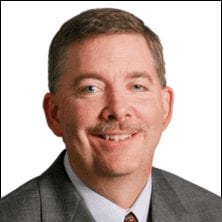
Mike Griswold serves as Vice President Analyst with Gartner’s Consumer Value Chain team, focusing on the retail supply chain. He is responsible for assisting supply leaders in understanding and implementing demand-driven supply chain principles that improve the performance of their supply chain. Mr. Griswold joined Gartner through the company’s acquisition of AMR. Previous roles include helping line-of-business users align corporate strategy with their supply chain process and technology initiatives. One recent study published by a team of Gartner analysts, including Mike Griswold is Retail Supply Chain Outlook 2019: Elevating the Consumer’s Shopping Experience. Mr. Griswold holds a BS in Business Management from Canisius College and an MBA from the Whittemore School of Business & Economics at the University of New Hampshire. Learn more about Gartner here: www.gartner.com
